

Beyond the Ban: A Guide to Americans Visiting Cuba in 2024.
If you are a US citizen, you can still visit Cuba in 2024. However, unlike your neighbors traveling from Canada , you will be subject to specific regulations from the US government.
For example, doing “tourism,” like staying at a resort on a Cuban beach , isn’t allowed. Your trip must fall into one of 12 categories of authorized travel to Cuba. You must also comply with certain financial restrictions while on the island.
This article offers our first-hand experience organizing trips from the US to Cuba for over seven years. We will answer all your questions about going to Cuba as an American, including the entry requirements, the 12 categories of authorized travel, People-to-People travel, the Support for the Cuban People license, and much more.
In this guide, we cover all of it.
Can Americans Travel to Cuba in 2024?
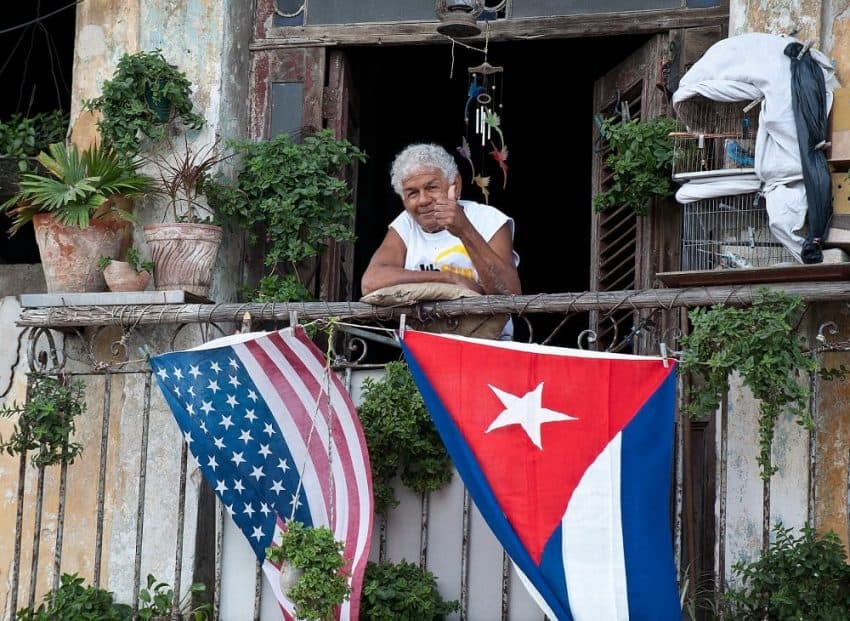
The simple answer is yes. It’s perfectly legal for Americans to travel to Cuba, except for explicit tourism purposes.
Americans can’t go to Cuba for tourism thanks to the Cuban Assets Control Regulations of July 8, 1963, which imposed a trade embargo on the island.
However, you can travel legally to Cuba if you comply with certain Cuban and US government regulations.
Specifically, the Cuban government asks you to bring the following documentation:
- The Cuban Tourist Card (a.k.a Cuban Visa).
- Health travel insurance.
- Customs and health declaration forms.
On the other hand, the US government requires you to:
- Self-certify under one of the 12 travel categories of authorized travel to Cuba
- Avoid spending money at certain restricted businesses.
- Keep your travel receipts and records for five years.
Does that sound like a lot? In the sections below, we explain how to meet these requirements so you can travel legally to Cuba from the US.
The Cuban Tourist Card
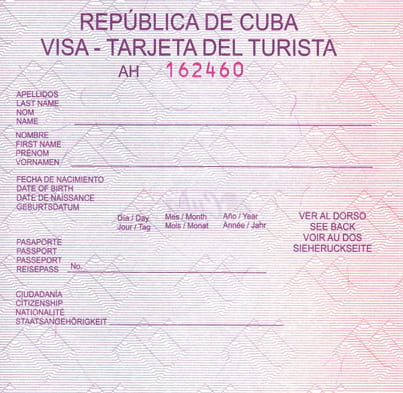
The Cuban Tourist Card is a tourist visa that almost everyone traveling to Cuba for tourism must bring. They come in two colors: pink and green.
In most cases, US citizens must get the pink Cuban Tourist Card because they fly directly from a US airport to Cuba. However, if you plan on leaving from a non-US airport, you will need the green version.
In any case, we suggest you purchase the Cuban Tourist Card through your airline or on EasyTouristCard.com .
Buy it From Your Airline
The cost of the Cuban tourist visa is usually bundled into the ticket price. However, in some cases, you will need to purchase the visa separately. Prices range from 50 to 80 US dollars, depending on the airline.
Please note that only a few US airlines fly to Cuba. Check out Skyscanner to find all available flights from the US to Cuba.
Purchase it on EasyTouristCard.com
If you can’t get the Cuban Tourist Card through your airline, the best alternative is to purchase it online from Easy Tourist Card , a widely trusted provider.
The pink version costs about 100 US dollars, while the green version sells for roughly 35 US dollars.
Mandatory Travel Health Insurance
Travel health insurance is an entry requirement to Cuba.
Your policy must cover emergency medical treatment, hospitalization, and repatriation. The Cuban government won’t allow you to leave the country with outstanding medical bills!
Based on our assessment of the most popular travel health insurance providers for Cuba , we recommend Insubuy .
On Insubuy , coverage for medical emergencies, hospitalization, and repatriation starts at 8 USD per week per person and is pretty comprehensive.
Customs and Health Declaration Forms
Cuba requires all travelers to bring a Sanitary Statement and a Customs Declaration form.
You can complete the documentation at D’Viajeros , the government’s website. It will save you time and annoyance at the Havana Airport !
The 12 Categories of Authorized Travel to Cuba
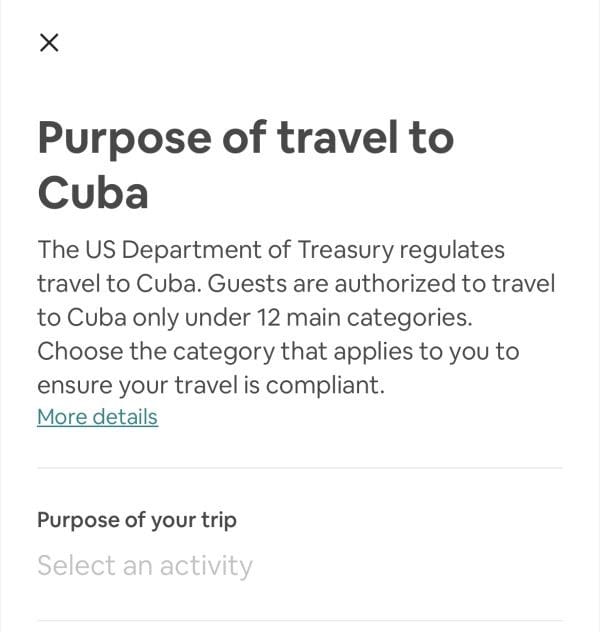
A “category of authorized travel to Cuba” is also known as a “travel license” or “general license.”
Confusingly, even though it’s called a license, it is not a physical or digital document. It’s a self-certification you need to do when travel providers, such as airlines and hotels, ask you about it. In most cases, it’s just about ticking a box.
Obviously, before you tick that box, you should review whether you meet the criteria for traveling to Cuba under your chosen category.
There are 12 categories of authorized travel to Cuba , as defined by the Office of Foreign Assets Control (OFAC):
- Family visits
- Official business for the US government, foreign government, and certain intergovernmental organizations
- Professional research and professional meetings
- Educational activities
- Religious activities
- Public performances, clinics, workshops, athletic and other competitions, and exhibitions
- Support for the Cuban People
- Exportation, importation or transmission of information or informational materials
- Humanitarian projects
- Activities of private foundations or research or educational institutes
- Certain export transactions
In 90% of the cases, a US citizen will travel to Cuba under either the Education Activities or the Support for the Cuban People categories.
Educational Activities (People-to-People Travel)
People-to-people travel falls under the Educational Activities category. This license aims to promote people-to-people contact, support civil society in Cuba, and encourage the Cuban people’s independence from Cuban authorities.
You can travel under this license provided that your trip is:
- Organized by a US travel company (the “sponsoring organization”).
- Escorted by an employee of the sponsoring organization.
People-to-people travel is the best option for Americans who want to go in a group and prefer to avoid the hassle of planning an itinerary in compliance with the US-Cuba travel regulations.
However, not everyone likes the crowds or having a chaperone around. Besides, traveling to Cuba independently is still legal, easy, and safe . For those, there is the Support for the Cuban People category.
The Support for the Cuban People Travel Category
The Support for the Cuban People category intends to promote US travel to Cuba to strengthen civil society on the island. It covers activities that:
- Foster closer connections with the Cuban people,
- Contribute to the development of Cuban civil society, or
- Advocate for the independence of the Cuban people from the government; and
- Involve meaningful engagement and interaction with individuals in Cuba.
American travelers love this category because it’s pretty vague. You have lots of wiggle room and can pretty much do many of the activities you would in any other country.
Here are examples of activities that can “strengthen Cuban society”:
- Visiting museums and historical sites.
- Eating at locally-owned restaurants (paladares).
- Taking Cuban cooking classes.
- Taking salsa dancing lessons.
- Touring a tobacco farm and learning how to roll Cuban cigars.
- Taking a tour through the best of Havana .
- Volunteering with a local organization or non-profit.
How does it sound?
However, we must remind you that you still can’t do tourism in Cuba under the Support for the Cuban People license. In fact, you should spend about 6-8 hours on a schedule of activities actually supporting the Cuban people.
That said, it’s not like an American official will call you daily to verify your schedule, so don’t stress too much about it.
You can also support the Cuban people in less subtle ways by:
- Bringing inexpensive items as gifts for locals . Most essential products you take for granted (toiletries, hygiene products, etc.) are hard to come by in Cuba. Bringing a thoughtful gift will show your appreciation and may meet your hosts’ vital needs.
- Tipping . The base wage for workers in Cuba is the equivalent of a few US dollars a month. Therefore, locals expect and highly appreciate tipping.
Finally, considering that the Internet is limited in Cuba , you should arrange your activities before you land on the island.
Restricted Businesses and Accommodations
The US Treasury Department doesn’t like Americans spending money anywhere in Cuba.
The Treasury keeps a list of businesses to which Americans must refrain from giving money. Most of these businesses are owned by the Cuban military or security services, with which the US still has a frosty relationship. You can see the full, updated list here .
The US government also forbids Americans from staying at specific accommodations listed in the Cuba Prohibited Accommodations List .
To be safe, we recommend renting a room from Cuban Airbnbs , also known as “casas particulares.” These privately owned and highly affordable accommodations can provide you with an authentic Cuban experience.
Check out Skyscanner for the latest listings of “casas particulares” and hotels in Cuba.
Travel Receipts and Records for Five Years
The US government can ask you for your travel records and receipts for up to five years after your Cuba trip.
This sounds spooky, although anecdotally, it doesn’t happen very often. But it’s better to be safe than sorry, so keep your records safe for five years if you’re questioned about your trip.
Bonus Tip for Americans Traveling to Cuba: Stick to Private

Generally, you should purchase most travel services and products from Cuban private businesses.
We know you can’t always stick to this principle because the Cuban government owns most of the travel facilities and services on the island, including hotels, car rental companies , tour agencies, and souvenir shops.
But whenever you can support Cuban entrepreneurs, please do so. You will strengthen the legality of your trip and genuinely help Cuban society.
Besides, if you want to cut your trip to Cuba costs , purchasing from locals will get you more bang for your buck. Not only is it more affordable, but you will likely pay in Cuban currency , the Cuban Peso, which is hugely devalued compared to the US dollar.
This includes:
- Booking tours from local guides .
- Staying in “casas particulares.”
- Eating at “paladares” (check out our food safety guide for Cuba ).
- Riding in private taxis, including “almendrones,” Cuba’s old classic cars .
- Buying souvenirs directly from local sellers.
For more tips and tricks you can pull in your trip to the island, read our 58 travel tips for Cuba .
US Legal Travel to Cuba, Summarized
If you are an American traveling to Cuba, you can break down the process into five relatively simple steps:
- Choose the best travel category to Cuba based on your travel purpose. If you are going in a group, it will likely be Educational Activities (People-to-People travel) or Support for the Cuban People if you travel independently.
- Ensure your itinerary has a full schedule of activities covered by your chosen travel category.
- Avoid booking an accommodation included in the Cuba Prohibited Accommodations List .
- Do not spend money on the specific prohibited businesses in Cuba .
- Keep your records and receipts for five years.
Once you overcome the legal (but easy!) challenges of traveling to Cuba, you will see that the effort was well worth it. If you feel ready but don’t know when, check out our guide to the best time to travel to Cuba .
Have you traveled to Cuba as a US citizen? We want to hear from you. Please share your experience in the comments below!
Essential Travel Logistics For Cuba
Cuban Tourist Card – If your Cuban Tourist Card (a.k.a Cuban Tourist Visa) isn’t bundled into your airline ticket or travel package, buy it only through EasyTouristCard .
Travel Health Insurance – Travel medical insurance is an entry requirement for Cuba, so you can’t skip it. Travelers can get travel health insurance for Cuba via Insubuy . Travel protection benefits such as trip interruption and cancellation, baggage delay insurance, etc., are not required.
Essential Items to Pack – Bring the essential travel necessities that you may not be able to get in Cuba:
- First aid kit
- Hand sanitizer
- Water bottle with filter
- Mosquito repellent
- Pin adapter (for Europeans)
- Travel guide
- Spanish-English phrasebook
- Suggested Reading: The Cubans: Ordinary Lives in Extraordinary Times
Read our complete packing list for Cuba .
Find Accommodations – Find hotels or casas particulares (private accommodations) on Skyscanner , which lists thousands of accommodations available in Cuba.
Book Your Flight – Book cheap flights to Cuba on Skyscanner , our favorite flight search engine to find deals on flights to Cuba.
Share Article:
About the Author
Tour republic.
Tour Republic is a marketplace where you can discover, book, and review the very best experiences Cuba has to offer. We are a team of tourism professionals and journalists who have partnered with Cuban entrepreneurs to provide travel experiences that can transform your trip into a life-changing adventure. We also share our profound love for Cuba through in-depth travel guides, myth-busting articles, and captivating narratives. Whether you want to explore Cuba's wonders or understand its intricacies, our blog posts are your gateway to the heart of this extraordinary country.
Leave a Reply Cancel reply
64 comments.
Assuming we meet all the other qualifications, is there no way for an American to go a beach in Cuba?
Hi Kat, Unfortunately, Americans are not allowed to simply go to the beach. I also don’t see going to the beach as an activity covered by any of the 12 travel categories. Honestly, if you go to the beach, it is unlikely that you will be fined since it’s hard for an US official to know that you did. However, it is not permitted.
Hola, queria saber si mi novia con ciudadania estadounidense y salvadoreña tiene que pedir algun tipo de visado especial ? Yo soy cubano con pasaporte cubano aun vigente.
Hi we booked our tour package from Canada, flight plus stay at the resort. I understand that my husband (Canadian citizenship) won’t have any problems, but for me (US Citizenship, Canadian resident) do I need to book separately a casa particulares to get into the country? And when i get in there, can I stay with my husband at the resort?
Hi juju, According to the regulations, you shouldn’t. First, you need to make sure that the resort is not on the restricted list . Secondly, keep in mind that Americans are not allowed to go to Cuba only for tourism purposes. Therefore, you should have an schedule of activities that fall under any of the 12 general licenses to travel to Cuba, as explained in the article.
The question: “Do you need a password to Cuba?” Should be: Do you need a PASSPORT to Cuba?
Fixed. Thanks a lot!
Thank you for the great information , very helpful . As an European flying from Miami to Havana with a valid ESTA visa could I enter back the USA with on the same Esta visa . Not easy to get as answer on the official us pages . Thanks .
It appears that you will need to apply for a visa to re-enter the United States. Read more here .
I tried to buy the pink visa on easy tourist but almost at the end my country is not on the list. Puerto Rico is part of USA but can’t complete the order. They wrote me but do not get the problem of the country. Where else can I buy online?
Hi, I’m Italian and I would like to travel to Cuba via Miami, but it seems the nationality doesn’t matter because we need to declare a specific category. But what if I just need to go to Cuba from USA with a one-way flight and I will come back home directly from Cuba to Europe?
How did it go? Where you able to do the trip as mentioned?
I am an adult I was born in the US. Lived here my whole life.
My mom and dad were born in cuba, came to America in the 90s, and got their citizenship over 8 years ago.
I believe for my parents to travel to cuba they may need a Cuban passport because I read that cuba does not recognize them as American, just Cuban.
However, I also read that because both of my parents were born there, I am the daughter and I too am a Cuban citizenship under Cuban law
I’ve read that a few times in a few pages and I wanted to know if it was true. And if I would need to get a Cuban passport myself
Please let me know! Thanks .,
Hi Aileen, If you were born in the US, you don’t need a Cuban passport to enter the country.
In your article, when quoting OFAC, the text “during his or her four-day trip” was included. Are visits to Cuba limited to four days?
I am a professional orchestral and choral conductor and composer, and my associate is a full-time jazz pianist and composer. We want to visit Havana to listen to Cuban salsa, jazz, etc, and to engage in one to one conversations with Cuban musicians—and maybe even join in playing, if invited! Six to eight hours per day would hardly be enough for us: we’d start at 17:00 and leave when everybody goes home—and that’s just the evening. Which category would you recommend for us? EXCELLENT website! Thanks so much!
kayak wont quote flights to me as of today siting regulatory issues…. has something changed?
Hi Danial, That’s correct. It appears that Kayak is not quoting flights to Cuba currently. I suggest you use Skyscanner instead.
So to be clear. We still can’t bring back any alcohol or tobacco from Cuba back into the US? I read in this article that there Is now no value restrictions like there used to be.. Can you advise please?
Hi Mark, No, legally, you cannot bring Cuban tobacco or alcohol to the US.
Ummmm damn I guess I’m the only one with this problem. Can felons go? Not on parole and the case is over and done but I know some counties trip and some don’t. So what’s cubas stance on it?
Hi Mike, According to Felony Record Hub , felons can enter Cuba as long as they don’t have an outstanding felony warrant or are not on a no-fly TSA list. Hope it helps!
Hey great information!! Thank you
When you say you have to declare your license(which mine would fall under the 12) during booking, what does that mean? How do you declare it?
Hi Orlando, Usually, travel providers will provide you with a form where you have to select the license you are using traveling to Cuba. You don’t have to get an “actual” license. That’s it 🙂 The only licenses that do require a physical license from OFAC are: – Professional research and professional meetings. – Public performances, clinics, workshops, athletic and other competitions, and exhibitions.
Hello! This is a great article. I am a US citizen considering sailing my boat from the Dominican Republic to Cuba and then on to Belize. Some of our crew (US citizens as well) may fly directly back to the US from Cuba. Is this plan legal and possible? Will the Cuban authorities have a problem with this plan? Will the US authorities have a problem with it once we return?
Hi Christopher,
Did you ever find out if you can go to Cuba by private boat?
Thanks, Sarah
My fiancée from Ukraine suggested we take a winter trip to Cuba. Since she is booking through a Ukrainian travel agency our stay and flight – is it okay to stay as her guest at a prohibited resort and when would I declare my travel intent/licensing? We would otherwise try to use up 6-8 hours per day supporting the local economy.
Hi Gerald, Usually, travel service providers (airlines, travel agencies, booking sites, etc.) ask you to declare your travel category while booking the trip, not after. I’m not sure at what point the Ukrainian travel agency would ask you about it or if they will do it at all. Unfortunately, if you are a US citizen, you shouldn’t stay at a prohibited accommodation in Cuba, regardless of where you are flying from.
my concern is nobody writes how long does it take to get permit to travel there, on one of our government pages it says up to 6 months ??
Hi there, You don’t need to apply for an actual license unless you are traveling under any of these two categories: – Professional research and professional meetings – Public performances, clinics, workshops, athletic and other competitions, and exhibitions.
I just found this concerning my question on banks in Cuba from US government site. Wonder what the alternative/s is to have funds in Cuba?
U.S. credit and debit cards do not work in Cuba. The Cuban Central Bank announced new restrictions on the use or conversion of U.S. dollars beginning June 21, 2021. U.S. dollars in cash cannot be converted to local currency, may not be accepted for payment, and cannot be used to pay fees or taxes at the airport. Travelers should confirm alternative payment options before traveling, as policies concerning the use of U.S. dollars in Cuba are subject to change. The Cuban government requires that travelers declare cash amounts over the equivalent of 5,000 USD.
Great article, but severely lacking in one area, at least for me. You have nothing on banking inside Cuba. I don’t like to carry large sums of money. Do the banks there work for US banks for ATM’s? Are they few (only in banks) or difficult to receive money from such as small limits for withdrawals?? With limited internet there, I’m assuming if someone changes around to different home casa’s then cash is the only way to purchase rooms? ATM again. Thx!
We actually wrote a whole guide to using money in Cuba as a tourist. Check it out here – https://www.tourepublic.com/blog/cuban-currency/
But I think you figured out the answer to your questions: U.S. credit and debit cards do not work in Cuba.
Are you currently operating tours given the political climate in Cuba? Today is November 15, 2021 and there were planned protests etc.
Thank you, Ash
Hi Ashley, At the moment, we are not operating tours in Cuba.
Are the covid restrictions still in place?
Hi MZ, They are, but most will be lifted on November 15th, 2021 (next week!). We will update the article accordingly.
Hey MZ. Just wanted to give you the heads up that we updated our guide to the latest Cuba travel restrictions . Check it out!
I want to travel to Holguin Cuba to visit friends I have dual citizenship USA-Uruguayan. If I leave from Uruguay do I need to do all of these activities? What happens if I don’t book tours i visiting friends what do you recommend
Hi Alicia, Unfortunately, the current US travel restrictions to Cuba apply to all persons subject to US jurisdiction, regardless of where that person is residing. Therefore, if you are a US citizen, you will need to follow the US regulations to travel to Cuba, even if you use an Uruguayan passport. Follow the steps and advice outlined in the article and you should be fine. I believe that Support for the Cuban People is the right category for you -unless you have family in Cuba- but then again, we can’t offer legal advice.
I am a retired dentist and would like to visit hospitals and dental clinics in Cuba. I would like to professional Oral surgery to people of Cuba. Can I get any information?
Hi Peter, I think you should contact the US embassy in Cuba for more information – https://cu.usembassy.gov/ Thanks,
Why don’t you give advise for foreign tourists who fly to miami then onto Cuba. What can we do and what can’t we do as non Americans. I plan to visit Cuba in febuary/march 2022 via miami/fort laudedale.
Hi, I have the same problem as you. I’m Italian and I would like to travel to Cuba via Miami, but it seems your nationality doesn’t matter, we need to declare a specific category. But, if we choose the ‘Support for the Cuban People’ category, when we have to declare all the activity that we have done? And I didn’t understand if they will check every day’s activities or we just need to show them some of the activities done in the week.
Hi Alessia, You won’t need to declare all the activities you will do in Cuba. You only need to choose the Support for the Cuban People category, and that’s it. In Cuba, no one will monitor what you will be doing. Hope it helps.
So essentially it’s the U.S. government enforcing these restrictions and calling it “Support for the Cuban People” when it really means interacting mostly with civilians likely to oppose the Revolution and tell a one-sided narrative about what it’s like to live in Cuba. U.S. travelers are being carefully kept away from actually supporting Cuba as a sovereign nation whose government has made remarkable progress in health and education, putting the U.S. to shame. This explains why the few friends who went to Cuba come back with a story about happening to run into a Puerto Rican who disses the Cuban government. It’s all a set up, and extremely lame on the part of the U.S. Get over it–Fidel defeated your and overthrew your puppet dictator. Stop this ridiculous embargo and these stupid sanctions.
you’re 100% right, Ann. it’s embarrassing
The U.S. will do anything to make Cuba look bad and undo the revolution. I was looking to travel there to actually learn from and support the Cuban people, not support the counter-revolutionaries
Grow up Ann. Stop trying to aggrandize La Revolución. Many of us who actually lived in Cuba under the regime know the truth.
The problem with fanboys and fangirls (like you and Anthony) is the same as the problem with haters: instead of objectively evaluating things, they just say what feels “truthy” to them.
For instance, a “hater” will say that the Cuban government has not accomplished anything in education or healthcare. But a fan has the opposite problem: they oversell it. So to them—to you—Cuba’s 14.4 average years of education and life expectancy of 73 or so “put to shame” the 77 year of life expectancy and 16 or so years of education of the United States. Someone looking at the situation might give the government some credit by pointing out that this is notably better than the average for the Caribbean or Latin America, without feeling the need to exalt the government with incorrect statements.
I might also mention your assumption, and that of Anthony, that staying at someone’s house means interacting with someone who does not support the Cuban government.
I’m noticing Kayak and Expedia aren’t showing any flights from Boston to Cuba – do you have any info on this? Any other suggestions on how to find flights from Boston to Cuba
Hi Michaela, Sadly, I don’t have much information on this. Did you try Google Flights? I played a little with dates for BOS-HAV flights and found one-stop flights with JetBlue in May, but nothing else 🙁
Hello, I understand that we are able to stay at hotels that are not on the restricted list. Except for the first two days (48 hours) of quarantine required after arrival till receiving PCR test results, if we participate in local guides, local shopping visits, local business services during day activities, hire cuban local to spend time with beach activities, but without staying at Casa Particular, do these qualify for Support for Cuban People license?
Hi there, I am a dual national British and American. I have a UK passport and an American passport. I live in the UK, and my partner (British) and I want to go to Cuba in May 2020. We will be using airmiles from British Airways/American Airlines to get there. There is no availability from Cancun…we tried. As I will be going from the US to Cuba, can I still use my British passport and avoid all of the legal hoopla – and restrictions, or do I need to go on my American passport (since we will be leaving from the US) and comply fully. Don’t want to get turned away at the airport after planning/booking the trip.
Hi John, According to the UK’s government advice on traveling to Cuba , it seems that you will have to comply with the US law if you are traveling to Cuba from the US, regardless of the passport you use. It means that you will have to declare a travel “license” and cannot be for tourism purposes.
This might seem like a dumb question but can I pack my smokes & take them w/me?
I’m wondering if participating and supporting (both economically and artistically) a starting art project would be considered in the “Support for the Cuban people” category. Thank you.
It could be considered as such as long as you have a daily full-time schedule of activities (6-8 hours) to support the private art project. Also, document everything you do while in Cuba. For more specific legal advice, I would suggest you talk to a legal specialist.
I was born in Cuba and would like to take a cruise there. I came to the states in 1961 at the age of 5. I am an American Citizen and was told I need to get a form H-11 from the Cuban Embassy in the U.S. in order to travel to Cuba. I have tried to contact them via email and phone several times, but I’ve not heard from them. Do you have any suggestions?
Best to use an agency rather than try to communicate directly with the Cuban consulate – especially after the US government expelled most of those who work in the visa section.
World Nomads is no longer providing (ar least Canadians) insurance for Cuba. Please suggest another all encompassing insurance provider? Thank you
Hi Dylan, Thanks for the heads up! They for Americans, but haven’t confirmed if their plans are also available for Canadians. Another popular travel insurance provider for Cuba is RoamRight . UPDATE: It seems that they don’t offer insurance for Canadians either. We will do some research and get back with some alternatives. Thank you again!
Can we book a family and friends group to Cuba, intending to do all the required activities?
Yes! You can do it Bee, as long as those activities are covered by the travel license that you declare.
You might also like

Cuban Currency: The Ultimate Guide for Travelers (2024 Update)
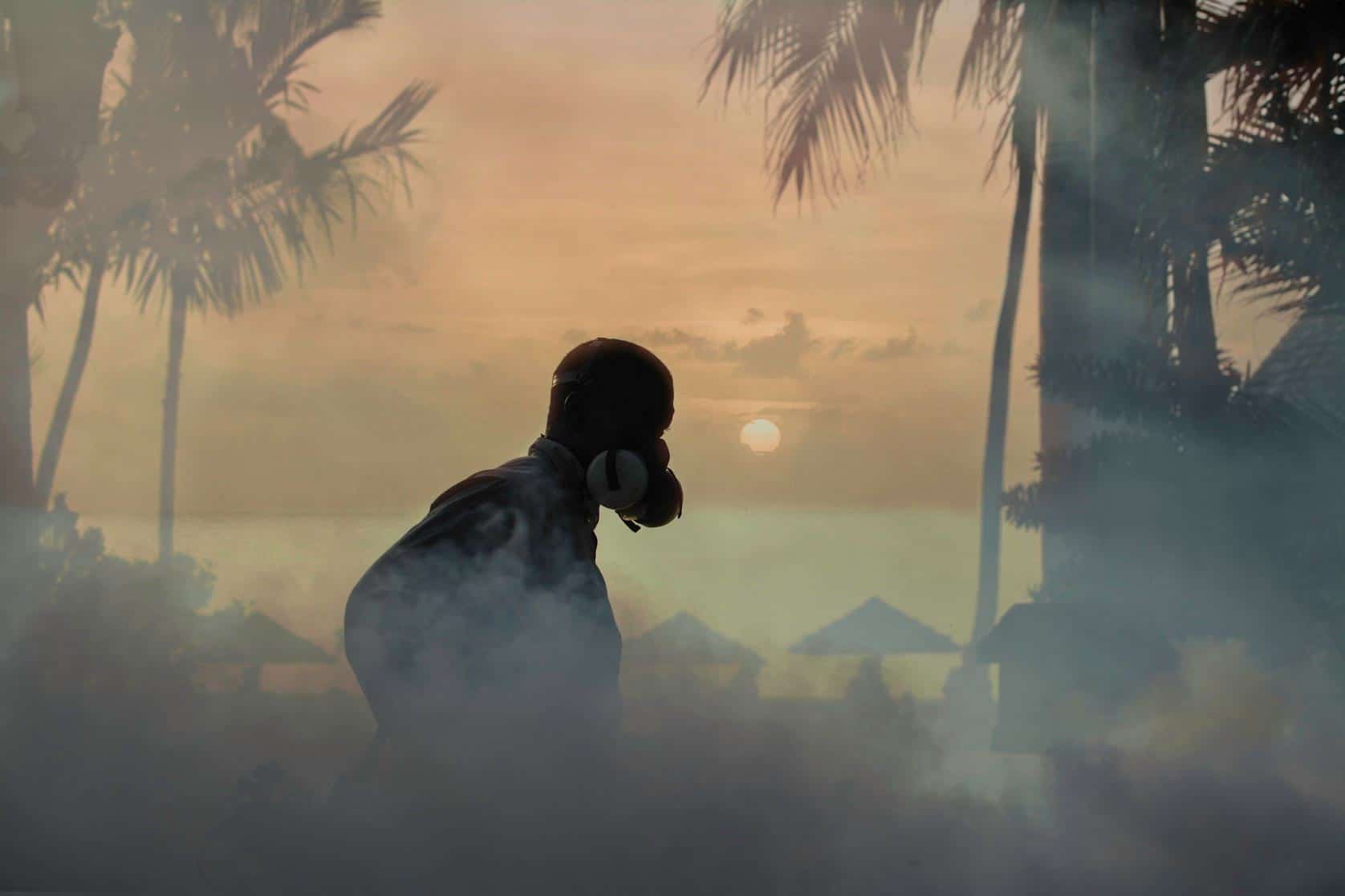
Sand Fleas and Mosquitoes in Cuba: The Survival Guide (2024)
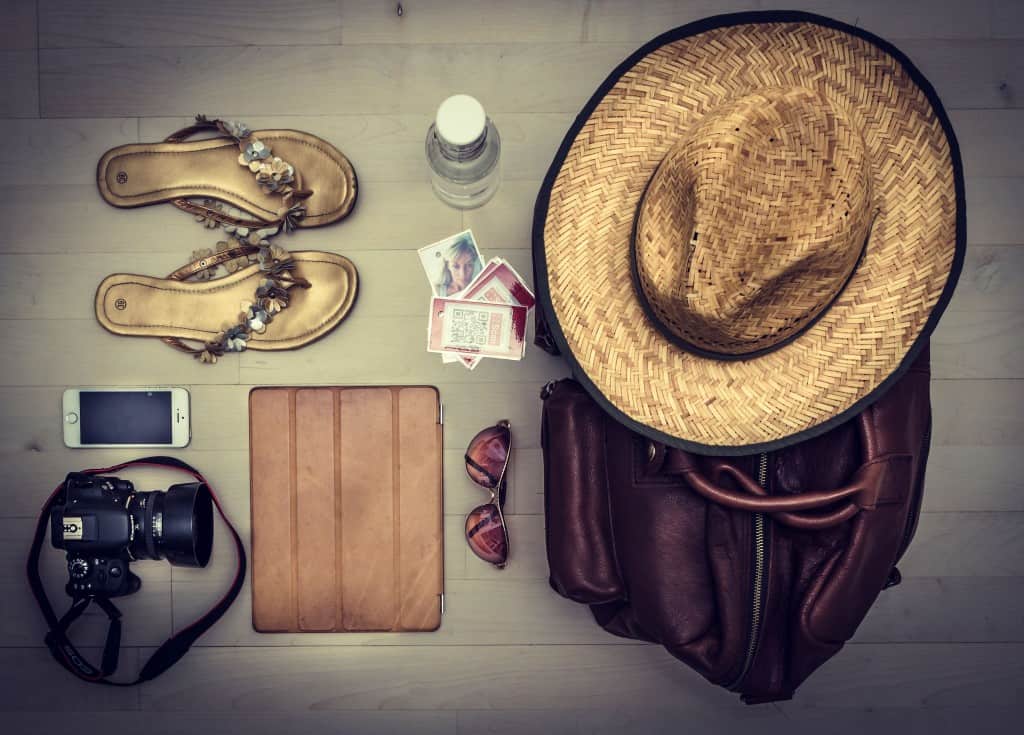
What to Bring to Cuba: The Ultimate Cuba Packing List (2024 Update)
Other stories.
Cubans welcome US visitors into their hearts and homes
2024 legal cuba travel for americans.

Cuba travel is legal, and People-to-People tours return
A new era of normal cuba relations under biden and harris.
Joe and Kamala pledged to swiftly undo four years of Trump-imposed economic and travel restrictions, increase US Embassy staff levels in Havana, and seek more engagement between the States and Cuba.
These changes have been slow in coming. After all, Trump enacted 243 measures against Cuba. But a positive change was enacted on June 8, 2022.
Free to visit Cuba easily again! People-to-People travel restored.
Hooray! Americans can travel to Cuba just like during Obama times. People-to-People travel allows every American to come to Cuba, meet islanders, and enjoy cultural, artistic, and educational activities – the same as traveling to any other country.
Yet caveats remain.
- Cuba travel must be hosted by a tour company based in the United States.
- Cuba travel must be escorted, meaning you travel with a guide on an itinerary that shows you are engaging in meaningful exchanges with Cuban people. But hey, the people are what the island’s all about anyway. You are still free to explore historical and cultural sites and tropical nature.
- Lounging on Cuba’s spectacular sunny beaches and sipping mojitos all day is banned. Otherwise, almost anything you can imagine is permitted.
US Cuba tour operators help arrange trips featuring the best this magical island offers. You’ll enjoy dance, music, rum, cigars, museums, and effusive kind Cubans. People-to-People travel is comfy and always in the company of open-minded, outgoing fellow travelers. Refreshingly, Cuba has become a MAGA-free zone, not that they are unwelcomed. Instead, they seem to show little interest in different cultures.
Covid is gone. Cuba is the healthiest country in Latin America.
Cuba’s entire population is vaccinated. Cuba is one of the few countries globally that hold this distinction. There is no need for masks or proof of vaccinations to visit Cuba. Things are back to normal again. Learn more about Covid in Cuba and how easy it is to visit now .
Did Trump ban travel to Cuba? No, but he wanted to.
While Trump did everything possible to curtail Cuba visits, he couldn’t make them illegal. The US Constitution prevented Trump from doing so.
Rewarding Cuba travel options are many. The longstanding twelve categories of authorized Cuba travel remain intact. Licensed US Cuba tour agencies help with all questions and ensure your trip conforms to current regulations.
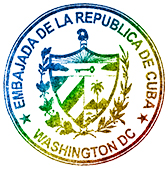
Academic travel to Cuba has been expanded. Students, teachers, school staff, and chaperones can come to Cuba just like studying abroad in Canada, Asia, or Europe.
The popular categories of Educational Activities (which People-to-People travel is part), Support for the Cuban People, Humanitarian Projects, Religious Activities, Professional Research, and Journalism are fulfilling ways to witness Cuba and connect with islanders while partaking in their culture.
What is legal Cuba travel, how does it work, who is in charge?
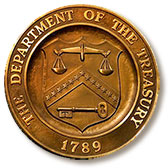
The US Department of Treasury’s Office of Foreign Assets Control (OFAC) oversees Cuba travel. There are twelve themes under which Americans can legally visit Cuba without any government documentation or permission in advance. The twelve categories are known as “general license” travel. There is no actual license issued. It is an honor system. If the purpose of your Cuba travel falls under any of the twelve pre-approved Cuba travel categories, you can hop on a plane and visit Cuba. It’s that simple.
What are the 12 categories of authorized travel to Cuba?
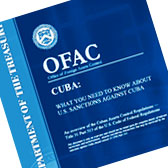
- Educational Activities (study abroad for students, teachers, and school staff), and People-to-People travel for regular Americans is part of Educational travel activities
- Support for the Cuban People
- Professional Research
- Public Performances, Clinics, Workshops, Athletic and other competitions, and Exhibitions
- Journalistic Activity (for electronic and print media reporters, including bloggers)
- Humanitarian Projects
- Religious Activities
- Family Visits (connecting with close relatives in Cuba)
- Activities of private foundations or research or educational institutes
- Exportation, importation, or transmission of information or information materials
- Certain authorized export transactions (for businesses and NGOs)
- Official business of the US government, foreign governments, and specific intergovernmental organizations
List of Cuba travel dos and don’ts

- While in Cuba , your activities must focus on full-time engagement outlined in your chosen travel category.
- It’s best not to stay in Cuban hotels banned by Trump and Biden. Click Worried Boy image for the list.
- Trump and Biden outlawed Cuban rum and Cuban tobacco products in the US. While these sumptuous items cannot be imported to the United States, you can enjoy them during your Cuba stay. No problem!
What are the simplest, most rewarding ways to visit Cuba legally?
Cuba on your own . The island is ideal for sojourners with foreign travel experience and ample planning time. If you speak fluent Spanish, independent travel is tops. This avenue is only possible under the Support for the Cuban People license.
However, individuals can also use the People-to-People option and visit Cuba independently if hosted by a US tour operator and a guide. (You kick back, they do all the work for you!)
Design your own custom private Cuba trip with a US tour operator. Collaborating with a tour operator will ensure unrivaled rewards if you, your family, and your friends prioritize pre-planning, gratifying activities, and guaranteed pricing. US Cuba travel professionals know the best cultural activities, events, entertainment options, eateries, accommodations, transportation, and knowledgeable professional guides.
Prepaid small group Cuba travel packages guarantee your Cuba trip conforms to US legal requirements. Hosted by US agencies, small group tours are nearly all-inclusive, incredibly economical, and offer tons of cultural encounters in a brief period – many more than the most intrepid traveler could assemble on their own. And you’ll always be in the company of forward-thinking fellow Americans and Cubans to look after all your desires.
How do I choose a legitimate Cuba agent or tour operator?
We encourage potential Cuba visitors to browse the internet to shop and compare options. It’s fun and enlightening. You’ll find many travel agencies and tour operators with decades of professionalism offering excellent services at a wide range of pricing. Locate them on Google by searching “ legal cuba tours for americans ”.
- Ensure the tour operator is based in the United States and licensed by OFAC to provide travel services to Americans.
- The tour operator must issue a Certificate of Legal Cuba Travel , guaranteeing your trip conforms to current US Cuba travel regulations.
- Travel companies come and go. Ask how long the travel provider has been in business. Don’t risk your precious travel dollars with fly-by-night operators.
- Learn from the experiences of former travelers. Read the tour operator’s TripAdvisor reviews.
- Ask your friends who’ve traveled to Cuba for their suggestions and recommendations for Cuba tour operators.
Legal Cuba travel essentials for US citizens and residents
- Read the Ultimate Cuba Travel Guide , a summary of nearly three decades of Cuba travel tips and advice.
- All visitors require a passport, valid for one week beyond your Cuba stay.
- Cuba travelers require a Cuba entry visa. Purchase a Cuban Visitor Visa online now.
- Fill out the online Cuban immigration and customs form called D’Viajeros . Review these simplified instructions to breeze through this mandatory pre-departure document in minutes.
- Money US debit cards don’t work in Cuba. Only a handful of hotels in Havana accept US credit cards for in-house services. US dollars cover nearly all cash needs: no need to bring euros or Canadian dollars. Plan trip expenses carefully. See Cash requirements and guidelines while in Cuba.
- US regulations require Americans to retain records of island expenses and activities for five years. Legitimate US-based Cuba tour operators keep these records for you.
Have questions about legal Cuba travel?

- Calgary, AB
- Edmonton , AB
- Victoria, BC
- 403-216-2450
- [email protected]
The Best Cuba Itinerary | 2024 Travel Guide
The intriguing Caribbean island of Cuba is well-known for its historic colonial towns, white sand beaches, tobacco fields, and revolutionary figures like Che Guevara. It’s a place where you can pass the day sipping daiquiris, watching dolphins, hiking through rain forests, touring historical museums, or salsa dancing with the Cuban people.
Cuba truly offers something for every type of traveler!

Getting to Cuba
From the main airport hubs of Canada, you can easily find non-stop flights to gorgeous and popular Cuban destinations like Varadero, Cayo Coco, Santa Clara and Holguin. Travelers can easily get to Havana with a layover.

Entry Requirements to Cuba for Canadians
No visa is required for entry into Cuba for Canadian citizens with valid passports or permanent residency cards. They can travel with their valid passports or PR cards and the tourist card that is part of the vacation package (provided on board or at the airline counter at airports in Canada at the time of check-in). The Canadian passport needs to be valid for at least a week after the return date, which is vital for you to know.
For traveling in Cuba, it is required for travelers to have travel insurance for all forms of medical emergencies, including covid. So, in the event of a medical emergency, tourists won’t be responsible for covering medical-related expenses in an emergency situation.
COVID-19 Requirements
All passengers arriving in Cuba from a direct flight from Canada do not need to present a vaccination passport.
Cuba Currency
The Cuban Peso is the local currency (CUP). Cuba does not accept US money, however, a lot of places do accept Canadian dollars. Only Canadian bank debit/visa cards or visa credit cards are accepted for payment in tourist zones, which include hotels, restaurants, and retail centers. CUP is available in bills of 1, 3, 5, 10, 20, 50, 100, 200, 500, and 1000. It’s helpful to always have a lower denomination of bills for small expenses like street food, taxi fare, tips and souvenirs.

Getting Around Cuba
The most convenient way to get around Cuba is by shared cab. These are similar to regular taxis with the exception that you will likely share one with strangers.
You can also reserve a cab in advance, but it will probably be pretty obvious that you’re a tourist, so you will undoubtedly receive offers for rides from taxi drivers around the touristy areas of the cities you’re visiting.
Public transport like buses are also available but they don’t cost much less than a taxi and it takes longer, so taxis might still be your best option.

Best Time to Travel to Cuba
The months of October through April are the ideal times to visit Cuba. The island enjoys a fantastic Caribbean climate with a significant period of pleasantness where days are warm and sunny and little rain falls, especially in Havana and along the coast. The nicest weather on the island is found along the beaches along Cuba’s south coast!
How Long to Visit
If you want to experience the culture, nature, and relaxation on the beaches of Cuba, it is ideal to spend at least 10 days in Cuba.
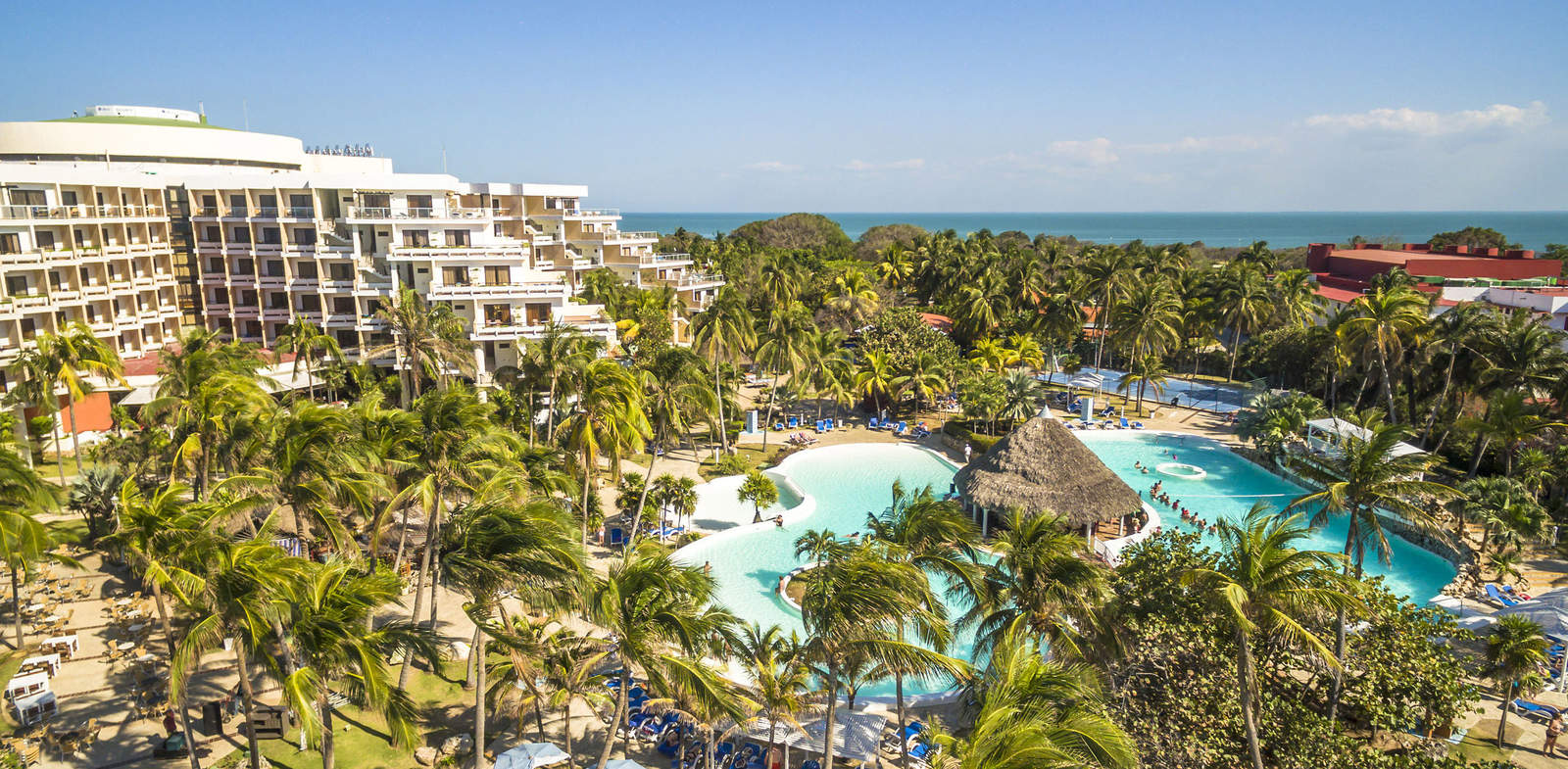
Where to Stay in Cuba
Melia varadero.
The lovely Melia Varadero Resort is one of the most popular beach resorts in Cuba for a reason. This elegant, five-star all-inclusive resort is minutes away from the area’s major attractions and things to do and has direct access to a lovely stretch of sand beach on the well-known Varadero peninsula. Golfers particularly like it because it’s located conveniently to play a few rounds at the well-known Varadero Golf Club. The resort is also located close to the Plaza América Convention Center.
This resort definitely makes the most of its picturesque setting. The grounds are lovely to explore or simply unwind in because they were created to blend in with the lush, tropical surroundings. In reality, relaxing in the areas, such as the dome-topped lobby, the gardens, or at the poolside is a highlight of staying here.
The accommodations are luxurious as well. For a little more indulgence, travelers can upgrade to one of the bigger premium suites, which are clean and comfy with enlarged terrace or balcony areas and breathtaking sea views, and lots of space for families.

Iberostar Selection Holguin
The 5-star Iberostar Selection is a popular choice for anyone looking for a fantastic luxury all-inclusive beach holiday in Holguin. Families and couples looking for a romantic getaway are both welcome in Holguin. There are several restaurants, several swimming pools, and a water park among other outstanding amenities.
Children will enjoy having their own club to hang out in with planned activities, entertainment, and activities and adventures that are tailored just for them. For adults who are visiting without children, the resort’s Star Prestige services guarantee plenty of quiet time for you to spend as you like. Highlights include catamaran sailing excursions, diving adventures near the coral reefs, and simply relaxing by the adults-only pool.

Gran Hotel Manzana Kempinski La Habana
In Havana, Cuba, there is a posh hotel called Gran Hotel Manzana Kempinski La Habana. Enjoy many dining options, drink your favorite cocktail or relax in the inviting tobacco lounge while smoking a cigar and sipping rum. Take in the spectacular view from the rooftop and indulge in the Spa.
The Gran Hotel Manzana Kempinski provides you with the chance to enjoy the first luxury hotel in Cuba. It is perfectly situated in the center of Old Havana and is surrounded by the most significant UNESCO World Heritage structures in this bustling city.

Iberostar Heritage Grand Trinidad
Iberostar Legacy Grand Trinidad offers unparalleled cultural history in the heart of one of Cuba’s most spectacular cities. The relaxed façades of the historic district’s buildings and the lively, warm, and joyful attitudes of its citizens will pull you in, listen to their music and learn about the culture of the nation! At the Iberostar Grand Hotel Trinidad, feeling and eating go hand in hand. a good array of beverages and a remarkable diversity in cuisine.
After your personalized check-in, get accompanied to your room and receive a cool beverage. After that, hotel staff will pamper you like royalty for the duration of your stay, complete with a pillow menu and turndown service. Every day, the details of your lodging will amaze you.

Horizontes Los Jazmines
Horizontes Los Jazmines has one of the best viewpoints in the Viñales Valley. There are cultural attractions close to where the hotel is located. This prime location is recognized by UNESCO as a World Cultural Heritage Site. Travelers who love nature will love staying at this hotel. The hotel includes Many comfortable rooms, including Junior Suite rooms with the highest standard and a special view of the Viales Valley, Standard rooms with a view of the Valley, and Tropical rooms with the greatest view of the Valley. The pool and free breakfast will also help to make your stay even more special.
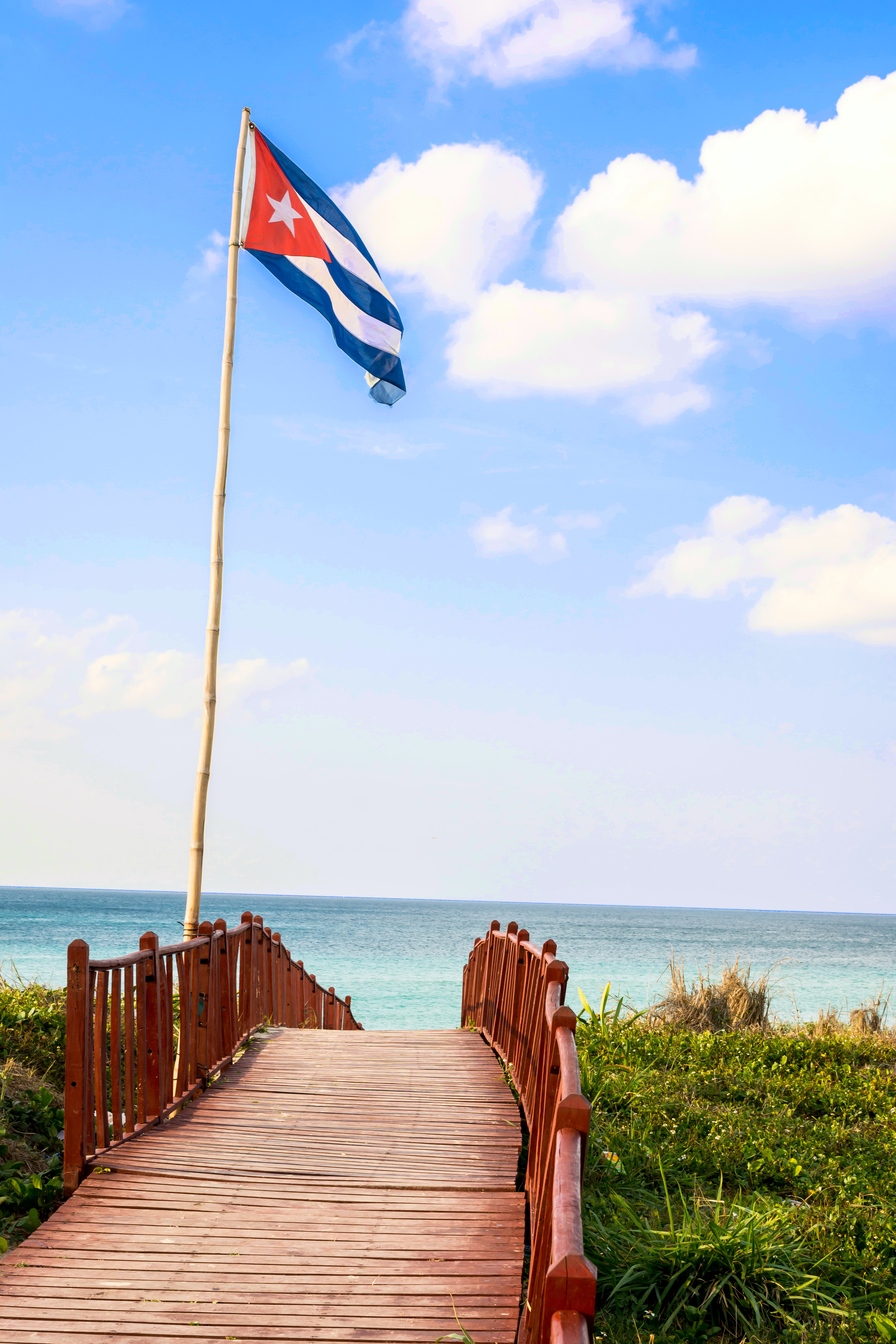
Best Things To See and Do in Cuba
Cuba’s capital city is Havana. Since it reopened its doors to tourists in the 1990s, the city is now among the most well-known tourist destinations in the Caribbean. There are traces of African and Caribbean influences throughout. This city, which is frequently called the Rome of the Caribbean, has charming European-style architecture, vintage American cars, and a tropical environment.
Havana is worth a visit for its culture, music, cuisine, festivals, and stunning scenery. Even just taking a stroll through the streets of the Cuban capital is amazing.
Old Havana, also known as Habana Vieja, is a well-preserved section of Cuban history and a UNESCO World Heritage site. It is easy to picture life in Cuba 200 years ago as one strolls through the cobblestoned streets.
Some of the major attractions in this area are:
- Look up at the magnificent Baroque and Neoclassical structures
- Explore the famous café (one of Ernest Hemingway’s favorite hangouts) Bodeguita del Medio
- The military bastion Castillo de la Real Fuerza
- The Cuban Baroque Catedral de San Cristobal, found in The Plaza de la Catedral
- One of the best spots to visit in Old Town Havana is Plaza Vieja
- Casa del Conde Jaruco has stunning stained-glass windows
- The nearby Camera Obscura tower provides breathtaking vistas
The Malecon, Havana
Take a walk along the ocean on the Malecon, Havana’s renowned oceanfront promenade. This popular Havana attraction provides a journey through the city’s history. A variety of well-preserved 20th-century structures, including examples of Art Deco and Neo-Moroccan architecture, can be found along the route. The houses, which are painted in soft pinks and yellows, are a photographer’s dream, especially in the golden glow of night. Here, people-watching is a popular pastime. Young couples stroll hand in hand, neighborhood fishermen cast their lines, and kids play on the sea wall.
Museo Nacional de Bellas Artes
If you’re an art enthusiast you won’t want to miss Havana’s Museo Nacional de Bellas Artes (National Museum of Fine Arts), which has a sizable and excellent collection of both foreign and Cuban art.
Parque Historico Militar, Havana
The Castillo de Los Tres Reyes del Morro, also known as El Morro, and the Fortaleza of San Carlos de la Cabana are two of Havana’s well-known fortresses that are included in the Parque Historico Militar. Here you can learn about the history of Cuba and take in amazing views of the city and ocean, and attend the cannon-firing event at 9 o’clock at night (the most popular time to come).
Plaza de la Revolucion (Jose Marti Memorial), Havana
The Plaza de la Revolucion merits at least a quick pause due to its significant role in Havana’s history if only to reflect on the events that took place here. In this large square, Castro gave speeches that occasionally drew over a million people.
A huge white marble monument of Jose Marti is located at the base of a 109-meter grey tower that stands in honor of Cuba’s national hero at the Plaza de la Revolucion. The Jose Marti Memorial’s interior houses a museum on Marti, make sure to climb the tower for breathtaking vistas of Havana.

Travelers feel like they’re traveling back in time when exploring explore Trinidad, Cuba, a UNESCO World Heritage Site. The city center has a charming colonial vibe thanks to its nicely restored buildings and cobblestone streets. Apart from Havana, Trinidad is currently one of the nicest cities in Cuba to visit.
Some of the top things to see in Trinidad are:
- The central Plaza Mayor, made of cobblestones, is where you can experience the bustling atmosphere of the city
- The Neoclassical Church of the Holy Trinity towers over the square
- The Museum of Colonial Architecture
- The Casa de Aldeman Ortiz’s art gallery
- The Saint Francis Church and Monastery, with its distinctive bell tower
- The Palacio Brunet, a grand house constructed in 1812 that still has its original frescoes and marble floors
- Visit Topes de Collantes National Park
Some of the nicest beaches in the Caribbean may be found in Varadero, one of Cuba’s most well-known resort destinations. This well-known palm-lined strip is lined with more than 50 resorts and hotels. Travelers from all over the world come here to enjoy the stunning white-sand beaches and the beautiful calm ocean!
Highlights of traveling to Varadero include:
- Ecological Park Varahicacos (Varadero Ecological Park)
- Rich flower gardens, a café, a swimming pool, and a small lake where people can row boats can all be found at Parque Josone.
- Many options for all-inclusive resorts
- Snorkeling and diving
- Go deep sea fishing
- Tee off at local golf courses
- Go skydiving
- Go swimming in the ocean
- Enjoy a relaxing boat ride
- Take a dip in cenotes
- Find souvenirs at the Varadero Street Market
Valle de Viñales
The Parque Nacional Viales is a stunning, lush valley in the Sierra de los Organos, north of Pinar del Rio, and a UNESCO World Heritage Site. Viales is a great place to visit in Cuba to show off the beautiful countryside landscapes. The Viales National Park will leave you speechless! It is doable to travel there in one day from Havana. There’s so much to do in Vinales!
Here are just a few things you can do:
- Hiking and horseback riding through the hills
- Tour a cigar farm
- Explore caves, the most popular are Cueva del Indio, El Palenque de Los Cimarrones and Santo Tomas
- Enjoy the nightlife in lively restaurants and bars
- Visit the incredible Mural de la Prehistoria
- Rent to bike to ride around town
- Visit a Coffee Plantation
- Go on a zip-lining canopy tour for an adrenaline rush
10-Day Cuba Travel Itinerary
Arrive in Havana
The largest international airport in Cuba is in Havana, making it more convenient and less expensive for you to fly there. Since Havana is both the country’s capital and one of its most picturesque cities, it makes sense to start your journey there. Utilize your first day in Havana by touring Havana Vieja and the city center, depending on what time you arrive. You can easily tour all the main attractions of Havana by staying for two to three days.

Tour the city in style!
A vintage vehicle tour of the city is a great way to start your visit to Havana. Even though they are quite touristic, vintage cars will allow you to view all the city’s attractions in a little over an hour and will help you decide what you want to return to and explore in further detail. And how can you pass up traveling through the city in such a stunning classic car? Depending on how effectively you can haggle, prices can vary. A classic car tour is also a great way to see the city if you don’t want to drive yourself.
Make sure to visit the renowned Museo de la Revolucion, a museum that is focused on the Cuban Revolution.

Wander Habana Vieja (Old Havana).
Simply strolling around the narrow side alleys in this area of Havana is a wonderful experience, and the architecture is very lovely. If you like, you can also visit the church in Havana. Given that Havana Vieja is so close to the ocean, take a stroll along the Malecón, Havana’s beachfront promenade.

On day four head to Viñales.
A private taxi to get there will cost you about 30 to 40 CUP. It takes about an hour and a half to drive there from Havana. It’s possible to head here early in the day and leave in the evening to make it a day trip. If you choose to just make this a day trip you can have more time in Havana or spend a few days in a Varadero resort if you want some relaxing beach time. But in this itinerary, we will plan to stay in Viñales for 3 nights and 2 full days!
Depending on when you arrive, you can explore Viales’ streets and the town center for the remainder of the day.

Visit the Viales tobacco plantations.
The tobacco farms in the Viales Valley, which is also a National Park, are what make Viales most well-known. The tobacco used in the renowned Cuban cigars is produced here by local farmers year-round. You can take a walking or horseback excursion to see the Viales Valley. The local farmers will explain the method for cultivating tobacco and rolling cigars as they take you on a tour of the nearby tobacco plantations. This is a highly intriguing experience, and depending on your tour guide’s consent, it might also come with a free cigar for you to sample. They will take you to view some of the other plantations they cultivate in the valley, including coffee, after you have visited the tobacco plantations.
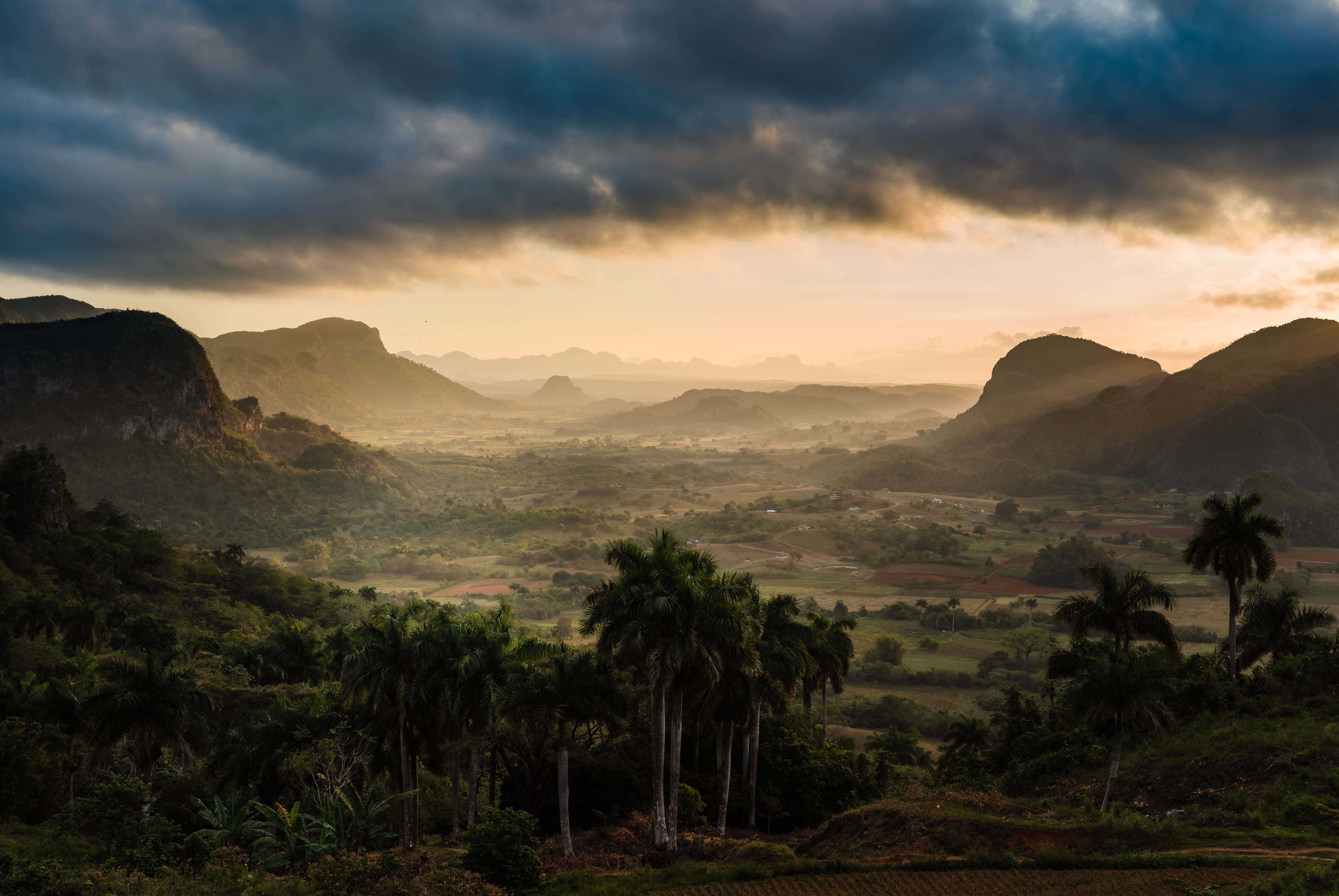
Explore the Viales Valley.
You have a variety of options for your second day in Viales. Since the beaches on this coast of Cuba are allegedly stunning and far less crowded than those in the resort-heavy Varadero, you could spend a day at the beach, the most popular beach in the area is Cayo Jutías.
If the weather isn’t good for the beach, there are other amazing things to experience like the Indios Cave, the Murales de la Prehistoria, and enjoying the Jazmines Hotel viewpoint.
Visit the main square if you find yourself in Viales on a Saturday. Speakers are set up in the main plaza, and a large crowd of locals and visitors of all ages congregate there to dance!
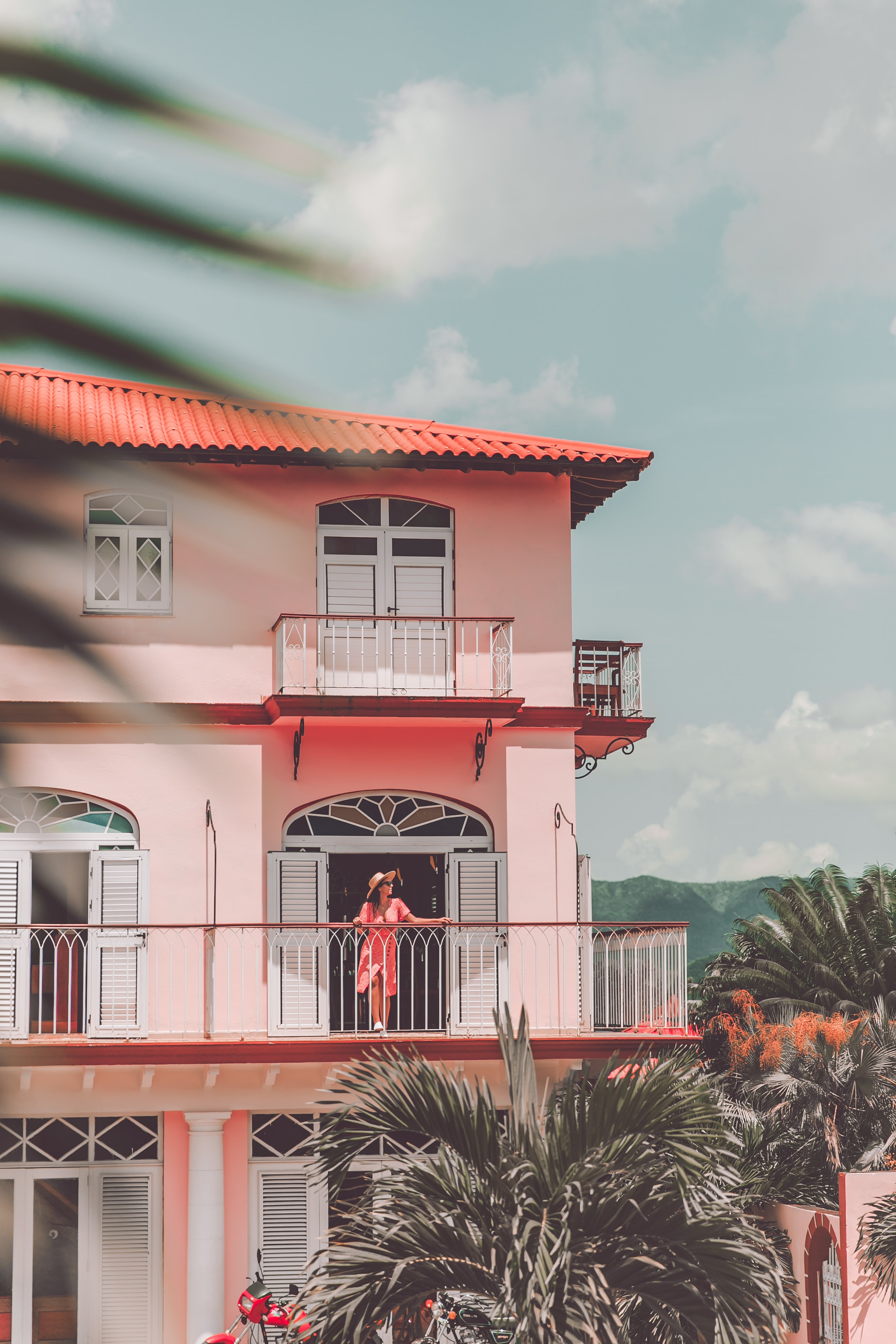
Viñales to Trinidad.
You have a long day of travel ahead of you, so buckle up. Viales to Trinidad by automobile will take at least six hours. Getting a private car costs about 200 CUP.
Trinidad is a charming colonial town with charming cobblestone streets, brightly painted homes, and bustling street markets. You can also climb to the top of the bell tower on your first day there for stunning views of Trinidad and the surrounding area.
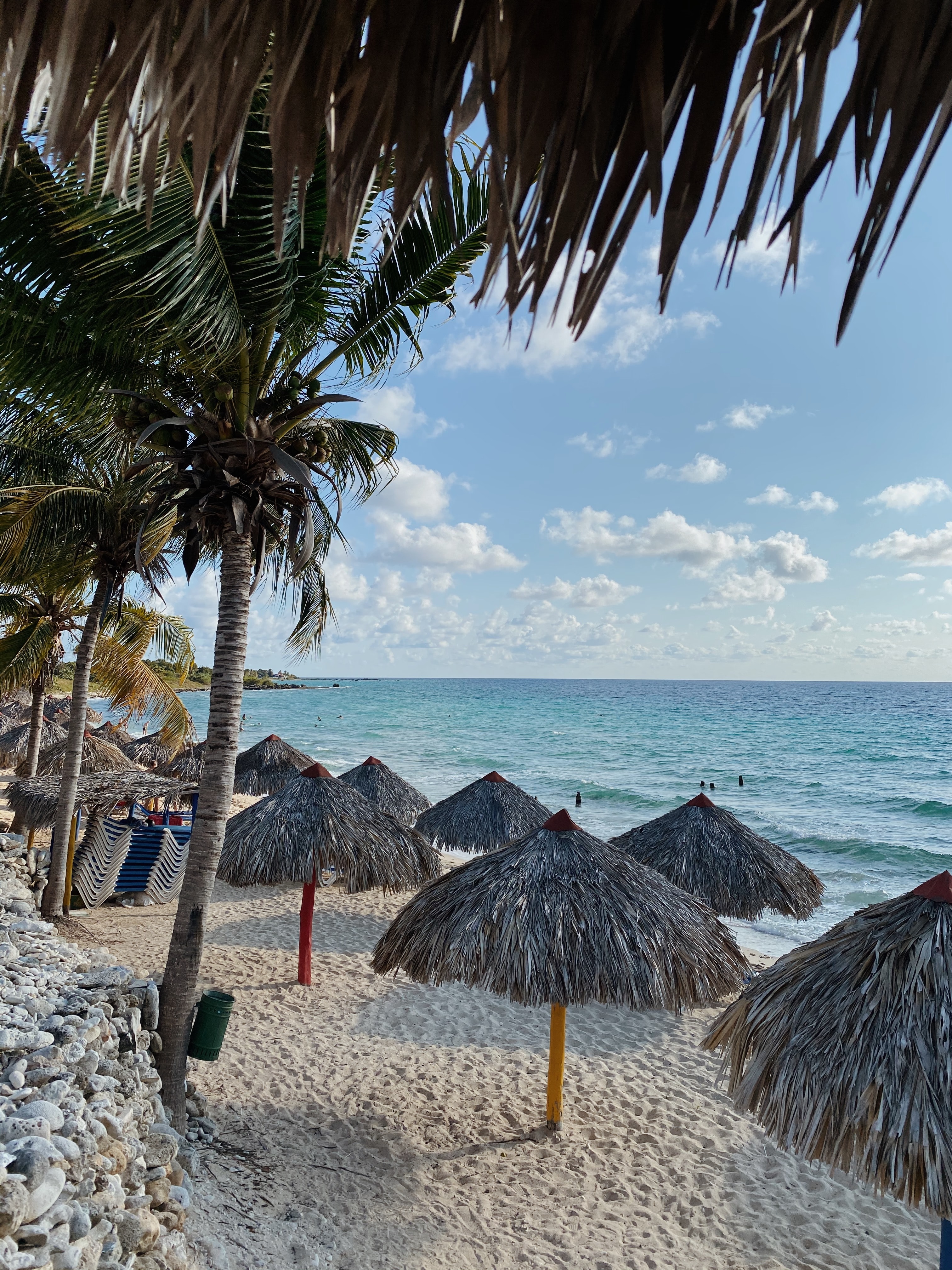
Enjoy a beach day in Trinidad
Playa Ancon is a stunning beach with miles of white sand and blue sea that is only a 15-minute drive from Trinidad. Although there isn’t much aquatic life in this region, locals may provide snorkeling and excursions to the coral reef. This beach is ideal for sunbathing on the sand and swimming in the water.
Take a taxi there for around 10 CUP. There are only two major resorts along the beach, so the taxi will probably drop you off at a resort.

Go horseback riding in the Topes de Collantes National Park
Trinidad is renowned for being near the stunning Topes de Collantes National Park. Waterfalls and lovely green scenery can be seen here. Arrange a horseback riding tour that will take you to a stunning, remote waterfall where you can go swimming.

Head back home.
Sadly, your 10-day vacation in Cuba is drawing to an end and it’s time to return to Havana. It will take 4 to 5 hours to get from Trinidad to Havana, book a private car or taxi to take you to the airport.
It will be a good idea to book an evening flight home and leave Trinidad early in the morning to make sure you get back to Havana in time taking into account possible roadblocks, traffic, etc. But if you get back to Havana with time to spare you can spend your last few hours enjoying the city where your adventure started.

Cuba is one of the safest and friendliest destinations in the Caribbean!
Cuba is much more than just sand and surf; there is a lot to see and do outside of the resorts in Varadero like in the tiny villages all throughout the island. The culture, music, and history of the island are all important aspects to really experiencing Cuba. Many travelers come to Cuba again and again because they can’t get enough of this amazing destination.
ARE YOU LOOKING FORWARD TO TRAVELING THE WORLD AGAIN?
We’ve got your back! When you’re ready to book your next getaway (such as CUBA!), contact one of our TierOne Travel agents. They will find the perfect place for your next vacation and will craft something incredible that is suited to your unique needs and will make sure your travel plans will be as stress-free as possible.
One call; endless experiences!
“Travel is the only thing you buy that makes you richer.” – Anonymous

Ready to contact a travel consultant? Please fill out the form below and a Tier One Travel consultant will be in touch!
Name: Phone:
Email: Message:
You may also like.......

Top 10 Family-Friendly Resorts in Cuba
Promos related to this blog.

Solo Travel with HX

Experience the Galápagos Islands with HX
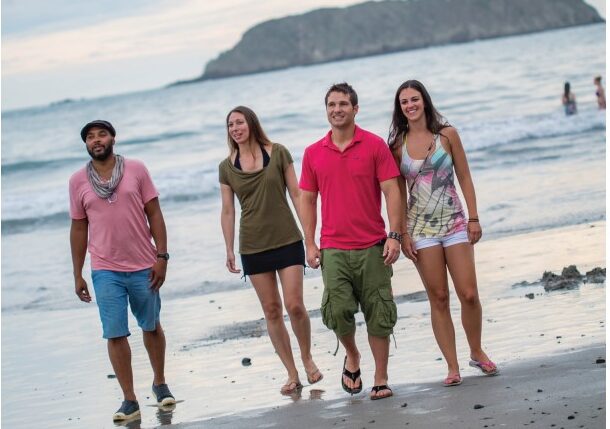
Book a Private Tour with G Adventures
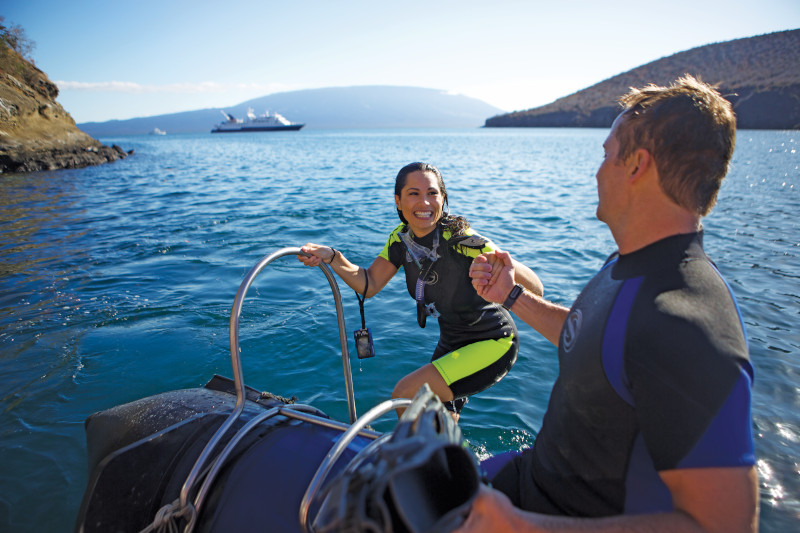
Galapagos with Celebrity Cruises

Anderson Vacations Inuit Lands
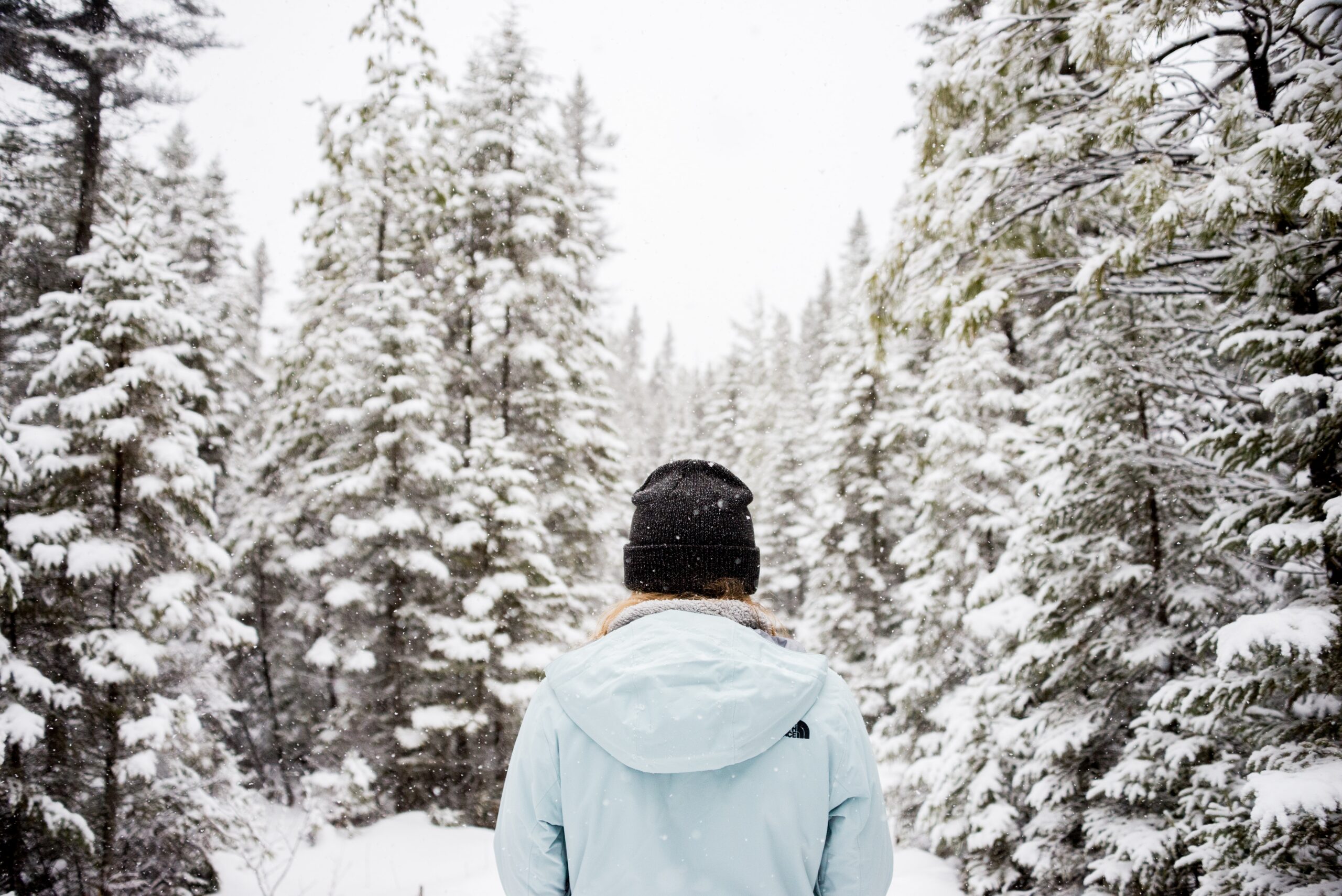
Anderson Vacations Winter in Ontario
Read our latest magazines.

Need a Vacation?
Receive travel inspiration from us and begin planning today, connect with us.
Join us on social media for the latest travel tips and advice.
Latest Posts

The Best Sunset North Carolina Beaches | 2024 Guide

The Best Time to Visit Tokyo Japan | 2024 Guide

Plan the Perfect Italy Wedding in Lake Como | 2024 Guide

Must-See Hawaii Black Sand Beaches | 2024 Travel Guide

Best Things To Do in Blue Ridge Mountains Georgia

Luxury Family All-Inclusive Resorts with WestJet Vacations
Popular tags, subscribe now.

I went to Cuba after it reopened - here’s what you need to know

Oct 27, 2020 • 8 min read
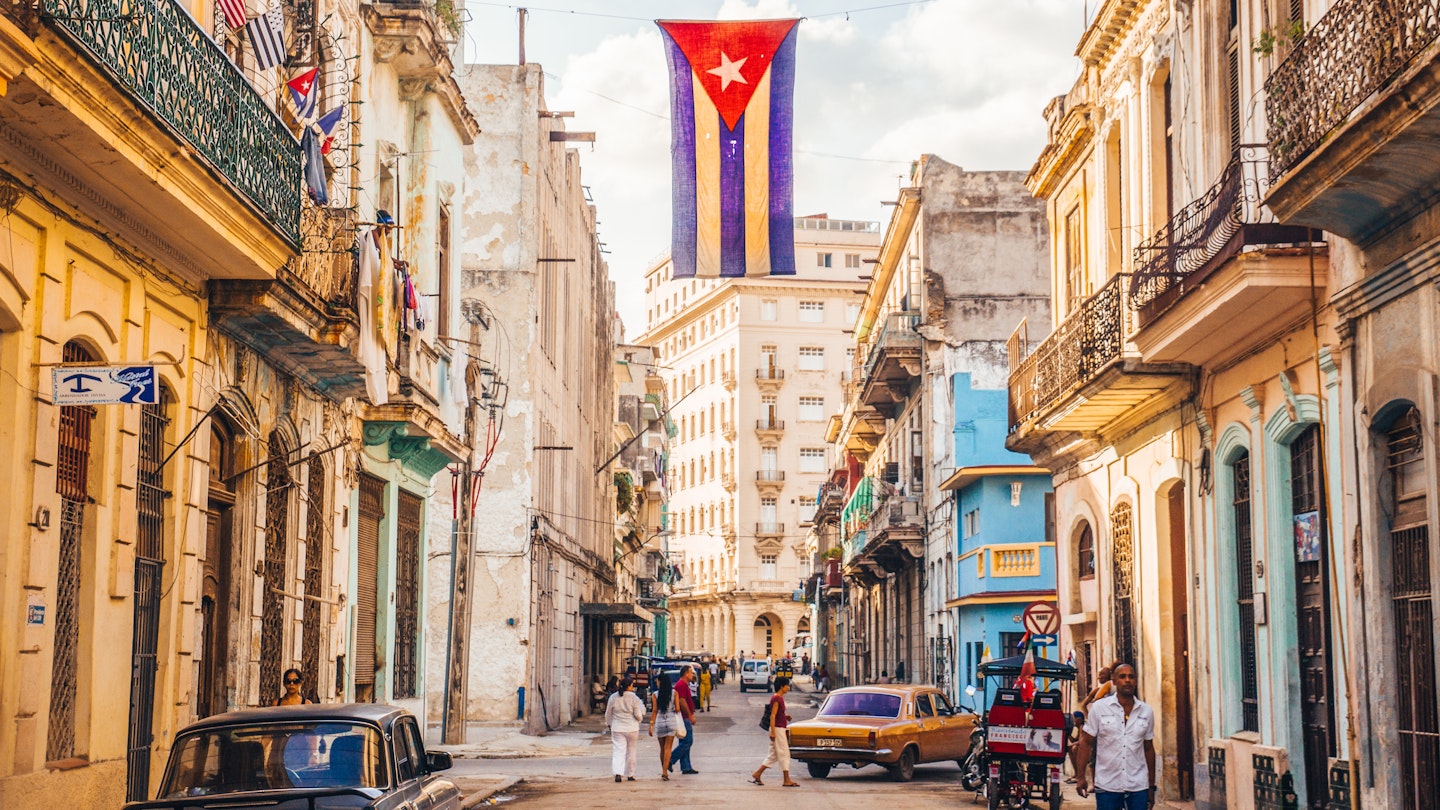
Cuba has reopened to tourists. Here's what it's like to visit © Julian Peters Photography / Shutterstock
Cuba and I go back a long way. As a Lonely Planet writer and occasional tourist, I’ve been traveling to the country for nearly 25 years, from the economic crises of the 1990s to the heady days of 2016 when President Obama and The Rolling Stones dropped by in the same month. I secretly dreamed it would be the first place I revisited when coronavirus restrictions were lifted.
The opportunity cropped up sooner than I expected. In early July, Cuba tentatively announced it was ready to reopen several of its offshore islands to tourism. Even better, to lure back nervous travelers and help boost the country’s beleaguered economy, all international visitors were to be given a free COVID-19 test on arrival.
By September, the first airplanes began flying from Canada to Cayo Coco , a large tropical key off the north coast, home to 30 all-inclusive resorts but no permanent Cuban population. Cayo Coco was to be a pilot scheme, the first stage of Cuba’s phased reopening. By screening everyone who entered, including hotel workers bused in via a causeway from the Cuban mainland, the government would create a unique COVID-free vacation zone.
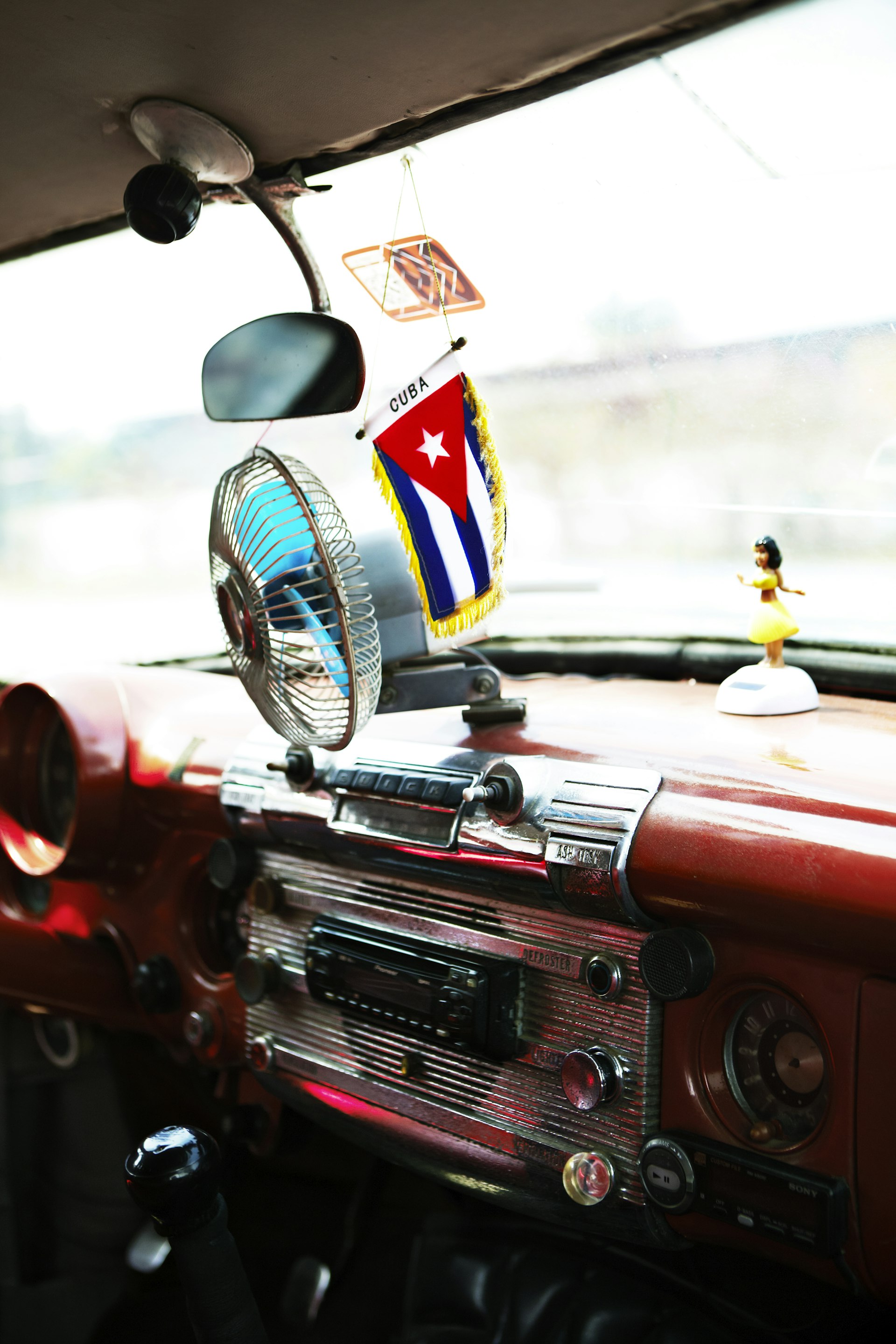
Booking my trip
After scouring the internet for deals and flight information, I made a booking with Air Canada, the first Cuba-bound airline to reactivate flights in September. My package included return flights from Vancouver , a mandatory hotel reservation and special COVID-19 medical insurance. All in, my trip cost CAN$912 (US$693 at current exchange) – that's hotel (including food and drink), bus transfers, return flights from Vancouver and insurance. But rates may start going up in November.
For this trip, at least, I would be confined to an all-inclusive resort strip off Cuba’s north coast with no access to the mainland. Nevertheless, the journey still had some inherent risks. A positive COVID-19 test at the airport would leave me facing up to two weeks in a Cuban hospital. Similarly, when the fun was over, I would have to endure 14 days of quarantine back home.
Weighing up the pros and cons, curiosity prevailed over indecision. In the unpredictable world of travel writing, journeying into the unknown is part of the job description. I loaded up on hand sanitizer, obtained a good mask for the plane and got ready to head south.
Cuba and the pandemic
In the global battle to mitigate coronavirus, Cuba has emerged as the New Zealand of the Americas: the country currently has the lowest death rate (per million inhabitants) in Latin America. In a nominally socialist country, state control and central planning has helped stem the flow.
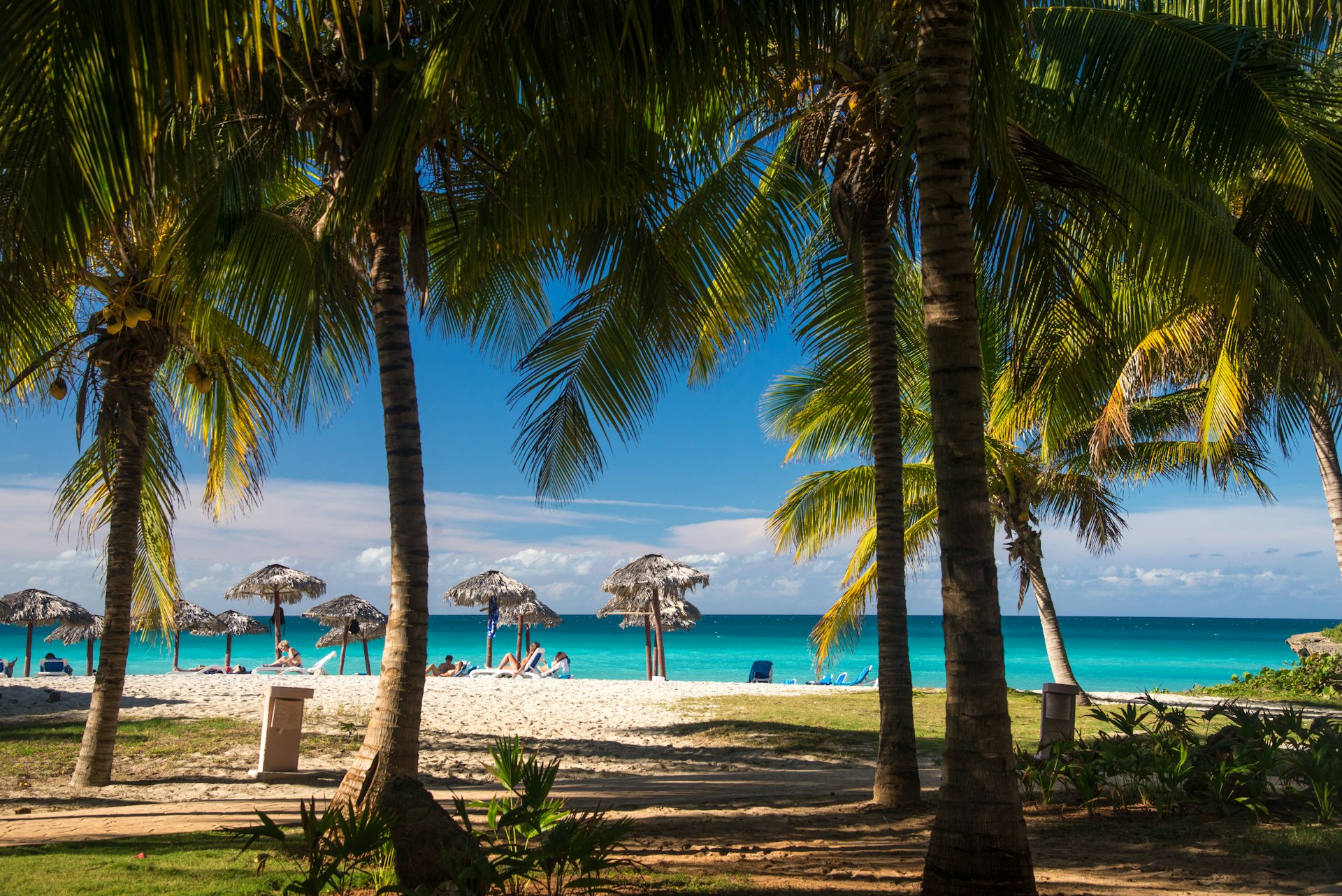
"Cuba has overcome the pandemic thanks to a 'prevention and control' plan, prepared in January 2020," Roy Perez in Santiago de Cuba explained to me when I contacted him by email for some pre-trip advice. "The plan included training medical staff, preparing quarantine facilities, implementing special contact-tracing processes, and informing the public (including tourism workers) about symptoms and precautions.
"Medical students went door to door to screen thousands of people daily. Masks remain mandatory, and the fines for being caught without one are pretty stiff."
Roy is the co-owner of Roy’s Terrace Inn , a private homestay and restaurant in Cuba’s second city. Prior to my trip, I asked him and another friend, Luis Miguel in Havana how Cubans felt about tourists returning when the country fully reopens, possibly as early as December.
"Economically speaking, Cubans are more than ready for visitors to return." Roy said, "While there’s an underlying fear that reopening could lead to further COVID-19 outbreaks, I think 90% of Cubans are willing to take the risk."
Luis Miguel, who runs Casa 1932 , an art deco-themed homestay in Centro Havana, agreed. "I have kept my business closed in line with the country’s COVID-19 protocols, but after carrying out some renovations over the summer, I am ready to start offering my services again, this time with higher quality and new standards of hygiene."
Roy also hopes to reopen soon: "Now that the COVID-19 measures have been eased, we certainly will open the business again. In fact, we already have some bookings for November, December and January from Canadian, Italian and German guests. We are super happy to say we’ve had zero COVID-19 cases in Santiago for over two months."
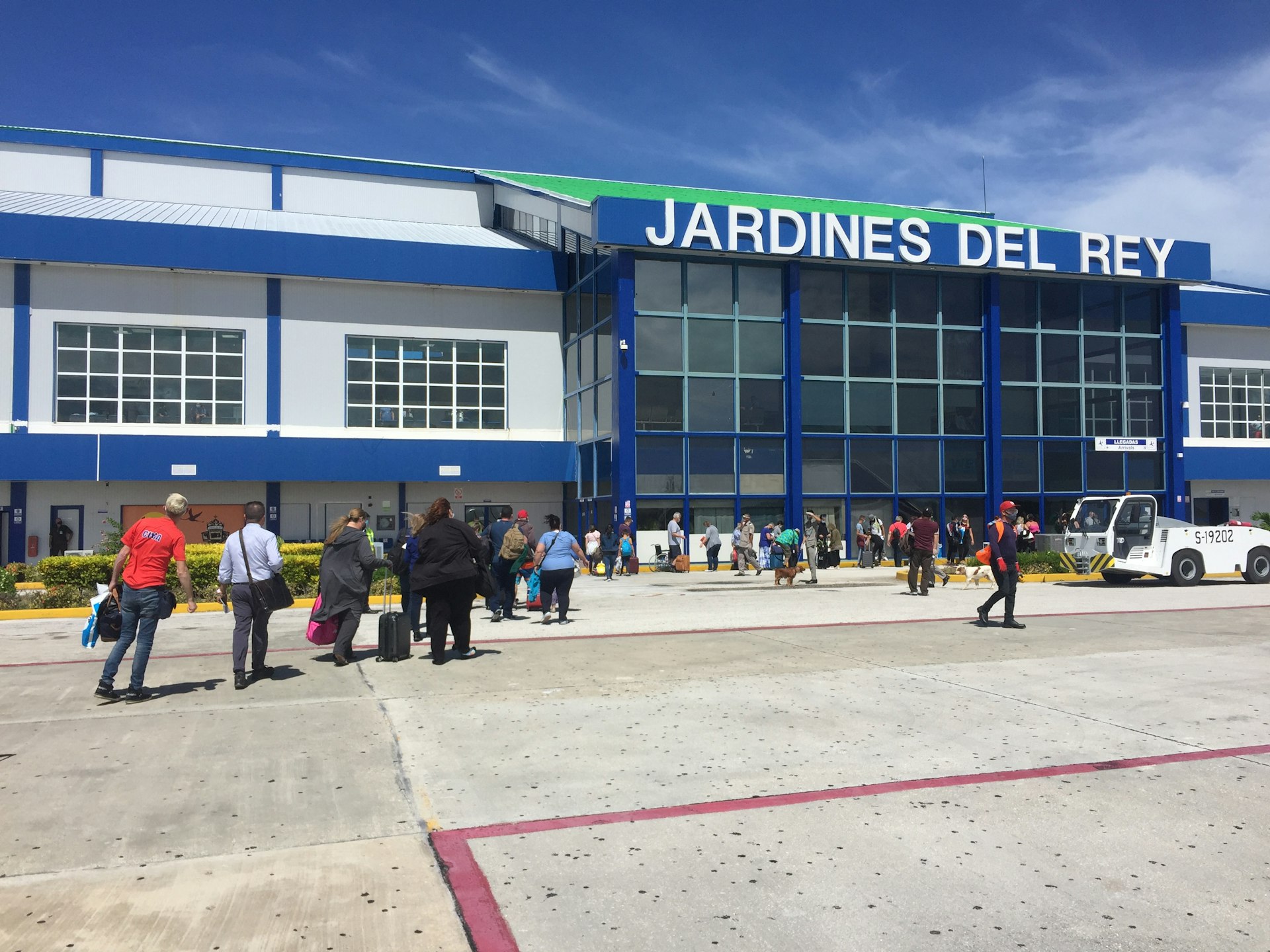
Arriving in Cuba
Braced for my own trip, I arrived at a deserted Vancouver airport on a Friday night in mid-October for the red-eye to Toronto, my first flight since the beginning of the pandemic. Though relieved to see the plane’s middle seats had been left empty, I still felt paranoid enough to pull on two face masks and hold my bladder for an agonizing four-and-a-half hours until we landed (thoughts of a Cuban hospital stay had me spooked).
By bizarre contrast, the connecting flight in Toronto was jammed full. Sitting elbow-to-elbow with 200 COVID-weary Canadians, I metaphorically held my breath for three hours as we coasted over the US and the Straits of Florida arriving five minutes early at Cayo Coco’s Jardines del Rey airport to a relieved round of applause.
The disembarkation was quick and smooth. First, our baggage was sanitized on the runway; then we were filtered through an air-conditioned lounge for a blink-and-you’ll-miss-it COVID-19 test (two swabs up the nose, one in the throat). Next, it was through customs, security, baggage collection and a final temperature test before we exited the airport. The whole airplane was processed in less than an hour. It was an impressive start.
The Cubans were extremely happy to see us. The pandemic combined with a recently tightened US embargo has hit the already weakened economy particularly hard. Tourism accounts for over 10% of Cuba’s GDP and Canadians make up nearly one-third of all tourists. We were enthusiastically welcomed with smiles, music, dance, and rum cocktails.
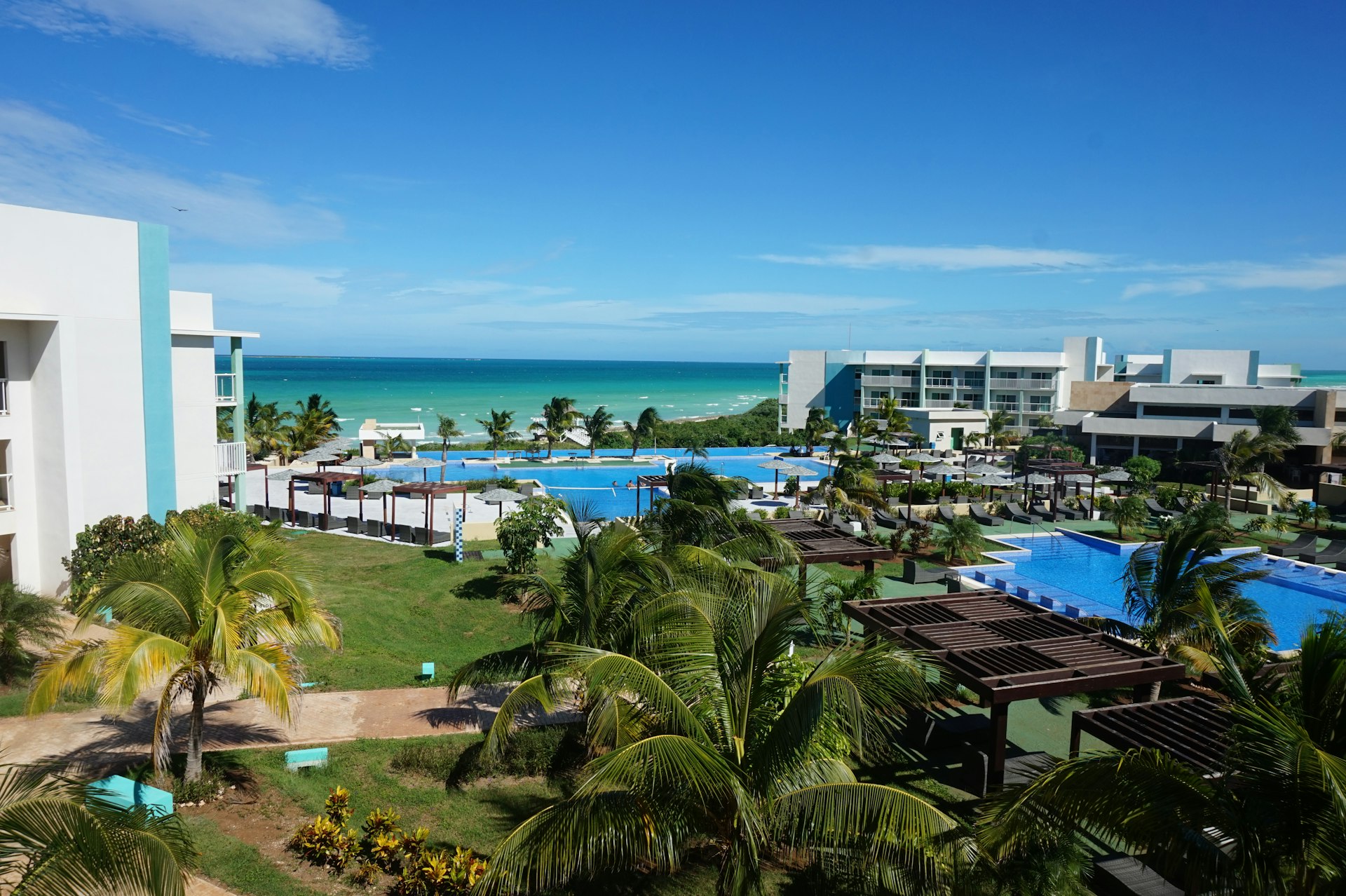
A surreally empty hotel
I was staying at Hotel Gran Muthu , a 500-room resort on Cayo Guillermo, Cayo Coco’s beach-rimmed smaller sibling, where there were only 26 other guests. What would normally resemble a noisy holiday camp, became a tranquil monastic retreat in a pleasant tropical island setting with better food and more gregarious service (staff outnumbered guests by about three to one).
For the first day masks remained mandatory, but after the arrival of our COVID-19 test results the following morning (everyone tested negative), they were peeled off with barely suppressed glee. I had almost forgotten what it felt like to stand next to a stranger and have a face-to-face conversation.
For the next seven days I reveled in my idyllic tropical cocoon, roaming deserted beaches, looking for flamingos in briny mangrove swamps, troll fishing for barracuda and reading Hemingway. It felt about as safe as you could get in a world preoccupied with coronavirus.
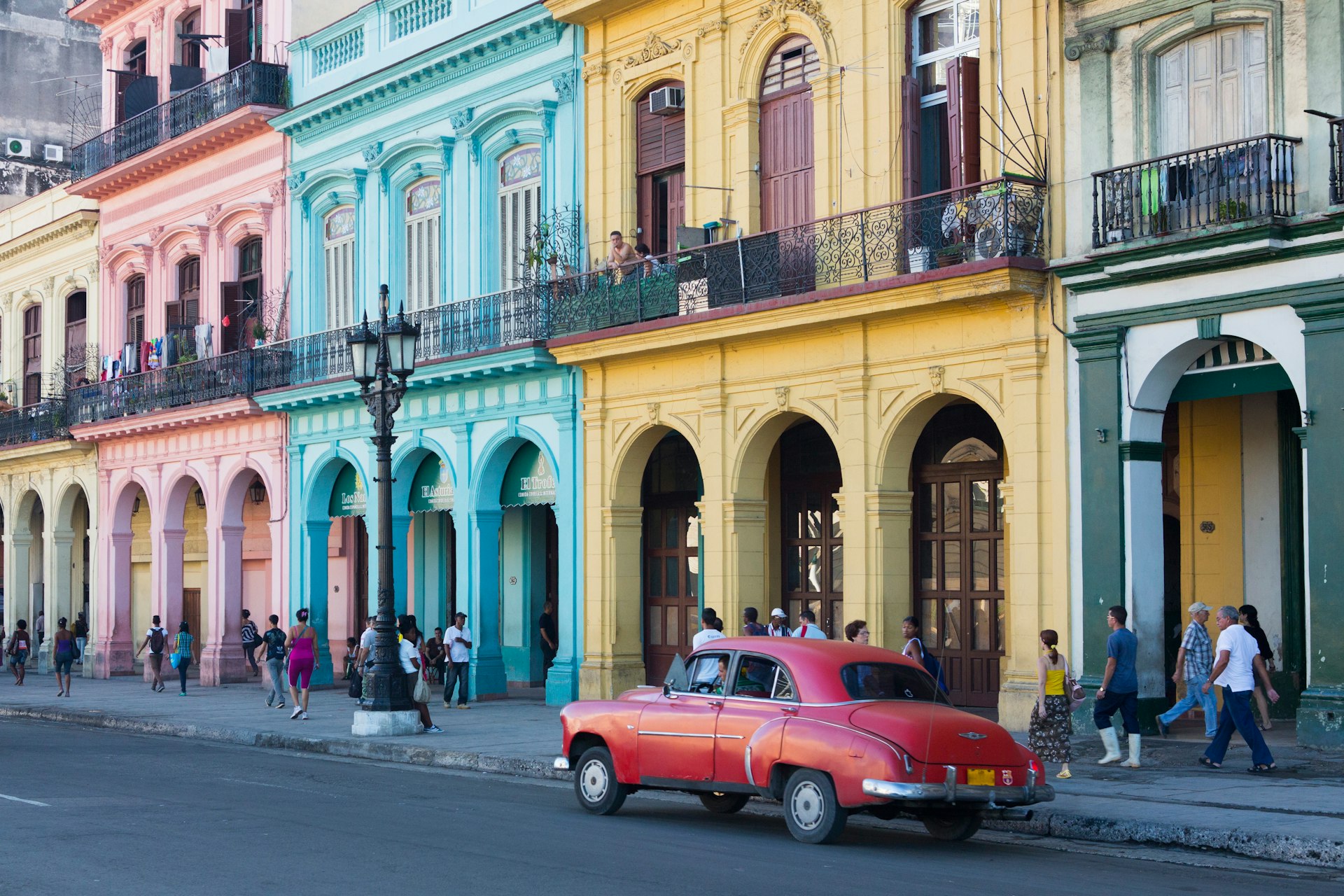
Is it safe to visit Cuba?
So far, Cuba has performed surprisingly well in both managing the pandemic and reopening for tourism in a way that is safe and effective. Six hotels were operating when I visited, but other tourist zones in Cayo Santa María and Varadero are due to open in early November.
All hotels are well staffed with a resident nurse, doctor, and epidemiologist, and fully stocked with abundant sanitizers and cleaning materials. Staff generally work two-week shifts followed by two weeks at home. They are tested before every new shift and always wear face masks when dealing with tourists.
While no system is fool-proof and COVID-19 has a nasty way of eking its way into anywhere and everywhere, Cuba’s reopening has proved to be unique and relatively low-risk. Two months in, only one person (a Cuban-American) has tested positive for coronavirus. If you’re longing for a quiet getaway and can handle the 14-day quarantine when you get home, keep an eye out as new travel bridges open and more airlines resume flights. In Cuba, you’ll be heartily welcomed.
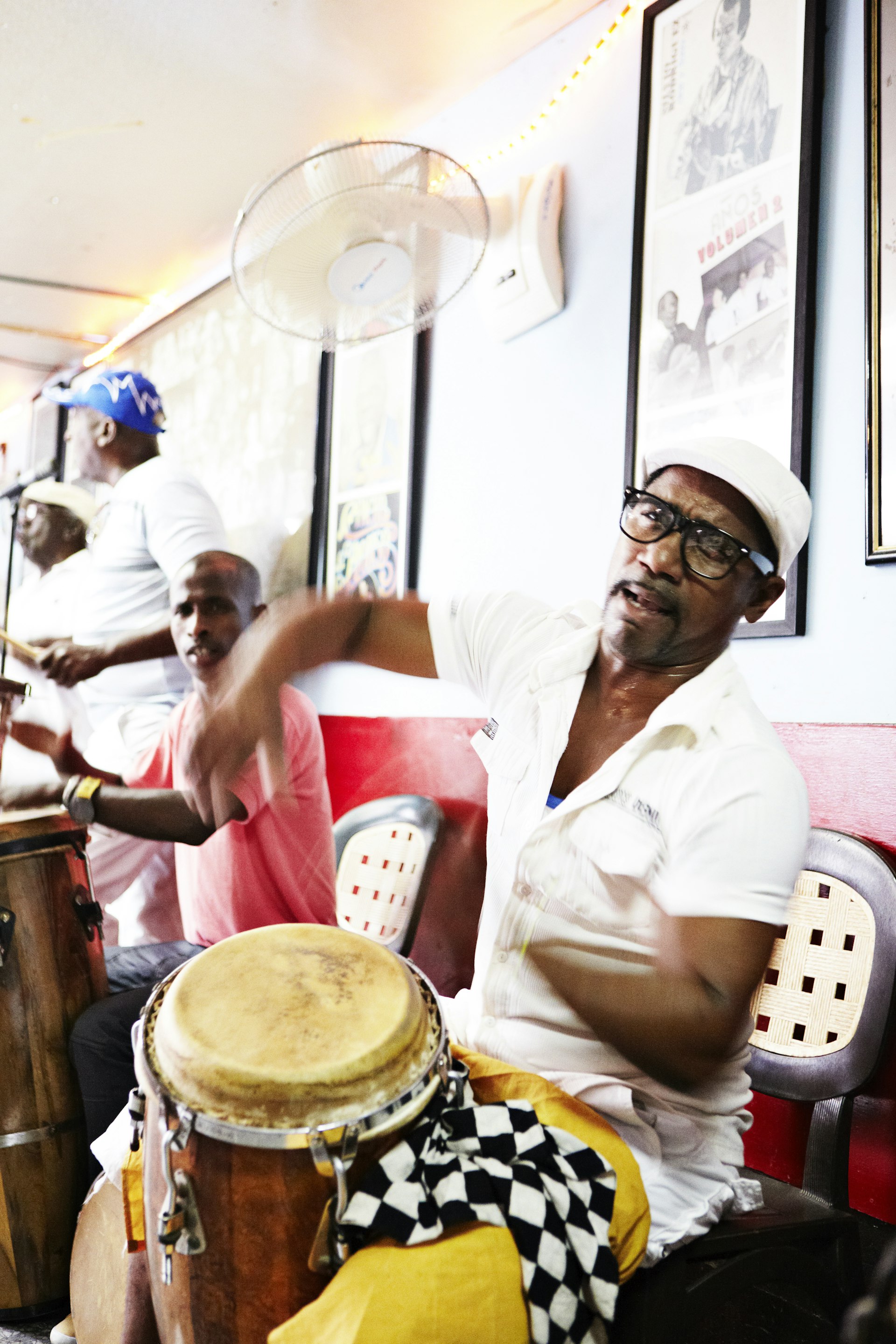
How to visit Cuba
TUI Group resumed twice-weekly flights from the UK to Cuba starting in the late October. Flights run from Manchester and London Gatwick to Varadero. Travelers must book full hotel packages and aren't allowed to leave the resort zone. Covid insurance is included in the package and all visitors get a free Covid test at Varadero airport. UK citizens aren't required to quarantine when they return home. German charter Condor will also resume flights to Varadero in early November from Frankfurt & Dusseldorf.
From Canada, Air Canada Vacations flies once a week from both Toronto and Montreal into Jardines del Rey Airport. Varadero flights will be added in November and Cayo Santa Maria in December. Westjet , Sunwing and Air Transat will resume flights from Canada to Cuba in early December.
Currently, there are no flights from Cuba to the US.
For the time-being, only three main tourist enclaves are open for business: Cayo Coco, Cayo Santa Maria and Varadero.
You can't currently fly into Havana and the city remains closed to international visitors. As yet, there is no concrete date for when the city will reopen (word on the street suggests before Christmas).
You might also like:
Here are the new rules for visiting the Caribbean Why female Cuban professionals are leaving their careers to become artists Which Caribbean island is best for you
Get more travel inspiration, tips and exclusive offers sent straight to your inbox with our weekly newsletter .
Explore related stories
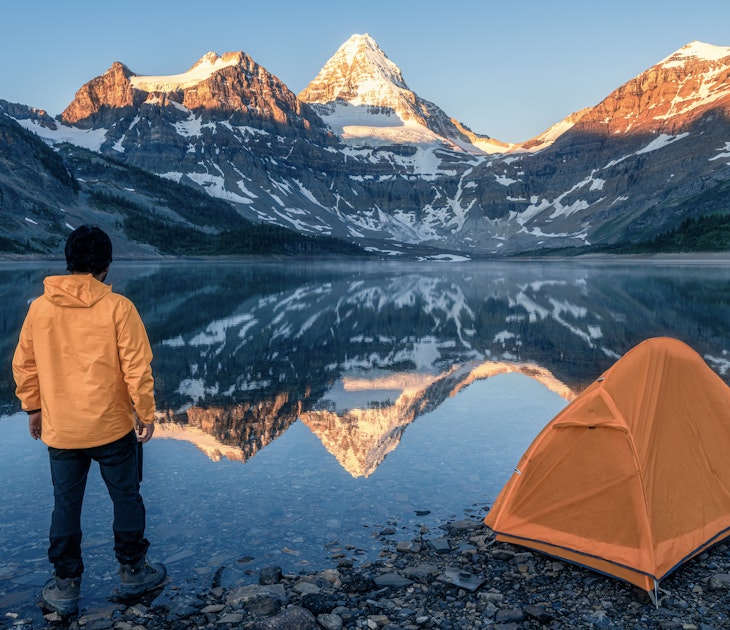
Budget Travel
Apr 12, 2024 • 7 min read
Canada abounds with pleasures – which, unfortunately, don’t come cheap. Here are a few ways to explore the country without breaking the bank.

Apr 11, 2024 • 6 min read
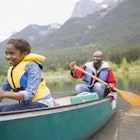
Apr 11, 2024 • 10 min read

Apr 2, 2024 • 8 min read

Mar 30, 2024 • 4 min read
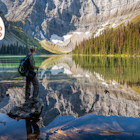
Mar 19, 2024 • 6 min read
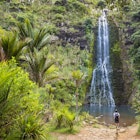
Mar 15, 2024 • 17 min read

Mar 1, 2024 • 12 min read

Feb 21, 2024 • 7 min read

Feb 7, 2024 • 5 min read
Top Cuba Tours & Cruises in 2024
- Start Date Select Month April 2024 May 2024 June 2024 July 2024 August 2024 September 2024 October 2024 November 2024 December 2024 January 2025 February 2025 March 2025 April 2025 May 2025 June 2025 July 2025 August 2025 September 2025 October 2025 November 2025 December 2025 January 2026 February 2026 March 2026 April 2026 OR, More specific start
- Easy Active
- Most Popular
- Local Market Visits
- Urban Exploration
- Wildlife Viewing
Cuba Kayaking West Tour
- See Cuba's great cities
- Visit the Bay of Pigs
- Kayak and snorkel in Cuba
- Enjoy unique architecture & cuisine
Cuba Cycling Tour
- Cycle through western Cuba
- Visit Hemingway's former home
- Ride through Cuba's tobacco fields
- Explore Havana on foot
Cuba Multisport
- Bike, kayak, snorkel, and hike Cuba
- Appreciate Cuba's colonial past
- Be immersed in Cuba's culture
- Enjoy excellent wildlife viewing
- Experience Cuban hospitality
Cuba Walking Tour
- Explore Cuba on foot
- Snorkel in Zapata National Park
- Learn about the tobacco industry
- Hike to waterfalls and caves
Classic Cuba
- Walk the vibrant streets of Havana
- Sample rum and local delicacies
- Tour cigar-rolling factories
- Explore stunning Valley de Vinales
- View Hemingway's former estate
Top Cuba Travel Destinations
- Greater Antilles
Top Experiences in Cuba
- Cuba Land Tours (5)
- Cuba Cultural (4)
- Cuba Active (3)
Cuba Trips by Activity
- Cuba homestays (4)
- Cuba hiking (4)
- Cuba snorkeling (3)
Why Travel With Adventure Life
Recognized by.

The Ultimate Cuba Travel Guide 2024
These days it is relatively easy for Americans to obtain a Cuba travel guide and venture to this once-forbidden Caribbean island. For most, it's no more difficult than planning a trip to any other foreign country. In fact, the process may be easier now for Cuba than for some countries that require a visa. Here's the step-by-step process you should follow to plan a fun, safe, and legal trip.
Once you give the article a read feel free to contact us with any questions you still have about planning an incredible Cuban excursion.
Want to explore Cuba differently? Have a local plan your trip .
Table of Contents
Prepare an itinerary and license, purchase a plane ticket, book a place to stay, buy a cuban tourist card, purchase health insurance.
- Exchange money
Places you'll need your passport and/or tourist visa card
Flying home: customs.
Here's the process you should follow to plan yourself a fun, safe, and legal trip:
Unfortunately, Americans can't travel to Cuba just for fun quite yet. You need to declare your reason for travel in the form of a general license ( a self-reporting license that you can learn more about here ) and be able to back that up with a Cuba travel guide or plan.
As part of the license, you will need to prepare a detailed itinerary - your Cuba travel guide - showing what you plan to do on your trip and how it fulfills the terms of the license you selected. For example, if you are reporting your trip under Support for the Cuban People you will need to document interactions with locals and contributions to the local economy. You could do this by booking accommodations at a Casa Particular , signing up to take language classes from a local, visiting museums, and volunteering for a local organization, just to name a few options.
Rumor has it that you have to charter a flight or book through a travel agency in order to travel to Cuba. This simply isn't true. You can book a ticket yourself, no problem. Ten commercial airlines offer flights from the U.S. to Cuba now. Get all the details in our post all about plane tickets . (And just keep in mind that as of 2019, Americans can only fly into Havana .)
Whether you choose to stay at a Casa Particular or at a hotel, you'll want to book at least your first night in advance. You can book on the fly if you like to stay at [...]. They are everywhere and you can generally find last-minute rooms. On the other hand, if you're a hotel person, know that hotels are scarce in many places and many are off-limits to Americans who can't stay in hotels affiliated with GAESA , the Cuban military organization. If you're set on a hotel, book in advance, confirm your room a few days beforehand, and be prepared to stick to your Cuba travel guide or itinerary.
Now that you're on your way, there are a few more formalities to address. The Cuban Tourist Card is similar to a and is required by the Cuban government. The easiest way to get your Cuban Tourist Card is online in advance through sites like Online Tourist Card . Y ou can also purchase your Tourist Card from your airline, but pricing and purchase location vary. Plus, buying your Tourist Card ahead of time means not waiting until the last minute to secure your necessary documentation. Just d on't lose it—you'll need it to get home!
Health insurance is mandatory. You won't be allowed through customs unless you purchase Cuban health insurance. It only costs about $4 per day and if you're flying an American airline from the US, it's included in your ticket. This small investment is required because American health insurance cannot be used in Cuba due to the embargo. If you happen to be flying through a third country and you are an American, there will be a table selling health insurance just before you enter the queue for immigration. It's legit, and if you don't have Cuban health insurance the immigration officers will kindly point you to the table to purchase before proceeding.
Exchange money
Withdraw plenty of cash before you leave the United States because your credit card won't work once you get to Cuba. Once you're in Cuba, exchange American dollars for Cuban Pesos (CUP).
Keep your passport and tourist visa card with you throughout your trip to Cuba. You'll need both to get home.
You'll need your passport when checking into casa particulares . Your host will photocopy your passport or take down essential information from it. This will be given to the local immigration office. It's standard practice and nothing at all to worry about.
Other than that, you'll only need these items and your Cuba travel guide at customs, if you choose to rent a car , or in other rare circumstances.
This is the spot where people get a little bit antsy, but there's absolutely no reason to be nervous.
At Cuban customs , you'll need your tourist visa card and ticket, customs will stamp both. So don't lose the tourist visa card you received when you entered the country! Unless that is, you never want to leave.
At US customs, fill out the customs declaration form just like you would when arriving home from any other foreign country. When you speak to the customs officials, just be honest. Your trip to Cuba has already been noted so don't deny it, that will just make you look suspicious. If an official asks where you've been, tell them where you went to Cuba and which general license category you traveled under. In 95% of cases, that'll be that, no further questions. If you are asked more questions, just keep answering honestly. Have your Cuba travel guide ready just in case customs wishes to review it. It is very rare, but don't be alarmed if your bags are searched since there are limitations on what you can bring back from Cuba . As long as you've declared what you purchased and didn't exceed purchase limits on cigars and alcohol, you'll be fine.
Most importantly, have a great time on your trip to Cuba !
Have more questions about Cuba? Here is a list of local Cuban Travel Experts who can help you or you can chat with us to get answers to any questions you have. And before your trip, make sure to check out:
- Connect With a Local to Plan Your Trip
- You Can Still Travel to Cuba: 2024 Update
- Cuban Tourist Cards and Visas
- Cuba Info for Americans
Looking for more info?

- 800-450-2822
- Travel Agents
Search form
- Your Booking
- insightCuba
- Classic Cuba
- Weekend in Havana
- Private Departures
- Custom-Made Tours
- Support for the Cuban People Travel
- Boutique Residences
- When to Go?
- Cuba Destinations
- Entry Requirements
- Travel Insurance
- Cuba Travel History
- Official Documents
- What to Bring
- Things to Know
- Health and Safety
- Regulations
- Electronics
- Havana Marathon
You are here
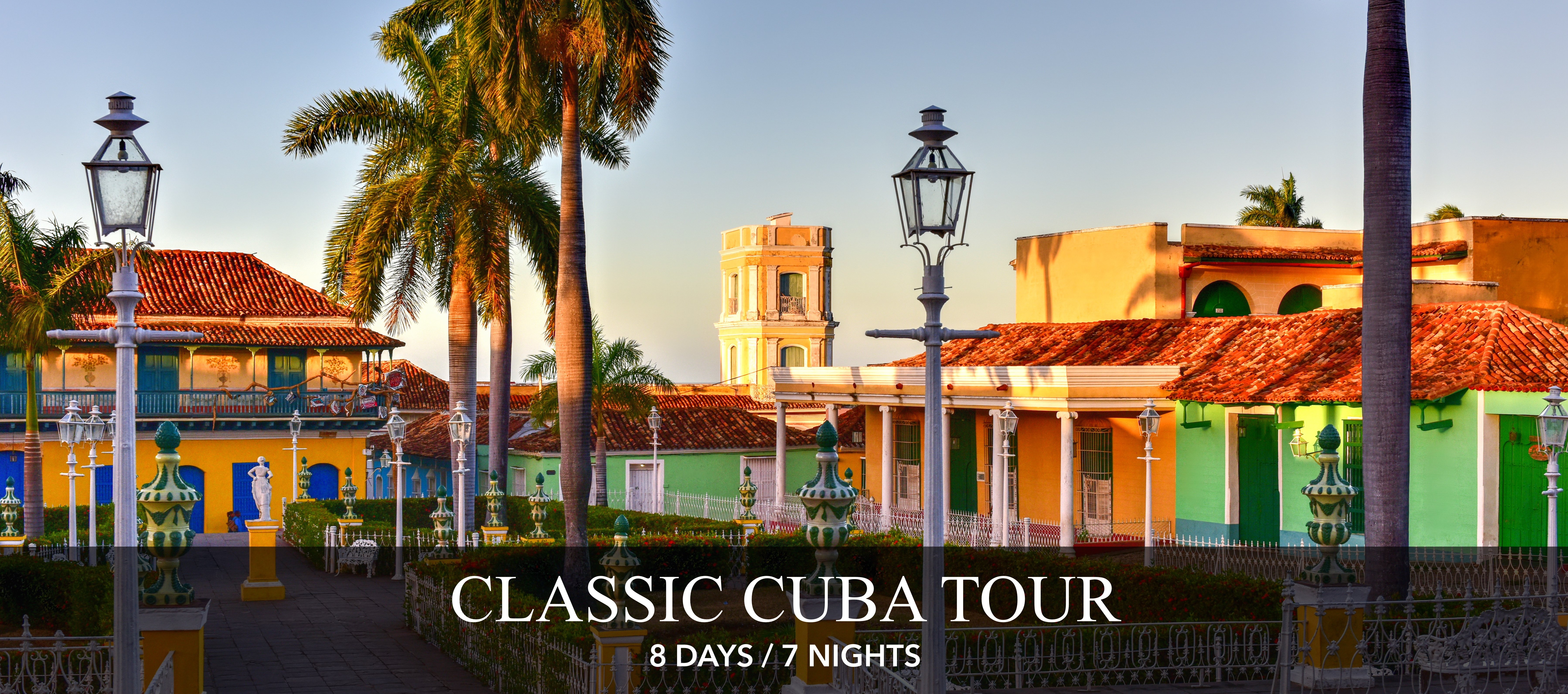
Classic Cuba Tour Overview
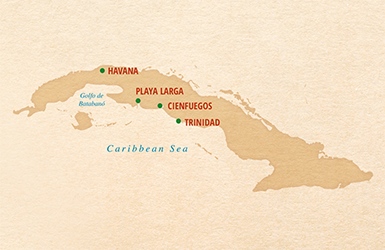
This exciting, eight-day journey to Cuba's most famous cities will add the brushstrokes to the unfinished canvas of your vision of Cuba. Your experience begins in the bustling harbor city of Havana and continues on through Playa Larga and Playa Girón before settling into the artistic enclaves and colonial treasures of Trinidad and Cienfuegos, known as "the pearl of the South."
NO MORE THAN 10 GUESTS
INTIMATE - ENGAGING - TRANSFORMATIONAL
Daily Experiences
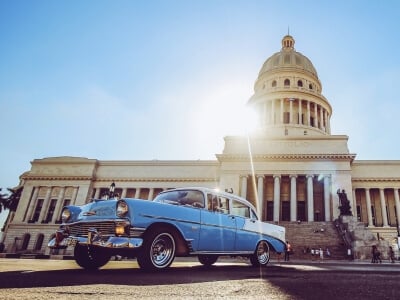
WELCOME TO CUBA!
Arrive at José Martí International Airport, Havana where you'll be picked up and transferred to your accommodations.
Check-in: 3:00PM | Tour Start Time: 6:00PM
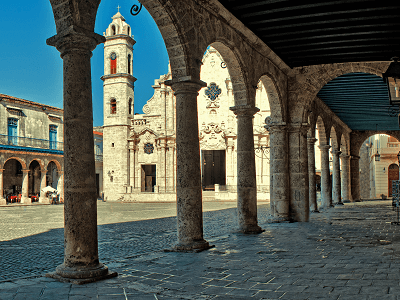
PRIVATELY GUIDED-WALKING TOUR OF OLD HAVANA
Experience the history and heart of Havana, guided by an expert local guide. Dsicover the city's rich culture as you traverse its enchanting streets, uncovering hidden gems along the way. Explore a labyrinth of cobblestone streets during a privately-guided walking tour of Havana’s city-center, La Habana Vieja. Founded in 1512, you’ll visit some of Old Havana’s most important sites: the Plaza de Armas, Plaza de San Francisco, Plaza de Cathedral, Plaza Vieja, and more.
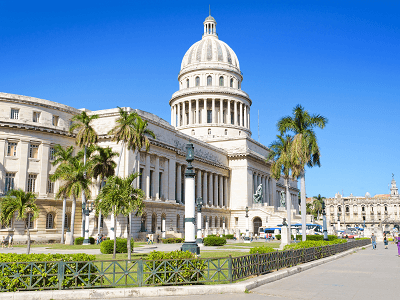
BICITAXI TOUR OF EL CAPITOLIO
Not only will you be supporting an independent owner/driver – you'll travel like a local when you hop on board the Bicitaxi for a tour of El Capitolio! Completed in 1929 and fully restored in recent years, this building held Cuba's congress before the revolution in 1959. Your expert local guide will share their experiences as you learn about its construction, and history – and get a look inside the halls of limestone and granite.
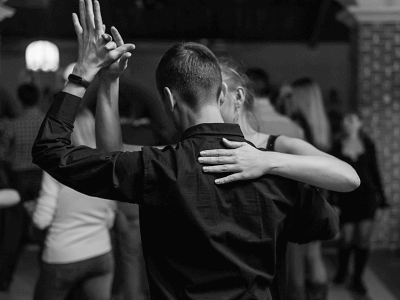
SALSA LESSONS
Cuban Salsa, Rueda de Casino , was developed in the 1950s as the island’s own, unique form of salsa. Since then, Cuban salsa has captivated audiences worldwide. Meet some of Cuba’s talented, energetic salsa dancers, then learn the finer steps for yourself.

FOREIGN-RELATIONS MEET & GREET
Join Camilo Garcia, a 20-year veteran of the Ministry of Foreign Relations for a conversation about Cuba’s modern-day diplomacy. With diplomatic experience in the United States, Canada, the Netherlands and United Nations, he has unparalleled insight into Cuba’s place in the world. Now working at an audiovisual production company and artistic events, he also has a background in cultural organizations and he will join us for a wide-ranging discussion of Cuba’s social, political and economic challenges.
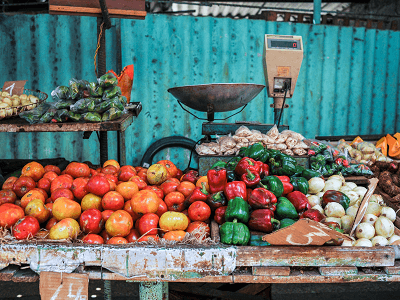
FARMER’S MARKET
Visit a local farmers market, where you’ll get a first-hand look at Cuba’s agricultural revolution. In these bustling markets you’ll find only local food – almost always organic. This switch to natural farming came in the early 90s when oil and pesticide shortages forced Cuba to radically alter its agricultural economy. Today, the country is a model for the world, as other communities trend toward more sustainable farming methods.
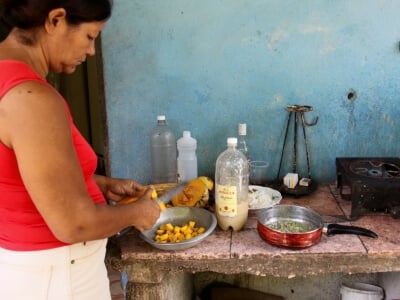
COOKING CLASS
Break bread with new-found friends in an in-home cooking class followed by lunch at the home. Get tasteful insights into Cuban culture as you go hands-on and prepare a meal with locals. Laugh, share stories, and learn every step of authentic Cuban dishes. And finally, sit down to enjoy the fruits of our labor.
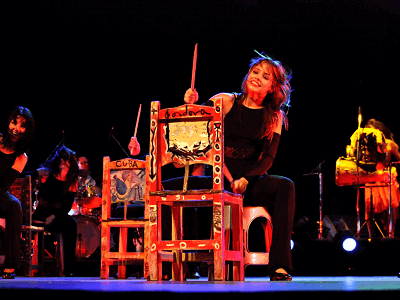
HABANA COMPÁS DANCE COMPANY
The Cuban equivalent of STOMP – these young and dedicated dancers combine Spanish folk music with Afro-Cuban rhythms to create one-of-a-kind performances. Fiery and energetic by nature, the Habana Compás Dance Company surprises guests with beats and moves based around chairs, boxes, and drums.
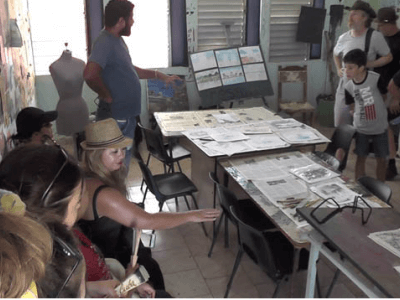
KORIMAKAO ARTISTS COMMUNITY
Uncover the soulful essence of Cuban artistry and its rich cultural heritage, creating memories that will forever ignite your passion for artistic expression. Experience the creative energy of local artists as you explore their studios, witness their masterpieces come to life, and engage in thought-provoking conversations.
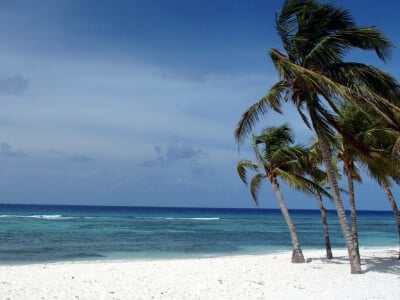
BAY OF PIGS
Continue on your journey to Trinidad, one of Latin America’s best preserved Colonial cities. Stop at the historic Bay of Pigs area where local entrepreneurs rent snorkel gear for a small fee. For those that do not want to swim, you can sit an enjoy the fresh air and take in the scenery.
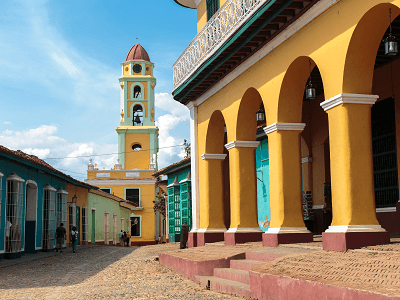
PRIVATELY GUIDED-WALKING TOUR OF TRINIDAD
Immerse yourself in the vibrant rhythms of colonial charm as you embark on privately-guided tour of Trinidad. Your local guide will share with you the history, budding entrepreneurial scene, and so much more! From cobblestone streets lined with pastel-hued mansions to hidden plazas echoing with Afro-Cuban beats, uncover the timeless allure of this UNESCO World Heritage site, where history dances gracefully in every corner.

ARTIST MEET & GREET: YUDIT VIDAL
Visit artists in Trinidad (Yudit Vidal – Alas y Pincerso) Meet with and learn from Cuban artist, Yudit Vidal Faife. Yudit Vidal Faife is a visionary artist in Cuba, whose vibrant paintings capture the spirit of her homeland. With bold brushstrokes and vivid colors, she brings to life the rich culture and history of Cuba, inviting viewers on a journey of beauty and emotion. Through her art, Yudit expresses the essence of her beloved country with passion and authenticity.
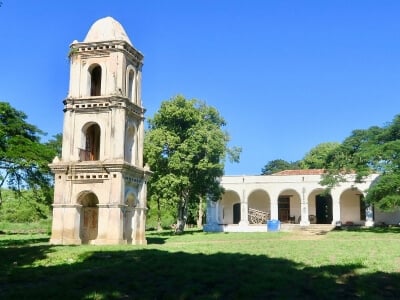
SAN ISIDRO DE LOS DESTILADEROS
Three interconnected valleys, covering one-hundred square miles, make up the Valley de los Ingenios. The surrounding fields were the center of sugar production during Spanish rule in the 18th and 19th centuries. But bright views and landmark ruins play contrast to the area’s dark history when over 30,000 slaves worked the fields. Wander through the ruins at San Isidro de Los Destiladerso, as we learn how nearby Trinidad amassed its wealth.

PRIVATE FARM VISIT
Nestled in the Sierra Escambry Mountains, visit a small, entrepreneurial farm to meet and support local farmers known as “guajiros”. Discover serene trails, waterfalls, and swimming spots on a guided walk in the Escambry mountains. Be on the lookout for local birds and wildlife. Later, visit a private ceramic workshop. Enjoy fresh fruits and juices followed by a farm to table lunch.
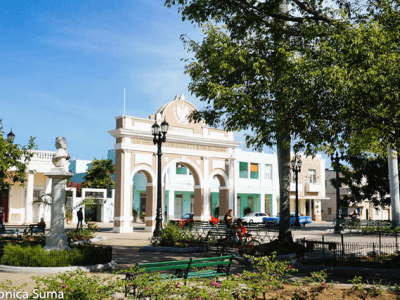
PRIVATELY GUIDED WALKING TOUR OF CIENFUEGOS
Join your local guide as you discover the city's colonial charm and architectural wonders. Founded in 1819 by French settlers from Bordeaux and Louisiana on the coast of South-central Cuba, Cienfuegos (literal translation “one hundred fires”) is the only Cuban city with an entirely distinct character and urban layout. Its unique architectural ensemble of neoclassical structures earned its distinction as a UNESCO World Heritage site in 2005.

ART IN YOUR HANDS
Let your imagination soar as you unlock the secrets of Cuba's artistic legacy! Visit the working studio of Art in Your Hands, a collaboration of artists who work in various mediums and styles. The artists in residence display their paintings, carvings, engravings and more, and you'll have the opportunity to shop their collection of on-sale items.

CRUISING IN PRE-1959 CLASSIC AMERICAN CAR
Through this unique experience, you become part of a narrative that embraces connection and understanding. Riding in a classic car in Havana is more than a nostalgic journey; it is an opportunity to support and celebrate those Cuban entrepreneurs who lovingly restore vintage automobiles and give visitors rides as a way to support themselves and their families.
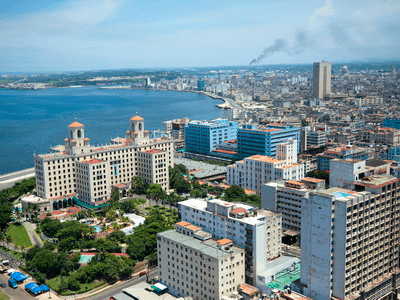
FAREWELL, CUBA!
After breakfast, transfer to José Martí International Airport for your return flight home.
Each departure is custom-curated to provide the best experiences possible and from time-to-time specific experiences, and/or restaurants may not be available and will be replaced by an item of equal or greater value. A final list of daily experiences and dining options is provided roughly two weeks prior to departure. Each tour provides a full-time schedule of Support for the Cuban People activities and is fully compliant with U.S. Department of Treasury, Office of Foreign Assets Control regulations regarding travel to Cuba.
What's Included
Small group size, no more than 10 guests
Four nights at the Casa Brava , or similar, in Havana
Three nights at Casa Jesus Maria 432, or similar, in Trinidad.
Expert Cuban guide and private driver
Transportation and airport transfers
Exclusive-guided visits and experiences
Seven breakfasts, five lunches, and three dinners
Certification of travel to Cuba under the U.S. Department of the Treasury general license
24 hour on-tour customer service
ALSO AVAILABLE:
- Travel Protection by Travelex
NOT INCLUDED:
Mandatory "Cuban" Health insurance. This is included in the cost of the airline ticket.*
Customary gratuities are left to the guest’s discretion and should be based on your satisfaction with the level of service received. With your travel documents, which you will receive at approximately 21 days prior to departure, we will include a list of expected gratuities and suggestions of amounts to pay.
For full terms and conditions, click here .
* Mandatory "Cuban" Health Insurance is included in the cost of the airline ticket for US Carriers when you depart from the USA to Cuba. If you travel via a third party country you must check with the airline to verify if it is included. If not, you will need to purchase this mandatory insurance upon arrival in Cuba.
Accommodations

Casa Brava is a family owned and operated boutique residence located in a quiet residential neighborhood of Vedado. The revitalized colonial mansion was carefully restored to its original 1910 splendor with modern conveniences. Casa Brava's 20th century façade and welcoming patio is just part of this traditional mansion with high ceilings, restored traditional woodwork, and imported chic floor tiles throughout the residence. Casa Brava boast eight luxury suites, each with their own private balcony, individually controlled air-conditioners, imported pillowtop mattresses and modern bathroom amenities.

Casa Jesus Maria 432
Casa Jesus Maria 432 is a privately owned and operated boutique residence ideally located in the heart of Trinidad, a World Heritage UNESCO site founded by Diego Velázquez in 1514 under the Spanish crown. Calle Jesus Maria is sprinkled with private homes; Jesus Maria 432, commonly referred to as JM432, is the leader of the pack.
Dates & Prices
NO MORE THAN 10 GUESTS ON ANY DEPARTURE
Want to experience this tour privately? Have specific travel dates in mind? We’ve got you covered! Call a travel specialist at 800-450-2822 to learn more!
See all dates & prices
Flights to Cuba
This tour does not include flights, but our flight specialists are happy to help arrange them! When you book, tell us which city you're coming from, and we'll get back to you with a quote and a proposed flight schedule within 5 business days. If you accept our quote, we'll add the price to your balance due including a $35 per person ticketing fee. Should you decide to book your own flights, please send us your flight details no later than 45 days prior to departure so that we can arrange your transfers accordingly.

Subscribe to our Newsletter

101 Greenwood Ave, Suite 500 Jenkintown, PA 19046
- 914-380-8303
- Privacy Policy
- Terms & Conditions
© Copyright 2000-2024 insightCuba. All Rights Reserved.
Photos courtesy of Robin Thom.
* Advertised prices are per person, based on double occupancy; single occupancy rooms may be available for an additional charge. Advertised prices are the best available based on the least expensive travel dates, departure city, and other options, and do not include optional excursions or other optional items. Your total price will vary based upon options you select during the booking process. Prices and availability subject to change.
† The Carefree Booking policy is not travel insurance. With our Carefree Booking policy, if you book one of our scheduled departures and decide later not to travel for any reason, you can transfer all payments you've made excluding the cost of any issued flight tickets, towards another available departure date or package, with no change fees or penalties. Alternately, you can choose to receive a future travel credit for all payments made, excluding the cost of any issued flight tickets; or you can choose to receive a refund for that same amount, minus the deposit, per person future travel credit. You may use these credits anytime, however they must be used or transferred within 5 years of your bookings, and some restrictions apply. Travel protection premiums may be credited to your new tour provided: no claim is filed; (no vendor penalties such as Air, sea or rail etc have been incurred); and your new trip departs within 1 year of the cancellation of your original tour. Valid for bookings made on or after August 2, 2022. Changes or cancellations requested after final payment due date are subject to our regular change and cancellation fees & policies. For more information and some additional restrictions, see our terms & conditions .
†† $199 deposit available on select packages. Valid for new bookings only. Changes to your package, departure date, or flights may require an increased deposit. See additional terms & conditions .

Cuba Tours & Travel Packages 2024/2025
Our 11 most popular cuba trips. compare tour itineraries from 80 tour companies. 98 reviews. 4.7/5 avg rating., popular cuba tours.

- Learn the local customs, folklore and beliefs behind Afro-Cuban religion as you’re welcomed into the homes of devoted residents on a colourful and unconventional Urban Adventure in Havana.
- Relish a real garden-to-plate dining experience at a privately-owned organic eco-farm in picturesque Vinales – indulge in a variety of fresh produce all while gazing across sweeping views of the valley.
- Receive a fascinating insight into the rise and fall of the charismatic and highly celebrated Cuban revolutionary Che Guevara at his mausoleum and museum in Santa Clara.
- Experience Cuban hospitality and old-world charm in the coastal town of Trinidad. Wander through cobblestone streets among colourful colonial buildings and relax on the picturesque Playa Ancon.
- Support the Cuban community by staying at privately-owned guesthouses, dining at home-grown restaurants, and gaining insider knowledge into Cuba’s history, thanks to the expertise of local guides.

Highlights of Cuba

Best of Cuba
- Old-world charm, rich history, exciting nightlife – evocative Havana is like nowhere else on Earth. See the difference between city and coastal life on a guided walking tour of the old capital.
- Receive a fascinating insight into the rise and fall of the charismatic and highly celebrated Cuban revolutionary – Che Guevara – at his mausoleum and museum in Santa Clara.
- With its vibrant music scene and Afro-Cuban roots, sultry Santiago de Cuba is a great place to bust out some moves and hit the dance floor with the locals.
- Experience old-world charm in the colourful coastal town of Trinidad. Delve into the city’s sultry Latin rhythms with a salsa class and enjoy plenty of free time for seaside relaxation.
- Take inspiration from the locals and mix things up with a bicycle-taxi tour of Camaguey – roll through the winding streets on two-wheels, visiting markets, plazas and an art gallery.

Cuba Libre!
- An in-depth exploration of Cuba, past and present
- Discover faded colonial splendour, lush green countryside and white-sand beaches
- Hear the sounds of salsa everywhere and immerse yourself in the country's nightlife

Beautiful Cuba
- Walk around Old Havana, which sheds lights on the difference between the lifestyle of city and rural life in Cuba.
- Take in all the colours and aromas of Soroa, the stunning valley area known as the 'rainbow of Cuba' and immerse yourself in local culture.
- Stroll along the rural dirt roads of Vinales as tractors, vintage cars and horse-drawn carriages pass you by.
- Step back in time in Trinidad – a real Cuban treat. Explore its old-world streets, then hit some fine palm-flanked beaches for a bit of rest and relaxation.
- Marvel at the unique architecture of Palacio del Valle in Cienfuegosand ask your local leader for all the best local (and secret) spots.

Ultimate Cuba

Cycle Cuba: West
- Experience Cuba’s dynamic scenery on two-wheels, from the decaying charm of Old Havana to the dramatic limestone landscapes of Vinales.
- Immerse yourself in everyday life as you bike on Cuban roads with local traffic, alongside tractors, vintage American cars, old Ladas and horse-drawn carriages.
- Enjoy a delicious farm-to-plate experience in a hilltop restaurant – the produce is 100% organic and locally grown – oh, and the rum is free!
- Top-off your Cuban experience at a tobacco plantation regarded as the world’s finest cigar manufacturer and witness a local farmer expertly roll an iconic Cuban ‘habana’.
- Stretch your legs along the pristine beaches of Cayo Jutias, where you can soak up some free time to flop and drop on the white sands or go for a refreshing dip in the Caribbean.
All Cuba , expedition cruises, self guided adventures and vacation packages. Find the best guided and expert planned vacation and holiday packages. Read more about Cuba

Small Group Cuba Tours

One Week in Cuba
- Cycle through the culture-soaked streets of Old Havana and immerse yourself in the eclectic history of Cuba’s capital on a half-day walking tour of the city.
- Venture to the village of Vinales, where the small-town charms are many. Spend your time smoking fat cigars with locals and exploring hidden caves in the mountains.
- Enjoy loads of free time – perfectly balanced with included activities and local insight – to kick back on the white sands of Trinidad, go snorkelling among tropical fish or hike the Sierra del Escambray mountains.
- Sip on Cuba’s famous liquor on a visit to a local bar for a rum tasting – as far as the rum world is concerned, Cuba is home to some of the best out there!
- Wander quaint cobblestone streets alongside cowboys, vintage cars and farmers and clock the best-preserved colonial buildings in Cuba – Trinidad is the best spot for photos whether you’re an amateur film photographer or just looking for a new Instagram.

Cuba Highlights
- Be intrigued by the colourful streets and eclectic history of Cuba's capital as your knowledgeable local leader takes you on a casual walking tour of Old Havana.
- Venture to Cuba’s charming countryside as you hit rural Vinales. Visit a local tobacco farm and immerse in the stunning nature in Vinales.
- Wander the cobblestone streets alongside cowboys and farmers in Trinidad, passing by some of the best-preserved colonial buildings in Cuba. Plus, you’ll take part in a rum tasting – muy bueno!
- Pay your respects at the mausoleum of Che Guevara and receive a fascinating insight into the rise and fall of the charismatic and highly celebrated Cuban revolutionary.

Premium Cuba
- Discover the cobblestone streets of colonial Trinidad, learn some salsa steps in slow-paced Vinales, and take in the colours of Soroa, the valley known as the 'Rainbow of Cuba'.
- Explore Havana’s main sights during a tour in a classic American car – a nod to the city’s colourful vintage past.
- Visit the home of a local family in Trinidad for an Exclusive Experience where you’ll enjoy a festive homecooked dinner, paired with the local drink, Canchanchara, made from 'fire water', local honey and lime juice.
- Admire the colours of Soroa during an Exclusive Experience. Visit a vibrant orchid garden with a local expert and take a private tour to learn about the region’s diverse array of flora and fauna.
- Your local leader will help you learn the story of the Cuban Revolution, as well as a visit to the memorials dedicated to revolutionary hero Ernesto Che Guevara in Santa Clara.
Best Cuba Tours by Duration
Tours, Cruises & Private Trips
Best Cuba Tours by Price
Top Cuba Attractions & Experiences
Top Cuba Experiences
- Getting the inexorable urge to dance -- or at least tap your toes -- to the irresistible sounds of Cuban music, emanating from everywhere.
- Taking a nostalgic trip back to the 1950s, in effect, by ogling all the amazing classic American cars still running on Cuban streets.
- Becoming acquainted with typical Cubans through people-to-people tour groups that are both educational and fun.
- Touring Old Havana , an UNESCO World Heritage Site founded in 1519 and replete with Spanish-style architectural gems.
- Reliving the days of Ernest Hemingway’s decades in Havana by visiting his finca and his many watering holes that are still dispensing daiquiris and mojitos.
- Exploring the lively Cuban art scene, which you can find displayed in museums, galleries, and on street corners.
- Enjoying creative Cuban cuisine , thick with Spanish influences that go way beyond beans and rice (though that’s good, too).
- Spending some down time at one of Cuba’s hundreds of beaches, many of them completely unspoiled.
- Touring some of Cuba’s eight other UNESCO World Heritage Sites, including Santiago’s San Pedro de la Roca Castle, a massive fortress dating from the 17th century considered the finest example of Spanish-American military architecture.
- Visiting 19th century-era coffee plantations in southeast Cuba, also declared UNESCO World Heritage Sites.
- Watching the sunset sitting outside on a warm Havana night while sipping a mojito and eating freshly caught prawns tossed in garlic and pepper.
Cuba Tours & Travel Guide
Cuba Attractions & Landmarks Guide

Long closed to most U.S. travelers, Cuba is now subject to fewer travel restrictions, and Americans are discovering what the rest of the world has known for years: the island nation 90 miles south of Florida has friendly people, a vibrant culture, beautiful beaches, and 1950's-era cars that still run. No matter the politics, Cuba and its people are sure to leave a lasting impression on you.
Visiting Cuba is like entering a time warp. Because of longtime Cuban government restrictions placed on the purchase of imported cars, many Cubans have had to ingeniously make do with American cars dating from the 1950s and early 1960s.
Replacement parts are scarce but clever mechanics have found ways to keep them running. Hence a trip to Cuba is much like watching a classic car rally, except that these classic cars are in full use as taxis and private vehicles.
The time warp continues in the aging houses and mansions you encounter on a guided Cuba tour in Old Havana , a UNESCO World Heritage Site and probably the best preserved city center in the Caribbean . Many have Spanish-style balconies, arcades, wrought-iron gates and internal courtyards. Some appear to be on life support but remain standing, much as the classic cars keep running.
Visiting Cuba Today
Cuba is experiencing a surge in interest due to the recent restoration of diplomatic relations between the US and Cuban governments. This beautiful and elusive country is now more accessible to one of its closest neighbors and American travelers are itching to visit.
There are still some travel restrictions in place for US citizens however. As relaxing as it might sound, it's still technically illegal for Americans to travel to Cuba to laze on the beach, mojito in hand.
However, the OFAC (Office of Foreign Asset Control) does permit American travel to Cuba, provided it fits within 1 of 12 general categories. One of the most popular of these is 'educational activities' and tour operators have long led 'people to people' tours, which include activities like visiting with local musicians, farmers, and artisans. This is how the majority of American citizens have legally traveled to Cuba for the past few years.
More recently, travel regulations were further relaxed, giving tour operators even more flexibility with the types of itineraries they run in Cuba. This means virtually any tour in Cuba is legal for American travelers, but always check direct with the tour operator first.
Options for Cuba travel include primarily guided tours in Cuba . T aking a tour is one of the best ways to have an authentic experience in this rich and diverse country. Taking a tour doesn't mean being stuck in a large group on a coach bus either. Some companies limit their groups to 10-15 like-minded travelers to provide an intimate, accessible experience.
Why Consider a Tour In Cuba?
Although traveling to Cuba independently is now possible, it’s still wise to consider a tour . Due to the increased demand, hotel rooms in popular cities like Havana and Trinidad are hard to come by. This means that unless you plan many months in advance, you might be relegated to a less than desirable hotel that isn’t centrally located. Cuba tour operators , on the other hand, purchase rooms in bulk up to a year in advance, so you are guaranteed a room in some of the country’s most famous and beautiful accommodations.
The infrastructure in Cuba, specifically the road and transportation network, are still quite basic and developing. It can be hard to get around from city to city and all of the signs are in Spanish. Speaking of language barriers, it’s a challenge to find many English speakers outside of hotels and major tourist attractions.
On a tour, you’ll hit the major tourist sites, such as El Floridita (where Hemingway himself used to drink) but you’ll also have a chance to meet local artists and business people - all who can offer unique glimpses into the current affairs of this fascinating country. Tour guides can often show you a side of Cuba that you’d otherwise miss if traveling independently.
Must See Cuban Cities
Tours in Cuba often begin in Havana , with the most direct flights from Miami and other US cities. However, it is recommended to explore beyond the famous capital city, venturing farther afield to places like Vinales Valley, Trinidad, and Santa Clara. These ‘secondary’ cities have less tourists, but offer unique cultural and natural experiences that are not to be missed.
The small city of Vinales , and the surrounding UNESCO World Heritage Site Vinales Valley, lies a few hours to the west of Havana. If Havana is like stepping back to the 1950’s, it can be said that visiting Vinales harkens back even further to the 19th century.
This largely agricultural area, where crops such as coffee and tobacco are still grown following centuries old traditions, is an outdoor-lover’s paradise. The lush landscape is dotted with karsts which attract climbers and hikers alike. The region is also known for its music and arts scene, much like other parts of Cuba. See best Cuba travel packages to Vinales »
Trinidad & Topes de Collantes
The beautiful cobblestoned-street city of Trinidad lies in the southern part of the island, about a 6 hours drive on Cuba’s notoriously choppy roads. Yet another UNESCO World Heritage site, Trinidad has been beautifully preserved to its colonial charms. Artist galleries and restaurants with live music line the narrow cobblestone streets. Walking through an open door might reveal a couple of men playing dominos on a plastic table or a traditional pig roast in process.
Visit the Plaza Major to experience an open air colonial architecture museum and then check out live music next to the cathedral in the same location. Although accommodation is hard to come by, many Cuba tours make stops in Trinidad to take in its authenticity.
Trinidad also acts as a great jumping off point for Cuba adventures into Topes de Collantes , one of Cuba’s many national parks. Located about 12 miles from the city, Topes de Collantes lies in a mountainous region home to a plethora of flora and fauna, many endemic to Cuba.
Guided hikes are available around the park and are mostly mellow over well blazed trails. There are opportunities to hike with a local naturalist, who can point out local bird varieties. Other hikes end at picturesque waterfalls where a cool swim is inviting in the tropical heat. Topes de Collantes is most popular with local Cubans on vacation, although many tourists, especially Europeans, are starting to discover its charms.
Santa Clara
Santa Clara is located is close proximity to Havana, due east about 3 hours. It’s probably most famous for being the place where revolutionary fighter Che Guevara is buried, and thousands of tourists flock here to see his final resting place. This historic city is also where the final battle of the Cuban Revolution took place in 1958.
Two columns of revolutionary fighters attacked the city, one led by Che. After intense fighting, the city was captured, and hours later, General Batista, then leader of Cuba, left the country. Santa Clara is a tour highlight for history buffs and a common stopping point on the drive from Havana to Trinidad.
Music & Art in Cuba
There’s something about being in Cuba that brings out the dancer even in those who travel with two left feet. It’s no mystery: the music -- salsa, jazz, rumba, merengue, and other genres, often combined into a unique Afro-Cuban sound -- is both ubiquitous and irresistible. You’ll hear it in clubs, bars, restaurants, bodegas, or just emanating from the nearest homes.
In Havana, there is live music on many street corners, including outside most of the major hotels. If you desire something more formal and organized, the famous Cuban band The Buena Vista Social Club still performs most nights in a bar in Old Havana. While many of the original founders of the group have passed or are no longer playing, a few still remain.
Many tours include a night out to hear these legends of Cuban jazz and it’s well worth the relatively expensive cover charge. Many times, the musicians will hang around after the set and if your Spanish is decent, striking up a conversation could be one of the highlights of your trip.
Other opportunities to see live music include the rooftop bar of the Hotel Inglaterra, located near Parque Central, where a salsa or rumba ensemble plays most nights. There are also a number of dance clubs around Havana, including Casa de la Musica de Miramar, El Turquino, and Cabaret Parisien, which hosts an elaborate cabaret show, complete with flowered dancers.
Believe it or not, some of the most authentic music in Cuba can be heard while sitting outside having dinner at a paladares, or local restaurant, in Old Havana. Small groups of musicians will approach your table and give you a private concert, of course in exchange for a few pesos.
Many famous artists, such as Wifredo Lam, have come out of Cuba, however, many are still relatively unknown due to the isolation of the country for so many years. For authentic local Cuban art, a visit to the El Taller Experimental de Grafica is a must. This artist workshop, founded in 1962 with the support of infamous revolutionary Che Guevara, is still a thriving studio today. Inside, artists of all ages delicately create traditional prints using decades old techniques. Prints are for sale and you can discuss the pieces of art direct with the artist, which is a special experience.
Other top art galleries include Galeria Victor Manuel, Galeria Habana, and Fototeca de Cuba, which houses the country’s largest collection of photographs. Although many tours will only include a stop at the Museo de Nacional, most itineraries offer ample free time to explore these artistic havens on your own.
Art is also central to Cuban life, from Havana’s excellent National Museum of Fine Arts to street corner painters and much in between.
The Hemingway Legacy
You might be surprised to learn that American author Ernest Hemingway -- a longtime resident of Havana, where he wrote "The Old Man and the Sea" and "A Moveable Feast" among other works -- is still venerated in Cuba. His finca, where he lived just outside Havana throughout the 1940s and ‘50s, is maintained as a museum, and a popular stop on most tour itineraries .
Everything is kept the way he left it, except that a new set of cats (many of which have six toes, the progeny of Hemingway’s own fleet of stray cats), now curl up on his desk for naps. One of the most intimate glimpses into Hemingway’s sometimes lonely existence is apparent by the writing on the bathroom wall of his home. This is where he recorded his daily weight, in pencil. At some point in history, the writing was covered up, only to be discovered by museum curators years later while conducting restoration around the home.
You can also visit many of his old haunts around Havana such as El Floridita, said to be the birthplace of the daiquiri (one of Hemingway’s favorite libations) and La Bodeguita del Medio, which serves as a virtual Hemingway memorial (though still a working bar, with plenty of atmosphere). Both places can get very crowded with tourists and there are better drinks in town. However, it can be worth the stop for any literary buffs who’d like to sit side by side with Hemingway’s statue at the bar.
Another Hemingway haunt worth a visit is La Terraza Restaurant, located in the small fishing village of Cojimar, about 20 minutes from Havana. This is the very place depicted in his novel ‘Old Man and the Sea’ and the walls are adorned with black and white photos of the author himself, including many of him dining at La Terraza. It’s no surprise that Hemingway chose this seaside gem as a top spot in Cuba.
Best Beaches in Cuba
While Americans can’t go to Cuba just for a beach vacation yet, (if that's what you're after, consider the best travel packages to Costa Rica ) other nationalities can -- and if you’re in a position to visit one of the island’s 300-some sandy beaches, you may find yourself mostly alone despite the glorious settings.
Among Cuba’s finest beaches are the white-sand Playa Ancon (on the southern, Caribbean side of the island) and 12-mile-long, white-sand Varadero Beach, the best known beach in the country. Both offer crystal clear waters for swimming or snorkeling. Be warned though that if you are looking for seclusion, you won’t find it at Playa Ancon or Playa Varadero. Both are well-trodden with tourists and feature many all inclusive resorts.
Other top beaches include Playa Los Flamencos, located within Cayo Coco off Cuba’s north shore. There are three main beaches in this idyllic location, although Los Flamencos offers the most privacy and tranquility.
Playa Pilar was the choice beach of Ernest Hemingway himself. He spent so much time here that the beach was named after his yacht, the Pilar. This bit of sand on the western tip of Cayo Guillermo is probably one of the least popular beaches in the region, for now.
Playa Los Pinos is perhaps the most deserted beach in all of Cuba. Getting here requires an off-road ride that is not accessible by public transport. But for the intrepid beach goers who make the trip, the reward is a long white sand beach where your only companions might be a band of wild horses.
Playa Esmeralda is a good spot for those wanting a bit of understated luxury. This smaller beach features two luxury hotels that are tastefully situated as not to be an eyesore on the pristine beach environment. If you’re looking to relax and recharge for a few days, in style, this might be the place for you.
Food in Cuba
Cuban food is often thought of as beans and rice, which are indeed served at many meals and can be delicious, but there’s much more to it than that. The cuisine has Spanish, French, African, Chinese, Portuguese, and Arabic influences, along with Caribbean favorites such as fried plantains, similar to but different from bananas.
Stews and many other dishes use a base of sofrito (onion, green pepper, garlic, oregano) for flavoring; more contemporary cuisine includes Spanish-style tapas. Coffee is on the strong side and Cuban sandwiches -- ham, pork, pickle, cheese, and mustard on bread -- are among the world’s best. Besides regular restaurants, a number of private homes, called paladares, now serve as eateries offering authentic local cuisine.
This is great news for visitors as you not only get a fresh, delicious meal, but also the opportunity to catch a glimpse of local, everyday life. Tour companies have caught on and many now include at least one meal at some of the best paladares in Havana such as Doña Eutimia and Le Chansonnier. Just don’t expect a quick meal - Cubans take their time and you should to. Besides, what can beat sitting outside on a warm Havana night, sipping a mojito and eating freshly caught prawns tossed in garlic and pepper while waiting for your main dish of ropa vieja?
Vegetarians and pescatarians should have no trouble finding something to eat, although the former may need to get used to a steady diet of rice, beans, and salad for a few days. Seafood lovers, however, will found a bounty of diverse and fresh options from the surrounding waters.
Regardless of your diet or culinary preferences, you are sure to find something tasty and flavorful in Cuba as long as you are willing to be patient and explore some of the hidden gems in Havana and beyond.
Ultimately, the Cuban people themselves are the stars of any visit to the island. And the best way to meet them is by organized tour, featuring people-to-people encounters.
Travel to Cuba: Practicalities & Logistics
Capital city: Havana (population 2.2 million)
Dialing code: +53
Language: Spanish
Currency: CUC
Before you go
Visas are required for all American citizens traveling to Cuba. Most tour operators usually include this fee in the price of the trip, or have a separate visa fee that is paid once your trip is confirmed. Either way, it’s a good idea to book a Cuba trip with a tour company who will handle the visa logistics for you. UK citizens also must obtain a tourist card before traveling to Cuba.
Medical care in Cuba is quite good, with more doctors per capita than many other countries. However, you should always travel with insurance and many tour operators can recommend a plan to cover you while on your trip. Only routine vaccinations are required for Cuba, however, the CDC does recommend both Typhoid and Hepatitis A vaccinations for some travelers.
Cuba is generally very safe compared to other Central and South American countries. Police are everywhere, and especially apparent in high tourist locations. However, as when traveling in any foreign country, use common street sense and pay attention to your surroundings. This is especially true in Havana, Trinidad and other large cities. Crimes of opportunity, such as pick-pocketing, are not unheard of, but a little vigilance goes a long way, and traveling in a group can help deter any potential trouble.
Cuba Reviews & Ratings
Incredible tour leader..
I thoroughly enjoyed the approach of our tour leader, Ivan. He was warm, friendly, professional, knowledgeable and looked after every aspect of our trip. He is an in...
Superb trip!
The organization and help I received pre trip from Tracy Hopkins was excellent and reassured me that I would be well looked after - a consideration as I was travelin...
A truly amazing trip of a fascinating island.
Our tour guide Ivan organized everything extremely we...
I thoroughly enjoyed the approach of our
I have now been on 2 intrepid trips..
I have now been on 2 Intrepid trips. The prospectus of the tours tells y...
See all Cuba reviews
Related Trips & Tours
Cuba tours faq.
1. Does Travelstride have all the tour operators?
2. How does the Member Savings program save me money?
3. Can I trust the tour operator and trip reviews on Travelstride?
4. What does ‘Stride Preferred’ mean?
What Is Cuba Like Today? Travel to Cuba 2024 Guide
What is it like to travel to Cuba in 2024?
Cuba is still as beautiful, welcoming, and unique as ever, but a deepening economic crisis is having a devastating effect on the country and its people. Additionally, increasing connectivity is rapidly altering the social and political landscape. These factors are changing the face of tourism here.
We first visited Cuba for the first time at the end of 2022 and discovered exactly what it’s like to travel to Cuba today. Since then, we have kept this article up to date with relevant information and recent changes as things move pretty fast in Cuba. Most recently, this article was updated in March 2024.
What’s Cuba Like Today?
Cuba is one of the most distinct and interesting places we have ever traveled to. But it’s changing quickly.
Before we visited, we found it difficult to find current information on Cuba before we arrived. The flow of information lags here and the social and economic situation is developing rapidly. In fact, the information in this article could be antiquated by the time you visit (or even tomorrow).
Cuba is facing a deepening economic crisis. The reversal of the Cuban thaw by the Trump Administration, the global pandemic, and most recently inflation, driven by war and global oil shortages, have had devastating effects on a country with a long history of struggle.
As tourism slowly returns to the island, many locals are excited about the prospect of rebuilding, but many others don’t see it happening, or at least not soon enough. Since 2001, 5% of the population, around 500,000 people have fled Cuba in the nation’s largest-ever exodus.
Food shortages and skyrocketing inflation have created an increasingly unstable situation for locals, who for the most part survive on tiny wages as state employees.
As a tourist, it’s difficult to get an idea of how grim things here have become but you can catch a glimpse.
The lines for food trucks, the crumbling ruins of great colonial cities, and the desperation of many of the people, all reveal the stark truth that the Pearl of the Antilles is in dire need.
Despite worsening economic woes, the Cuban people remain proud and industrious, and they know the value of their rich culture and beautiful country. Their ability to showcase the fruits of their homeland is renowned and they know it.
And the richness of Cuba is still there. The colorful but dark history. The loud and rhythmic culture. The centuries-old bars. The beautiful beaches and lush countryside. The rolling hills of fertile farmland and its harvest, hand-rolled cigars, local rum with freshly squeezed sugar cane juice, and lime. The bustling streets of old Havana. The classic cars, all in various shades of pastel. These scenes are iconic and they are still plentiful.
But travelers wishing to uncover Cuba’s treasures should be prepared to deal with the obscure and shifting bureaucracy of the government, runaway inflation, and crumbling infrastructure. Those that wish to take on the challenge will be rewarded with an experience unlike any other.
Still game? Read on to find out more about traveling to Cuba in 2024 in our in-depth guide.
Planning a Cuba Trip? Discover the Best Accommodation in 2023!
Can i travel to cuba in 2024 what to know about cuba travel restrictions.
Yes, Cuba is open for travel. Travel is possible for many nationalities including citizens of the US. Cuban COVID travel restrictions were lifted in November 2021.
For many, Cuba is a mystery. The country is shrouded by internal and external restrictions and murky history. Cuba is connected to words like missile crisis, embargo, and repression. The uncertainty of exactly what Cuba is today and whether travel is even permitted is enough to turn some people off from travel here completely. For others, it adds to the mystery and the allure.
In reality, travel to Cuba is possible and quite straightforward. Tourism is an important industry for Cuba and the country is welcoming and safe for visitors. In fact, getting to and from Cuba may just be the easiest part of the journey.
Cuba Travel Requirements in 2024
A handful of countries are eligible for visa-free travel to Cuba and do not require a visa or travel card. Most foreigners, however, will need a travel visa or a Cuba Tourist Travel Card. Citizens of countries eligible to receive a Cuba Tourist Travel Card can organize these online in advance or in some cases at the airport with the airline you are traveling with. The remaining countries not eligible for visa-free travel or a travel card will need to organize a travel visa through their nearest Cuban embassy. Find more information on requirements for different countries here .
In addition to any required entry documents, visitors also require a health declaration form, health insurance (be aware many insurance providers do not provide coverage for Cuba, so choose your policy carefully) , and details on where they will be staying during their stay in Cuba.
Is it Possible to Travel to Cuba as a US Citizen in 2024?
Can you travel to Cuba from the US in 2024? Yes! It is possible to travel to Cuba as a US citizen.
The Cuban government permits Americans to enter Cuba, however, the US government prohibits American citizens from traveling to Cuba for tourism alone.
Nevertheless, it is easy to get an exemption from this restriction. There are twelve approved reasons that the US will grant American citizens a general license to travel to Cuba. The reasons include a list of specific and official reasons, including state business, journalism, family, and religious reasons.
For Americans wanting to experience Cuba without a specific reason, the category of Supporting the Cuban People is available to anyone who wants to travel to Cuba and is prepared to dedicate some of that time interacting with the Cuban people.
To qualify for this category, you are theoretically required to spend six hours per day supporting the Cuban people. The definition of this support is pretty broad and includes interacting with accommodation hosts, dining in local restaurants, taking tours, and participating in activities run by local people. For us, we found this extra motivation to spend more time interacting pushed us to have a more engaged trip than we might otherwise have experienced. The reality is that the US to date has not pursued any citizens for violating the terms of the exemption.
In addition to fulfilling the requirements of an authorized travel category, US citizens are prohibited from engaging with any state-owned businesses (including state-run hotels, restaurants, and bars.) As part of the travel requirement, Americans must keep records and receipts of their travel activities for five years after their trip.
For more information on legally traveling to Cuba in 2024 as an American check out this detailed blog post from Home to Havana .
What’s the Deal with Money in Cuba Today?
One of the most difficult things to understand before we arrived in Cuba was exactly how money works in Cuba.
Monetary policy seems to change faster than locals can keep up, let alone tourists.
The former dual currency system has been swept away. A new digital currency called the MLC has been introduced. Meanwhile, Cuba’s cash currency, the Cuban Peso, is ‘officially’ stable at an exchange rate of $1 USD to 24 Cuban pesos. Yet currently (2024), Cuban government banks are buying foreign currency at a rate of 110 Cuban Pesos for $1 USD. On the street, it’s a different rate again, while it can fluctuate, in 2024 the indicative 320 Cuban pesos for $1. However, inflation is happening quicker than people can react and this rate changes daily. Confused yet?
Check the resources below to find up to date rates:
Right now cash is king. Cuban currency is a closed currency so you can’t get it outside of the country. Within the country, you can exchange money (USD and Euro are best).
You have two options for exchanging money, at the bank and on the black market.
You can exchange cash at a Cadeca or withdraw money from a bank ATM. However you will get a rate of 110 pesos for every dollar, around one-third the value of a dollar on the street, AND you will be charged a fee of 8% if you are trying to exchange USD.
On the black market, you should be able to negotiate to just under the official street rate, which last we checked (2024) was hovering around 320 Cuban pesos per $1 USD.
Within the country, Cuban pesos are accepted everywhere but foreign currency, primarily Euro or USD is also generally accepted and often preferred. However, if you pay in foreign currency you will be subject to the exchange rate set by the business which can sometimes be less than attractive.
Wait what about MLC? MLC is Cuba’s official digital currency. It has a value of 1 MLC = 1 USD. It is used by MLC tiendas, state-owned stores that sell goods outside the state rationing scheme. Goods advertised in MLC prices can be purchased using a credit or debit card as long as that card is not from a US bank (US banks are not allowed to conduct business in Cuba). It is also possible to purchase a prepaid MLC card within Cuba using foreign currency at the airport or CADECA. Most things that can be purchased from the MLC tiendas can also be found in local tiendas and purchased using local pesos or foreign currency. We did not use MLC during our trip.
So… What Should You Do About Cash in Cuba Today?
Take Euros or USD, more than you think you need for your trip. Exchange it on the black market when you arrive but preferably not on the street as this can be dangerous and you could be scammed. Instead, try to contact a trustworthy local (this could be someone from an Airbnb or a tour you have booked with good online reviews). Ask them if they can help you exchange money. They will likely exchange your money themselves or put you in touch with someone who can. Try to organize a couple of options for exchanging money before you arrive.
Once you arrive, try to get a feel for the local currency price of USD or Euro. If someone asks you on the street if you would like to exchange cash ( ‘chan’ja’mony?’ ) ask them what their best rate is (don’t swap any money yet just get a feel for the going rates, the first few offers may be low balls!). Once you get a feel for the current exchange rate on the street you will be in a good position to make a deal.
Don’t change all your money at once. As mentioned above the Cuban peso is a closed currency and you will sell it at a loss f you need to get rid of it at the end of your trip. We recommend initially changing half the money you have budgeted to spend so you can get a feel for exchange rates and prices and see how accurate your estimates were before changing out the remaining money. It’s better to end up with US dollars or Euros at the end of your trip rather than pesos as most places in Cuba will accept these currencies, but Cuban pesos are essentially worthless outside Cuba and even in the Havana airport.
Have a plan for carrying your money around. Changing money on the black market our facilitator brought a money counter and plastic shopping bags to carry out the ridiculous amount of bank notes we needed.
What’s the Weather Like in Cuba?
Tropical Cuba is known for its year-round beautiful warm weather climate. It is also known for its wild and destructive hurricanes, tropical storms, muggy days, and evening downpours.
Cuba experiences two seasons, a hot, wet, muggy summer and a warm, dry winter. Temperatures range from really hot in the summer (average of 27) to very warm in the winter (average of 22).
The wet season runs from May until October. Within the wet season, it is generally recommended to travel to Cuba outside of the hurricane season which runs from the beginning of June until the end of November. Storms are most likely in the months of August and September.
November to April is warm and dry. This is the busy high season and also the most expensive time to find accommodation, especially around the Christmas and New Years holidays.
What’s the Internet Like in Cuba Today?
This is one of the biggest changes in Cuba today.
We have been dreaming of a trip to Cuba for a very long time. When we first started researching traveling in Cuba the only access to the internet was via state-administered public wifi spots and internet cafes. However, since 2018 when Cubans began getting access to mobile internet, and 2019 when private wifi became legalized, things have changed rapidly.
Today 70% of the population accesses the internet, and access for tourists is much easier. Although things are improving, the internet in Cuba remains relatively expensive, slow, and unreliable.
Median mobile internet speeds are around 4 mbps download and 4 mbps upload with a latency of 126 ms.
Fix broadband internet speeds are even slower with a median download speed of around 2 mbps, upload of less than 1 mbps, and latency around 107ms.
(Source: Speedtest.net )
How to Access the Internet in Cuba in 2024
Many accommodations, especially mid-range and high-end accommodations in larger cities, will offer free wifi. Some restaurants advertise free wifi but we found that it was only occasionally available. Internet was generally slow and frequently dropped out.
While mobile sim cards are technically not available to tourists, it is possible to rent a sim card from locals. We rented a mobile sim with 8 GB of data from our Airbnb hosts in Havana for $20 USD. We rented it for 10 days and took it around the island before returning it to them at the end of our trip. Internet speed was slow and reception was patchy but it gave us piece of mind to have access to the internet.
Can You Work Remotely in Cuba in 2024?
We had initially hoped we would be able to work remotely from Cuba. Firstly, so we could stay longer and travel slower. Secondly, we have long enjoyed the challenge of working from some of the more unique, remote, and challenging locations in the world. Unfortunately, after a lot of research, we realized that it wasn’t really going to be feasible and so we did what we rarely do and took time off from work and just travel. Nevertheless, we planned to discover just what was the extent and limitations of the internet within Cuba.
So what did we discover? Can you in fact work remotely from within Cuba?
Not easily. As we thought, being a ‘digital nomad’ in Cuba is an uphill battle, and we say that having worked in numerous developing countries and internet blackspots since 2018.
Although access to the internet in Cuba is better today than in the recent past, it is still slow, unreliable, and expensive. Even if you require moderate bandwidth for video conferencing, working in Cuba will prove difficult without large amounts of money to throw at the problem. For people that require large bandwidths, working is likely impossible. For people who can conduct their business just with email and the occasional phone call, working remotely from Cuba may be possible in 2024.
What are the People Like in Cuba Today?
The people in Cuba are many things, proud, loud, friendly, desperate, charming, wary, resourceful, and engaging. But above all, they are kind and genuinely interested in connecting with visitors and sharing the land and the culture of which they are so proud.
We met all sorts in Cuba and had very few negative experiences. Coming to Cuba we were wary of scammers, hustlers, and petty criminals that sometimes target travelers in some touristic developing countries. We were happily relieved that most of the Cuban people who approached us did so respectfully, in a friendly way, and were not pushy or underhanded. We also found locals to be warm and open, and interested in sharing information about their lives and their country.
Of course, there is no denying that to many locals, tourists walking around hotspots like Havana, might as well have a dollar sign over their heads. As a visitor expect to be waived into restaurants, chatted up by hawkers, and spruiked by taxi drivers. But, if you are polite and firm most people are friendly and kind.
What’s Life Like for the Cuban People in 2024?
As a tourist, it’s hard to get a true sense of the level of poverty and desperation in Cuba today. However, in the midst of runaway inflation, food shortages, and mass exodus, it’s clear that things are not going well.
A local showed us her Libreta de Abastecimiento or supplies booklet, a document issued to every citizen to record her monthly rations, paid for out of her wages but subsidized by the state.
Meager amounts of rice, beans, sugar, and other basics are scarcely enough to get through the month when the supplies are even available. Sanitary products should be issued every three months, but they haven’t been seen for more than a year. People make do our guide explained. It’s clear the Cuban people have no choice but to be inventive. A place where everything is difficult to come by and nothing is straightforward has created some of the most resourceful people on the planet.
Another man we met in Viñales told us about his friends and family that had fled to Guatemala, planning to head to Mexico and ultimately to the US. He had been saving desperately to leave himself. But ultimately it had proved too difficult and too expensive. He didn’t see how he could possibly get himself, his wife, and his young daughter safely to the US. He said every time he bumps into old friends in the small town there is a sense of surprise that they are still there.
Another peak into the state of poverty in Cuba is the living conditions of many Cubans in Havana. On our first day in Cuba, our cab driver warned us not to walk under the crumbling stone buildings in old Havana, as they regularly collapse. Walking around the streets you can peer into many of the buildings through the holes in the walls. Inside people live in buildings that would be condemned in many places. In some cases without plumbing or electricity, sometimes even without functioning roofs.
In many areas in Cuba, the power grid is not sufficient to service the whole city, so scheduled blackouts spread the load. City blocks switch on and off like Christmas lights every few hours.
Life for the Cuban people is tough in 2024.
Is It Safe to Travel to Cuba in 2024?
Cuba is generally a safe country to travel to and the greatest risks are petty crime, scams, and food poisoning. Violent crime is generally rare. There are some dangers specific to Cuba that travelers should be aware of. Trade embargos mean that medication is difficult if not impossible to find. Poor infrastructure can create safety hazards and delay medical response. The water in Cuba is generally unsafe to drink. Motor vehicle accidents can also present a safety risk.
Here are some tips to help you stay safe from petty crime and other dangers.
- Don’t exchange money on the street. This could open you up to a scam or even theft.
- Don’t walk around late at night, especially intoxicated or alone.
- Don’t drink the water in Cuba. Don’t drink anything with ice in it without confirming the ice is treated water.
- Don’t drive at night. Poor road conditions, animals, and questionable driving by the locals are a recipe for disaster on Cuba’s roads after dark.
- Confirm taxi fares prior to beginning a trip, take the correct change, and be polite but firm with drivers.
How to Get Around Cuba in 2024
Cuba doesn’t have a public transport system available to foreigners.
In general, there are four main ways to travel between cities in Cuba. Domestic flights, private taxis, collective or shared taxis, and self-driving in a rented car.
In our opinion, catching a private taxi is the best way to travel long distances.
Domestic Flights in Cuba 2024
Domestic flights are unreliable, uncomfortable, and can feel a bit dangerous in older planes (although the reality is that air travel is safer than traveling by car). The distances between towns and cities in Cuba are usually short and considering the time and effort it takes to get a flight, often, driving makes more sense. If you need to travel longer distances within Cuba and are short on time, a domestic flight might make more sense.
Private Taxis in Cuba 2024
Private taxis are relatively expensive and will cost somewhere around $25 per hour of travel. The upside to taxis is that they can be a lot less stressful than self-driving. Taxis can vary wildly in age and state of repair, so it can be worth keeping your eye out for a more modern vehicle and striking a deal with the driver.
Renting a Car in Cuba in 2024
Renting a car in Cuba costs around $50 – $150 USD per day and depending on how far and how quickly you plan to travel will often cost a similar amount to taking private taxis.
The upside to renting a car is freedom. You can drive where you want and when you want. The downside is that driving in Cuba can be quite challenging. The roads are usually in poor condition and the way the locals drive is often questionable. Furthermore, if you get into an accident the outcome could be serious if you have to deal with local authorities or are injured and need to be treated in a Cuban hospital.
Collectivos in Cuba in 2024
Collectivos or shared taxis often run between major tourist towns and cities. You purchase a seat in a car or minivan and the cost might be around $5 USD per hour of travel. If you are on a tight budget this is the best way to move between cities and regions within Cuba. The downside of collectivos is that your trip will be longer and potentially much more uncomfortable, depending on how full the collectivo is.
Traveling Short Distances in Cuba 2024
Traveling short distances within a city or region you can usually take a taxi, a moto-taxi, a horse and buggy, or even rent a moped or small motorbike.
Where to Stay in Cuba in 2024
Cuba is known for its Casa Particulares. Essentially a Casa Particular is a bed and breakfast or a private residence with approval from the state to rent out rooms. Casa Particulares are economical, comfortable, and the best way to get a genuine Cuban experience with real Cuban people.
Of course, Casa Particulares can range in price, comfort, and level of interaction with your host. In 2024, the best way to find the perfect Casa Particular for your needs is to look on Airbnb .
If you are traveling as a US citizen, staying in a Casa Particular will also satisfy your requirement not to do business with any state-owned businesses as most hotels are state-run. Interacting with the host of a Casa Particular will also contribute to hours spent interacting with the Cuban public if you are that requires you to do so.
Cuba Hotel Accommodation in 2024
If you are looking for hotel accommodation beware most of the hotel accommodation is state-run and there is a disconnect between quality and price. Not all the major booking websites work in Cuba due to the US embargo however some still do. Use the map below to find hotel accommodations in Cuba.
Final Thoughts on Traveling to Cuba in 2024
Despite the challenges the people here face, iconic Cuba remains the beautiful colonial architecture, the classic cars, the ubiquitous palms, the free-flowing rum, and the indomitable spirit of the Cuban people.
For those travelers seeking a beautiful, challenging, unique, uplifting, and reflective experience, we can’t recommend enough traveling to Cuba today.
Hopefully, you found the information you needed to travel to Cuba in 2024. If you have any questions or comments about traveling to Cuba now, please let us know in the comments below or send us an email at thevanabonds(a)thevanabondtales.com
Looking for more destinations in the Americas?
In 2016, I had been dumped by my girlfriend, fired from my job, and the lease on my house was running out. Facing moving back in with my parents, 26, jobless and alone I decided to listen to the message the universe was trying to send me. I took off on my first solo backpacking trip, with a one-way ticket to Bangkok and a well-thumbed Lonely Planet guide. From there I wandered Southeast and Central Asia, traveled the Great Steppe, and made my way across Russia and throughout Europe.
In Estonia I met Kelli, who, despite having a less frantic travel style, shared my my restless spirit and passion for exploration. Together, we embarked on a new journey, van life. Over four years we travelled across three different continents with three different vans.
In 2022, as the world began to re-open post COVID we took an opportunity to realise a long held dream, to live aboard a sailboat. Since then we have spent two summers in the Mediterranean, sailing and living aboard our little sail boat Whisper. When we aren't sailing we continue to live our nomadic lifestyle, guided by a philosophy of slow travel and self directed adventure be it by van or backpacking.
We find excitement through our journey into the unknown, stillness and content in the beauty of the places we discover and we find ourselves in the vastness of our world.
Hopefully, we can help you find what you're looking for too. Get lost with us and find your own path.
Leave a Reply Cancel reply
Your email address will not be published. Required fields are marked *
- North America Tours
Cuba Tours and Trips 2024/2025
Cuba is an island that is full of life, history, and culture. It’s history with both Spain and Africa makes Cuba not only a culturally diverse place, but also a unique meeting of the eastern and western worlds. Looking for a good sandwich? How about a Cuban?...
- Cuba Travel Guide
- Best Time to Visit Cuba
68 Trips in Cuba with 226 Reviews

- Starts Havana, Cuba
- Ends Havana, Cuba
Cuba Getaway: Vibrant Culture, Great Beaches & More
- Free cancellation
- Trip customizable
- Tour Type Independent Tour
- Activities City sightseeing & Beach City sightseeing , Beach , Natural landmarks sightseeing & Cultural, religious and historic sites 'data-more-tripid='15573'>+2 more
- Accommodation Resort, Hotel & Home-stay
- Transport Bus, Private Vehicle, Train & Rickshaw
- Age Range 1-79 yrs
- Operated in English, Spanish
- View More Jan 1, 2019 Jan 2, 2019 Jan 3, 2019

Round Trip: Best Of Local Cuba
- Tour Type Private Tour
- Activities City sightseeing & Beach City sightseeing , Beach & Cultural, religious and historic sites 'data-more-tripid='16831'>+1 more
- Accommodation Hotel & Home-stay
- Transport Bus, Rickshaw & Taxi

Beautiful Cuba
- Best price guaranteed
- No booking fees
- Tour Type Small Group Tour
- Activities Cultural, religious and historic sites & Local culture
- Accommodation Guest House
- Transport Private Vehicle & Bus
- Age Range 15-99 yrs
- Operated in English
- Brochure Price: US$ 1,770
- Special Deal (30%): - US$ 531
- Total Price from: US$ 1,239
- Apr 27 Only 5 seats left
- May 18 Only 9 seats left

Best of Cuba
- Accommodation Guest House, Hostel & Hotel
- Transport Private Vehicle, Flight, Taxi, Bus & Boat
- Brochure Price: US$ 2,375
- Special Deal (10%): - US$ 237
- Total Price from: US$ 2,138
- May 12 Only 7 seats left
- Jun 23 10+ seats left

8 Day Original Cuba Tour
- Activities Walking tours & Local culture Walking tours , Local culture , National parks , Snorkeling , Party and nightlife , Art and architecture , Museum and gallery visits & Cultural, religious and historic sites 'data-more-tripid='38435'>+6 more
- Accommodation Guest House & Resort
- Transport Bus, Private Vehicle & Taxi
- Age Range 2-80 yrs
- Operated in English, German, Spanish

Locally Cuba
- Activities City sightseeing & Natural landmarks sightseeing City sightseeing , Natural landmarks sightseeing , Beach , Art and architecture , Farm and plantation visits , Rickshaw, cycle or local transport tours & Honeymoon 'data-more-tripid='16167'>+5 more
- Accommodation Resort & Home-stay

Cuban Rhythms: Beachfronts & Havana Vibes
- Activities Wildlife & Cultural, religious and historic sites Wildlife , Cultural, religious and historic sites , Explorer & Safari 'data-more-tripid='4611'>+2 more
- Transport Private Vehicle
- Age Range 18-39 yrs
- Brochure Price: US$ 999
- Special Deal (25%): - US$ 250
- Total Price from: US$ 749
- Apr 18 Only 8 seats left
- Apr 25 10+ seats left

9 Days: This Cuban Life
- Activities Local culture & Walking tours Local culture , Walking tours , Cooking classes , Museum and gallery visits , Cultural, religious and historic sites & Natural landmarks sightseeing 'data-more-tripid='41562'>+4 more
- Accommodation Guest House & Hotel

Cuba Getaway - Havana & beyond in 5 days
- Activities Sightseeing Tours

A Taste of Cuba
- Activities Cultural, religious and historic sites & Natural landmarks sightseeing Cultural, religious and historic sites , Natural landmarks sightseeing & Local culture 'data-more-tripid='7553'>+1 more
- Accommodation Hotel
- Transport Private Vehicle, Train & Taxi
- Age Range 16-95 yrs
- Oct 05 Only 8 seats left

Cycling Cuba
- Activities Bicycle tours
- Transport Taxi
- Oct 12 Only 8 seats left

Treasures of Cuba
- Activities Cultural, religious and historic sites & Explorer
- Accommodation Hotel, Resort, Home-stay & Villa
- Transport Private Vehicle & Taxi
- Age Range 12-95 yrs
- Brochure Price: US$ 1,899
- Special Deal (25%): - US$ 475
- Total Price from: US$ 1,424
- Apr 20 10+ seats left
- May 11 Only 9 seats left

Cycle Cuba: West
- Transport Bus & Private Vehicle
- Jul 01 10+ seats left
- Oct 07 Only 3 seats left

Cuba Libre!
- Activities Active and outdoor & Explorer Active and outdoor , Explorer , Cultural, religious and historic sites & Adventure 'data-more-tripid='21843'>+2 more
- Accommodation Hotel, Hut, Villa, Resort, Tent, Home-stay & Guest House
- Transport Bus, 4WD Jeep, Private Vehicle & Taxi
- Apr 20 Only 6 seats left
- Oct 05 10+ seats left
Traveling to Cuba? Chat with a local travel specialist in Cuba who can help organize your trip.
Cuba Tour Reviews
Cuba - tour highlights and travel tips.

Cuba is an island that is full of life, history, and culture. It’s history with both Spain and Africa makes Cuba not only a culturally diverse place, but also a unique meeting of the eastern and western worlds. Looking for a good sandwich? How about a Cuban?
Tour Highlights
- Go and delight in the Ballet Nacional de Cuba, Cuba’s national ballet.
- Enjoy a game of baseball, football, cricket, or basketball.
- Listen and get your feet moving to mambo, cha-cha-cha, and salsa.
- See some of the classic cars that line the streets of Havana.
- Go and visit the small city of Trinidad.
- Soak up the sun on one of Cuba’s many beaches - a must do when on a trip to Cuba.
- Hike the Sierra Maestra Mountains, and enjoy the rural nature the island has to offer.
Travel Tips
- Bring a guidebook; Cuba has terrible Internet connection.
- Know your money; there are two different types of pesos.
- Don’t engage the hustlers on the street; if you appear disinterested, they’ll leave you alone.
- Don’t talk politics; with Cuba’s checkered history comes discomfort.
- Drink only bottled water.
- Learn Spanish; it will make your life easier during a holiday in Cuba.
- Don’t stay in hotels; go with Casas Particulares (private houses or homestays).
Cuba has seasonal weather so please do check up on the best time to visit Cuba before planning your tour. And if you’re still hunting for more things to do and places to explore in Cuba, do check out our Cuba Travel Guide for more information.
- Cuba budget tours
- Eco tours in Cuba
- Cuba guided tours
- Cuba family tour packages
- Cuba luxury tours
- Cuba private tours
- Cuba self-guided tours
- Cuba small group tours
- Cuba solo trips
- Cuba tailor-made vacation packages
- Cuba tours for senior citizens
- Cuba tours for young adults
- Cuba group tours
- Cuba last minute deals
- Cuba travel deals
Popular Destinations
- Havana Tours
- Varadero Tours
Popular Activities
- Cultural, religious and historic sites tours
- Local culture tours
Upcoming Departures
- Spring 2024/2025
- Summer 2024/2025
- Winter 2024/2025
- August 2024
- September 2024
- October 2024
- November 2024
- December 2024
- January 2025
- February 2025
- August 2025
- September 2025
Best price guaranteed - No booking fees
Sign-in to unlock instant trip discounts. Create wish lists and save up to USD 1,500.
Sign in with your email and password
Ultimate cuba travel planning and preparation guide, getting ready to visit cuba in 2024, keeping current with rapid changes in cuba.

Our Cuba travel orientation guide is geared toward US guests but is helpful for sojourners from any nation. Things change in Cuba at a dizzying pace. We update this page regularly based on reports from our American visitors and our expert Cuban staff in Havana.
Travel with peace of mind – protect your travel investment

Cuba is very safe and healthy. But things can still go askew before and during travel. We strongly recommend trip interruption and cancellation insurance to safeguard your Cuban holiday investment. Even if you decline travel insurance, do take a moment to review the costs and benefits.
Documents and money matters. Don’t leave home without…

Passport Must be valid for one week beyond your stay.
Buy airline tickets now See list of US commercial flights to Havana .
Cuban Tourist Visa All Cuba Explorer travel packages include a visa to enter Cuba. Keep it with your passport. Independent Cuba travelers can purchase a Cuban visa here .
Certificate of Legal Cuba Travel Cuba Explorer visits are 100% legal. Cuba Explorer verifies your Cuba trip conforms to US government Cuba travel regulations. We supply you with an official Certificate of Legal Cuba Travel document.
Cuban emergency medical insurance Cuba requires all visitors to have emergency medical coverage during their stay. This coverage is included in the cost of all commercial flights originating in the United States. Your boarding pass is proof of emergency medical coverage if needed in Cuba. This coverage is not a substitute for trip interruption and cancellation insurance.
Additional trip insurance documents if you purchase this option.
Online Immigration and Customs form Cuba requires all visitors to complete a web-based migration and duty form 48 hours before arrival. The website is called D’Viajeros . Once you have completed the form, you are given a QR Code to present to your US airline at the check-in counter and to Cuba immigration on arrival. Read our simplified instructions for filling out the somewhat confusing D’Viajeros form .
Cash is king US debit cards don’t work in Cuba. US credit cards work in a handful of hotels for in-house services only. Traveler’s checks are difficult to redeem. Don’t get caught short of funds while abroad. US dollars are readily accepted. Carefully study Money matters in Cuba . Cuba Explorer travel packages are nearly all-inclusive, so cash requirements are minimal, and should money problems arise during your stay, we help.
What to wear in a tropical paradise – comfort + fashion

There is no dress code in Cuba. However, you still want to be comfortable and not stand out like a Christmas tree. Review What do I pack for Cuba travel? We share some fitting ideas for what to wear in a warm climate, plus essential medicine and hygiene products you may require that aren’t available in Cuba.
What you can, and cannot take to Cuba

Permitted items You can bring cameras, personal DVD and CD players, gaming devices, mobile phones, laptops, MP3 players, hairdryers, electric shavers, binoculars, radio receivers, musical instruments, and sound recording devices for personal use. If you bring more than two of these items, Cuban customs may ask if you intend to leave them on the island. If you say you plan to leave any of these things, duty may be charged.
Prohibited items Narcotics (Cuba is a zero-tolerance nation). Explosives, pornography, anti-Cuba literature, aerial drones, stand-alone GPS devices, walkie-talkies, and things considered to be weapons are no-nos.
Money If you bring more than the equivalent of USD 5,000 in cash, you have to declare it or risk confiscation. Please review Money matters in Cuba .
Prescription medicines Must remain in original containers with prescription labels intact. Bring all that you’ll need for the duration of your stay. Refills in Cuba are not possible.
What about water, street food, and health services in Cuba?

Can I drink the water? We recommend you avoid tap water and drink bottled water at all times. Cuba Explorer supplies bottled water free of charge during your excursions. Bottled water is always available at your accommodations.
What about street food? It’s a personal decision. You have to weigh missing out on tasty treats over possible digestion issues. Very few visitors report tummy troubles from eating cooked street food.
What if I get sick or injured? A doctor or nurse is accessible during your Cuba Explorer trip, at your accommodations, nearby clinic, and tour activities.
Vaccinations. Cuba travel alerts. Should I worry?

Visit our Vaccinations for Cuba page for updates about Covid and general health and safety concerns for Cuba. There is no requirement for evidence of Covid status or vaccination records to visit or exit Cuba.
Should I believe travel alerts about Cuba? All advanced nations consider Cuba to be one of the safest travel destinations . The Trump administration’s vindictive listing of Cuba as a Terrorist Nation is denounced as unfounded by the United Nations and the vast majority of member countries. Sadly, US government travel advice to some nations is politically biased.
Great offline Cuba map – never get lost in Havana

Paper maps are hard to find, costly, and awkward.
Download the super best offline travelers’ map of Cuba at Maps.me .
Visitors and locals love Maps.me because it is so easy to get lost in Havana. Maps.me is a comprehensive offline map app for Android and Apple phones and tablets.
Download Maps.me now before you come to Cuba because internet on the island is slow.
Cuban internet – not as fast as in the USA

You can take your mobile phone, laptop, or tablet to Cuba and connect to the internet from local hotspots or at your hotel. Most Cuba Explorer hotels provide free WiFi access. Some private home rentals have internet access. WiFi rates range from 1.00 to 2.00 USD per hour. Be prepared for the Cuban internet connection to be slower than at home. Some US telephone carriers provide roaming services in Cuba, but you’ll pay an arm and a leg.
Will my US mobile phone work in Cuba?

Cuba Explorer’s Havana office provides emergency internet and US telephone calls for our guests at no charge.
Easiest mobile access in Cuba Many big US mobile phone service providers have international travel plans that include Cuba. This is the surest way to stay in touch with family and work. Carefully study your roaming plans before you arrive in Cuba. Mobile phone and data use in Cuba can be expensive!
A local but time-consuming alternative is to rent a Cuban SIM card or rent a Cuban cell phone. See Federal Communications Commission (FCC) or contact us for help.
What happens when I arrive in Cuba?

Cuba Explorer guests are hosted from touchdown to departure with 24/7 VIP attention. We provide you with detailed arrival instructions before you come to Cuba. And we are always available to help with any questions.
You are family Cuba Explorer staff meet and greet guests upon arrival at your Cuban airport. We return you to the airport for departure following your tour. Cuban airport-hotel transfers are included in your travel package. If you arrive early or depart later than scheduled tour days, we help with airport-hotel transfers. During your stay, our team is at your beck and call. Never a need to worry.
Gifts and ‘donations’ for Cubans in need

Cubans welcome gifts, however small. Gift-giving is an island tradition. We have a list of suggested gifts for Cubans , things most needed during these difficult times.
You’re bringing gifts. Do not describe them as donations . On arrival, if Cuban customs asks about items you intend to leave behind, describe them as gifts. The word donation raises concerns because, in the past, bad people brought harmful things into Cuba disguised as donations.
How do I wash my clothes in Cuba?

There are no public laundry facilities in Cuba. If you need laundry services, ask your chambermaid or hotel front desk. They’ll help you. Generally, the cost is between 6 and 8 USD for a plastic shopping full bag of clothes. Ask the price first.
If you stay at a private Cuban home, ask your host for assistance.
Electricity in Cuba is similar to America but different

Electricity in Cuban hotels is often 220 volts. We suggest you purchase a Type ‘C’ European Travel Plug Adapter for electrical devices you bring to Cuba. You can buy Type ‘C’ adapters from Amazon, Walmart, or electronics stores. Here are examples from Amazon. Example ONE , example TWO , and example THREE . Type ‘C’ adapter will always come in handy for international travel.
Most private homes have both 220 and 110-volt electrical outlets.
Be kind, be on time for scheduled activities, or opt-out

Eastern Time is observed across Cuba, the same as in New York and Miami.
Unlike some Central and South American countries, Cuba doesn’t operate on ‘Latin time’. Respecting schedules is the same as in the United States.
Cubans who have worked hard preparing special activities for you will feel really bad if you are late or absent. Perhaps they arranged a special meal, guest speaker, or cultural presentation. If our bus is delayed because you overslept, the whole group schedule must be juggled.
Your guide announces the bus schedule the day prior. Your accommodations have wake-up call services.
All is copacetic for free spirits If you don’t want to participate in a scheduled activity, or if you had a really good time the night before, that’s ok. We don’t judge. Just tell your guide in advance so she/he will not worry or lose time attempting to track you down.
Tipping and gratuities for Cubans

Feel good about tipping Your Cuban tour guide and tour driver depend on tips and share them with their coworkers and family. They also contribute a percentage of tips to the national health and education systems. Treat tipping in Cuba as you do at home – be kind to those who assist.
Hint You decide the amounts you’re comfortable contributing. Tipping in US dollars makes planning and budgeting easier.
Here’s the amount of tips most Americans share. You can always leave more. The amount you give is totally optional and up to you. See How much should I tip in Cuba? for more info.
Tour guide 8.00 to 10.00 USD per day per guest
Tour driver 5.00 to 7.00 USD per day per guest
Restaurant staff 2.00 USD to 5.00 USD per guest based on service
Hotel porters 1.00 USD or more if you have lots of luggage
Chambermaids 2.00 USD per day per guest
Museum guides and special guides 2.00 USD per guest
Musicians at restaurants 1.00 USD per guest
What about gifting instead of tips? Cubans in the service industry need money to spend on what they really need. They already get a lot of leftover toothpaste, toiletries, and other stuff. Give personal items you don’t need to your new Cuban friends.

Once again on safety in Cuba

Cuba is among the safest countries in the world, with a meager crime rate. However, precautions with personal belongings are necessary, as you would in Paris, London, or Barcelona. Don’t leave small items unattended in public areas. Don’t wear expensive jewelry. It attracts pickpockets. Keep cameras and handbags secure to your person at all times.
Participants must use a hotel lockbox for valuables, travel documents, air tickets, passports, and cash.
Only carry the amount of cash you need daily, about 100 USD. Leave the rest of your money in your hotel lockbox, along with your travel documents, passport, and other valuables. (Your actual passport is necessary to exchange money.)
Taxis and public transportation

During your Cuba Explorer tour, transportation to and from activities is included. During your free time, you’ll want to explore on your own. We recommend taxis. Private cars are quite common and offer legitimate taxi services. Both are ok. Be sure to agree on a price for your destination before you enter a taxi.
Is Cuba really that different than other countries? Yes, and…

Everything is very different: language, climate, customs, and demeanor. But it is refreshingly different.
Cubans are courteous, emotive, candid, and have a great sense of humor. Yet, all of the small material conveniences and services we take for granted are absent in Cuba.
While Cubans are punctual, delays can happen because of transportation and communications problems. The latter does not impact our programs because our services are independent.
Extreme shortages of everything require great innovation. Cubans continuously rise to the challenge. We advise coming to Cuba with an open mind until you get a lay of the land. Patience and understanding are the watchwords.
Words from wise travelers If you go to Cuba looking for problems, you will be overwhelmed, as they exist in abundance. On the other hand, if you visit with an open mind, in the spirit of learning about a wonderful people and their unique society and culture, your journey will be unmatched. Cubans are as thrilled to have you as their guest as you are about getting to know them. Unlike some other countries, there is no animosity towards Americans.
Race, sex, and LGBTQ+ issues. Black Lives Matter in Cuba.

Race and sex and LGBTQ+ issues are upside down compared to the United States.
Skin color is a spectrum. A minority of Cubans are either white or black. The vast majority of Cubans fall many shades in between. Don’t assume local comments about color are necessarily racist. The historical context is different. There are scores colors in Cuba. Best to assume every Cuban is proud of their place on the color wheel.
Cuba is not like other Latin countries where women get pinched and squeezed on their private parts in public. Some Cuban men are not beyond issuing flirtatious comments to women. Female travelers can respond as they please – consider it a compliment or insult. When women tell men in Cuba to desist, they do. “No means no” reigns supreme in Cuba. Suffice it to say Cuba is among the safest nations in the world for female travelers.
Homophobia, like racism in Cuba, cannot be compared to the United States, where hostility and physical violence are a daily occurrence. There are no laws against LGBTQ+ in Cuba. Lesbian, gay, bisexual, and transgender people don’t get shamed or beat up. They share the streets and public spaces equally. The vast majority of heterosexual people in Cuba consider homophobia to be a more significant problem than homosexuality.
Panhandlers and scammers

We strongly advise against giving money to individuals who approach you on the streets. While in tourist areas, you may encounter professional scam artists who pester foreign guests with sob stories that win them hundreds of dollars a week. When an individual approaches you on the street and asks for money or offers to provide guide or other services, say no. Wag your finger back and forth with determination (indicating you are not interested) and move on.
Failure to do so means you risk getting ripped off. Don’t be shy or feel bad. To do otherwise could cost you heartache and your wallet!
Returning to America from Cuba. Dos and don’ts.

There is no limit on how much money you can spend in Cuba.
Souvenirs and handicrafts require no export permission.
Original works of contemporary art require an official export permission letter to leave the country. The artist or gallery will provide this documentation.
Trump banned Cuban alcohol and tobacco from entering the US. How mean is that?
Only 5,000 CUP (Cuban pesos) per person can leave the country. Don’t attempt to leave with more. It has no value outside of Cuba except, perhaps, as souvenirs.
Services at Cuban airports inside the security areas require payment in Euros or Canadian dollars. Cuban pesos are not accepted.
Sharing your memories leads to positive changes for Cuba

Did you know that American visitors to Cuba have a significant impact on improving US-Cuba relations?
Recording your trip and sharing photos, videos, and blogs with friends helps build ties of understanding between regular Cubans and Americans. Visitors who share their Cuba experiences help shift public opinion in favor of normal relations with Cuba.
Parting words for US citizen-ambassadors

When visiting Cuba, locals see you as a representative of your nation and its people, reflecting the enlightened outlook of kindhearted Americans. Cubans endure extreme hardships. Their material conditions are very low compared to conditions in the United States. Many problems Cubans face result from the 60-plus years of economic blockade enforced by Washington.
Nonetheless, Cubans view regular Americans as their best friends in the hemisphere. Islanders welcome them graciously.
Cuban photographers reflecting the lives of Cubans
Photographs on this page are by Cuba artists Ana Lorena Gamboa Fernández, Norlys Pérez Padrón, and René Silveira Toledo. Contact us about use of these images.
Cuba planning topics
- Cuba and COVID-19
- Cuba travel alerts
- About tour companies
- Cuba travel options
- Ultimate travel guide
- Money matters in Cuba
- Tipping and gratuities
- Packing list for Cuba
- Donations and gifts
- Vaccinations for Cuba
- Cuba map travel app
Dream. Explore. Discover. Cuba with Angela Rose review
I loved Cuba, its people, and its culture. A gorgeous island with friendly people and great food! I enjoyed speaking with a Cuban real estate agent, and the ... read more
Angela Rose Atlanta, Georgia
Havana extravaganza review
Cuba is a wonderful place to visit but still needs investment to develop its tourist base. People are very nice, polite and helpful. People who work in the ... read more
Agata Woldan-Lopez Woodside, New York
Western Cuba culture review
Cuba is an exciting country with a rich and colorful history. I really enjoyed learning about the intricate culture and history. The Cuban people are friendly, helpful and ... read more
Kirsten Jensen Vienna, Virginia
Jet Royal Group in Cuba review
Not my first visit to Cuba as I was the group leader. Every time the people and culture are AWESOME! We received ongoing professional service from our tour ... read more
Dolores Roxan Collins Upper Marlboro, Maryland
Old Havana and the sea review
The Cuban people are hard-working and kind. It is a country with a very rich history. I loved our tour guide Otto Sanchez. He was excellent and able ... read more
Ruth Anne McGinley Mechanicsburg, Pennsylvania
I love Cuba and was so happy to return for a second trip. I took my sixteen-year-old grandson, and he had a wonderful time as well. The people ... read more
Marjorie Forman New York, New York
Weekend in Havana review
It was a wonderful experience! The people were friendly and the food was delicious! I saw many interesting sites. I would recommend anyone to take this tour.
Karma Stark Mantua, New Jersey
Cuba is beautiful. The locals are warm and welcoming. So much history and so many traditions were shared with us during this trip. The tour was packed with ... read more
Ana Theresa Barr Chula Vista, California
I was worried before travel that Cuba amenities would be sub-par. Instead, the hotel, restaurants, pool, and so on were all of an excellent standard. I loved Cuba! ... read more
June McCarthy Roswell, Georgia
Lets Go to Cuba review
Caring, imaginative, loving people and nation. Definitely struggling, but strongly bonded as a community. Enjoyed the Muraleandro community project visit, suggested by our guide, Laura. She helped us ... read more
Alejandra Beatty Arvada, Colorado
After four days in Havana, I found the city to be beautiful and historically significant. All the Cubans with whom I came in contact were kind and generous. ... read more
Lauren Fischel Fairfield, Connecticut
My wife detailed our impressions here: https://beckygiovagnoni.wordpress.com/2019/08/13/heres-to-ten-years/Our guide Atila was the best. We had no problems whatsoever.
Christopher Giovagnoni Colorado Springs, Colorado
Visiting Cuba was everything I hoped for and more. The people are warm, the country is splendid, and the culture full of vibrancy and pulsating energy. Our tour ... read more
Kimberlee Sherbrooke Baltimore, Maryland
I was very surprised by the level of satisfaction the Cuban people have for the government and their situation which was contrary to what I supposed. Everyone was ... read more
Danielle Breaud New Orleans, Louisiana
Illinois Legislators & Friends review
I found the experience quite enlightening. I enjoyed learning about Cuban culture and people. I have a greater appreciation and respect for Cuba as a result of our ... read more
Paul Williams Chicago, Illinois
Christal Badour in Cuba review
We loved our trip to Cuba! Everything was very well-organized, our guide and driver were fantastic. All of the people we met were extremely friendly and we loved ... read more
Christal Badour Hirsch Lexington, Kentucky
I was surprised at the resilience and resourcefulness of the Cuban people, who have been cut off from purchasing from the U.S. and its allies. The people ... read more
Sandra Buckhoy Broadview, Illinois
Marvin Murry in Cuba review
The people are very intimate with their music. It seems everywhere we went we saw singers, dancers, musicians or all three. We loved the diversity of the people ... read more
Marvin Murry Dallas, Texas
Cuba is fascinating, intriguing, alluring, spectacular, beautiful, mysterious and complicated all wrapped up together. The people of Cuba were so warm and welcoming. The architecture and American cars ... read more
John Mason Frisco, Colorado
Cuba discovery review
The people were so friendly and helpful. I loved all of the gardens and architecture.
Paula Rosenbaum Pontiac, Illinois
Beautiful place with lots of interesting venues, and people who are friendly and welcoming. I loved that we ventured out of the city center to see places we ... read more
Susan Moguel West Palm Beach, Florida
The people are so friendly, hard-working, interesting, and welcoming. Cuba is a mix of old and new, a beautiful place and so much history! Liked learning about the ... read more
Cynthia Rung Il, Illinois
Moh Rahimi in Cuba review
We really enjoyed our trip to Cuba. people are very nice respectful and friendly, Cuba is very safe, even safer than the US. We walk late at night ... read more
Mohammad Rahimi Brentwood, Tennessee
Wonderful, warm people! I'll remember our walking tour of Old Havana and our guide Rachel forever.
David Prensky Yardley, Pennsylvania
Cubans are resilient, beautiful, friendly. Loved the variety; getting to see and meet some locals, the different restaurants for the flavors of Cuba; the comfortable hotel; and ... read more
Bandele Adeyemi-Znidarcic Mamaroneck, New York
Cuba's hidden gems review
The trip was wonderful. The people were so friendly. I loved the antique cars. I would have liked more night spots!
Johnny Moore Birmingham, Alabama
Wild Cuba adventure review
Very interesting. I now have a better understanding of their history and culture, and can contrast the parts that are better than the US, and parts where the ... read more
Alan Hickox Aberdeen, Maryland
Havana, Cuba was amazing. The people were all so friendly, the food was amazing, and I really enjoyed the music and dancing. Mojitos, mojitos, mojitos – I love them, ... read more
Katherine Phillips New York, New York
Growing up in America and the story of the Cuban Missile Crisis and Fidel Castro and flying over Cuba to Grand Cayman Island, I remember looking out the ... read more
Pete Mannion New York, New York
Eston Schwartz in Cuba review
People were so friendly and giving. We were walking on the street in Havana and people would come up to talk to us and never ask for anything ... read more
Eston Schwartz Columbia, Missouri
I loved it so much! No complications. Agenda perfect.
Jeffrey Allen Smith Sammamish, Washington
Great people, great history and wonderful learning experience. Loved each of the scheduled activities, and our very knowledgeable tour guides, as well as the visit with Professor Núñ... read more
Ruth McCoy Missouri City, Texas
Manuel Rivero in Cuba review
Cuba is a beautiful country. Its natural beauty is varied and often breathtaking. The music, art, and architecture are as beautiful and diverse as its natural gifts. We ... read more
Jennifer Vasile Forest Hills, New York
Rachel Mullen in Cuba review
We loved every minute of our time in Cuba. Rachel, our tour guide, was absolutely perfect. She answered all of my pestering questions and was spot-on with ... read more
Daniel Mullen Nashville, Tennessee
Sharon Macias in Havana review
I was very impressed with the people, the culture, and the spirit of the people. I can see how they struggle for things we take for granted, wi-fi, ... read more
Sharon Macias Palm Desert, California
I had a very positive reaction to the people despite their many limitations. We enjoy the intimate relationship with our guide and driver. The interaction was beyond my ... read more
Marcia Hajduk Harrisburg, Pennsylvania
Paul Kellett in Cuba review
The Cuban people are very helpful kind and sincere. Great prices on food and drinks – both were awesome. The experience was very laid back – no rushing from A ... read more
Paul Kellett Gadsden, Alabama
This was one of the most memorable cultural and educational exchanges I've experienced during my adult life. Our travel to Cuba was an unforgettable educational experience. We had ... read more
Without exception, everyone we met in Cuba, both on tour and our own, were warm, welcoming, engaging, and fun to be with: in a word, delightful. My wife ... read more
William West Ventura, California
I love the people. They were gracious, kind, and beautiful. I loved talking with the professor and learning about the history of the music. Our guide Geldrys ... read more
Deborah Parker Powell Milwaukee, Wisconsin
Cuba is beautiful and its people are friendly and helpful. It’s nice to be someplace that hasn’t been overrun by commercial tourism (yet). I learned so ... read more
Stella Gevarguize Yonkers, New York
It was a very nice trip, lots to do, learned a lot about the culture and the people. The cooking and mojito lessons were tops. The city tour ... read more
Rita Mayfield Waukegan, Illinois
People are friendly. Our designated stops were rich in history. Our tour guide Norberto was very knowledgeable and personable. Tour met my expectations.
Linda Kisberg-Katz Frisco, Texas
I plan to return. I enjoyed the tour thoroughly. The Cuban people are ultra-friendly. Every scheduled activity was exciting. Our guide Atila was nice and knowledgeable.
Roy Fox Memphis, Tennessee
Very interesting. I did a lot of research so it was close to what I expected. Enjoyed the food, coffee, and general sightseeing. No problems with this trip.
Jason Harding Macomb, Michigan
We loved this trip. Everyone was friendly, the food everywhere we went was excellent, and the accommodations were terrific. Most special: the food, the people, our tour guide ... read more
Beth Neiderman Ventnor, New Jersey
We enjoyed getting to know the Cuban people and the culture. We were sad that so many beautiful buildings are crumbling and in disrepair. We loved our trip ... read more
Cheryl Cagle Marietta, Georgia
Very nice people. Our Cuban tour guide Claudia was excellent, friendly and professional. The tour was without problems.
John Alderman, Iii Charleston, West Virginia
Rene Houghland in Cuba review
I can't get Cuba out of my mind. Gretel was the perfect hostess and guide. We learned more than I ever imagined. Can't wait to go back! I ... read more
Rene Houghland Nashville, Tennessee
Matadial Manjushree in Havana review
Cuba was a phenomenal visit. Out tour guide was excellent and very knowledgeable about Cuba and the world. Pavel truly made our trip very enjoyable. I wish I ... read more
Manjushree Matadial West Orange, New Jersey

Can Americans Travel to Cuba? [2024 Legal Cuba Travel Guide]
I’m an American citizen who travels to Cuba all the time, so “can Americans travel to Cuba?” is one of the questions I’m most frequently asked related to Cuba travel. While many Americans believe that Cuba is still “off-limits” to American citizens, this couldn’t be further from the truth; there are many ways to legally travel to Cuba for American citizens.
Want to travel to Cuba from the United States – as a U.S. citizen or otherwise? Our ultimate guide to Cuba travel for Americans will show you how, answering some of the most common questions about Cuba travel safety , Support for the Cuban People travel , and more.
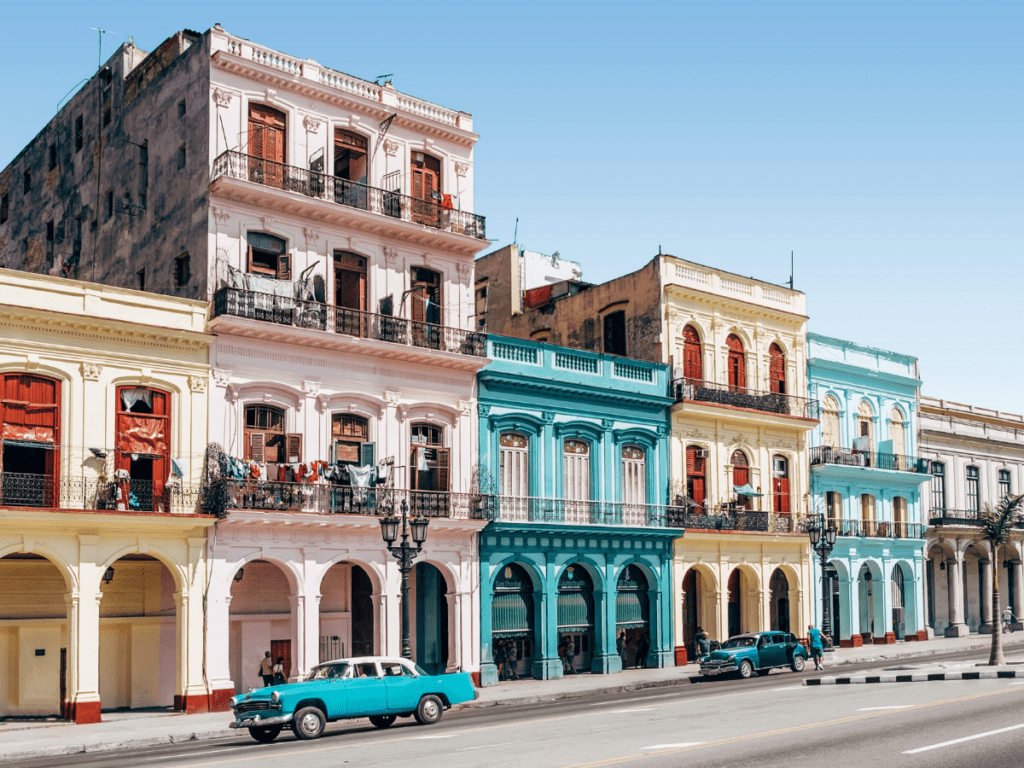
This post contains affiliate links that may reward me monetarily or otherwise when you use them to make qualifying purchases – at no cost to you. As an Amazon Associate, I earn from qualifying purchases. For more information, please read our disclosure policy .
American Travel to Cuba
The short answer to the question “can Americans travel to Cuba” is YES, American citizens can travel to Cuba.
Non-U.S. citizens are allowed to travel to Cuba via the United States as well. American citizens can fly from the United States directly to Cuba, travel independently (no need for a group trip or guided trip here!), and enjoy Cuba just as they would any other travel destination.
The longer answer to the question “can Americans travel to Cuba” is that while legal travel to Cuba is entirely possible and even quite easy, there are some important regulations around American travel to Cuba that travelers should be aware of.
U.S.-Cuba Policy Changes
For years, U.S.-Cuba travel by citizens of the United States has been restricted in many ways. In 2014, President Obama announced a new way forward in the relationship between the United States and Cuba, including lifting many of the travel restrictions that made it quite challenging for U.S. citizens to travel to Cuba.
While the subsequent Trump and Biden administrations have made slight changes to Obama’s new policies, Obama’s new Cuba policies remain mostly intact. Americans can still travel to Cuba more easily than they’ve been able to in decades .
Cuba Travel 101
- Currency in Cuba: A Local’s Guide for Travelers
- How to Get Wifi in Cuba [Updated!]
- Is Cuba Safe? Updated Cuba Safety Guide
- Ultimate Cuba Travel Guide – A Local’s Advice for Travelers
Can Americans Travel to Cuba?
Here’s why so many travelers ask us, “can Americans travel to Cuba?” – because Americans are still not able to legally travel to Cuba purely as “tourists.” Americans must still have a “reason” for traveling to Cuba.
Currently, the U.S. government doesn’t allow American citizens to Cuba as tourists. However, the U.S. government allows American citizens to travel to Cuba so long as they support local, non-government-owned businesses while in Cuba.
Essentially, yes, you can visit Cuba and travel exactly as you would anywhere else. Just avoid government-run hotels, restaurants, and tours while you’re there. This is actually incredibly easy, as all the best things to do in Cuba and the best places to visit in Cuba are local anyway!
So why might it feel like Americans can’t travel to Cuba (when it’s actually quite easy to travel to Cuba)? Americans must give a “reason” for traveling to Cuba – usually when purchasing an airline ticket or booking a hotel room.
How Can Americans Travel to Cuba?
You’ll probably need to check a box when purchasing your airline ticket asking for your “reason” for traveling to Cuba. No need to get nervous; this is easy – by stating that your trip to Cuba is in “ Support for the Cuban People ,” you’re simply acknowledging that while in Cuba, you won’t be staying at government-run hotels and the like.
It’s really that easy. Check a box on a form, and travel to Cuba.
Former President Obama’s policy changes towards travel to Cuba made this possible by creating 12 categories of authorized travel to Cuba , travel that is permitted by the U.S. government for American citizens looking to travel to Cuba. Now it’s as easy as checking a box and booking your airline ticket!
Best Places To Stay in Havana
- Casa Giraldilla ($)
- Casa Flamboyan ($ – $$)
- Residencia Santa Clara ($$)
- El Candil Boutique Hotel ($$ – $$$)
- La Reserva Vedado ($$$)
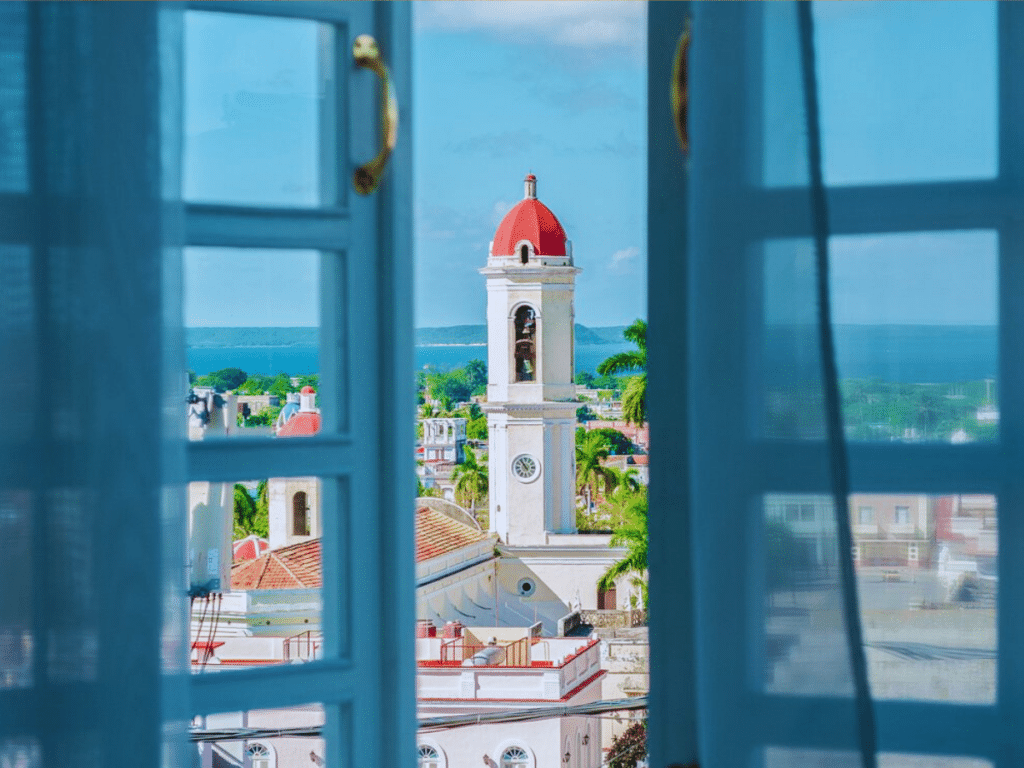
12 Categories of Authorized Travel to Cuba
Now when traveling to Cuba, you simply choose one of these twelve categories of authorized travel to Cuba that applies to your trip. Most travelers’ trips fall under the Support for the Cuban People category of authorized travel, which allows for travel to Cuba so long as it supports local businesses.
These are the Twelve Authorized Categories of travel to Cuba:
- Family visits
- Official business of the U.S. government, foreign governments, and international organizations;
- Journalistic activity;
- Professional research and professional meetings;
- Educational activities;
- Religious activities;
- Public performances, clinics, workshops, athletic and other competitions, and exhibitions;
- Support for the Cuban People ;
- Humanitarian projects;
- Activities of private foundations or research or educational institutes;
- Exportation, importation, or transmission of information or informational materials;
- Certain export transactions.
When you book your airline ticket to Cuba or book your accommodations in Cuba in advance, you may be asked your “reason” for traveling to Cuba. It’s as simple as stating “Support for the Cuban People.”
Read More: Support for the Cuban People Travel Guide
Support for the Cuban People
Most travelers looking to experience Cuba need to only offer “ Support for the Cuban People ” as their “reason” for traveling to Cuba. When you do this, it means you’re saying to the U.S. government that you acknowledge that you’re planning to spend your travel dollars with local, non-government-run businesses while you’re in Cuba – that’s it!
This is stuff that you’d be doing on a trip to Cuba anyway – which is what makes it so easy to travel normally this way.
Stay at a casa particular (room for rent or apartment for rent owned by a Cuban, Airbnb style) or a small boutique hotel, meet up with local guides, eat at any of the innovative new restaurants around the island , or experience Cuba from a local’s eyes. This is all permitted and encouraged on a “Support for the Cuban People” trip.
Travel Insurance
Cuba requires that all travelers have proof of a comprehensive travel insurance policy in order to enter the country. Check out our guide to travel insurance for Cuba for more details. We recommend these brands for Cuba travel insurance:
- Visitors Coverage : Coverage for Cuba travel available to citizens of all countries, though not currently available to residents of New York and Maryland in the United States.
- Insubuy : Coverage for Cuba travel available to citizens of all countries and states of the United States.
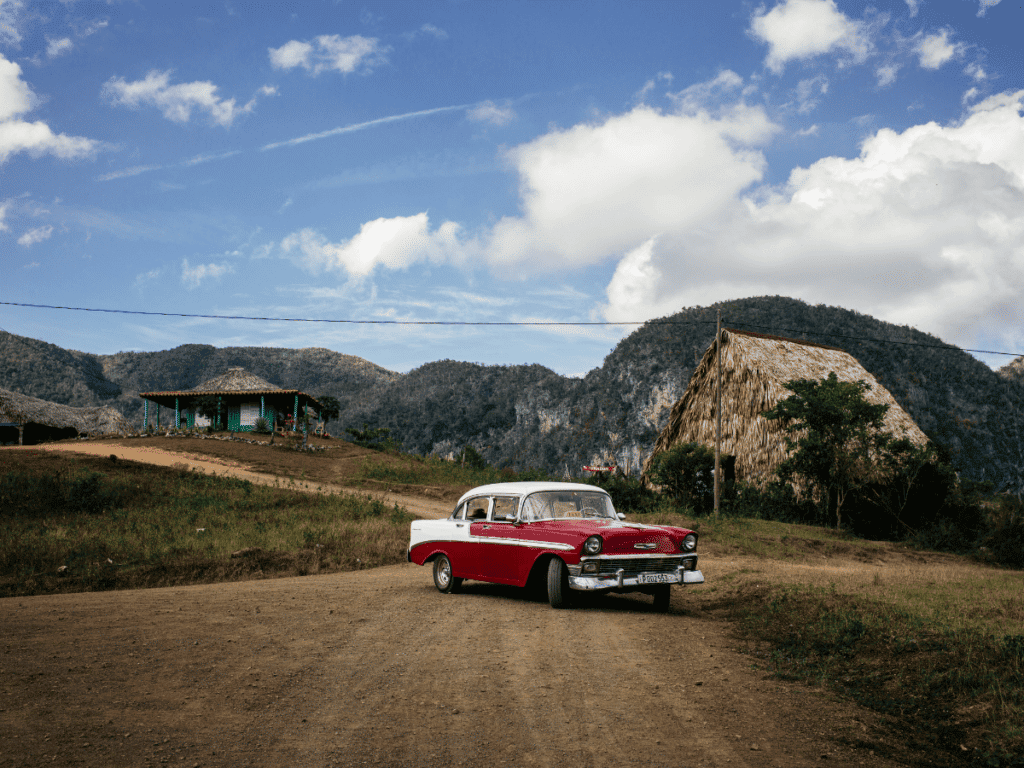
Regulations on American Travel to Cuba
While many continue to ask, “ can Americans travel to Cuba ?” – one of our most frequently asked questions on this website! – the answer is yes, and with these new regulations, it’s easier than ever.
However, keep in mind that some travel regulations put in place by the U.S. government still apply to American travelers visiting Cuba. These include:
- American citizens are no longer able to bring rum or cigars back from Cuba ;
- American citizens are now prohibited (by the U.S. government – not the Cuban government) from staying at a variety of hotels in Cuba ;
- Some methods of traveling to Cuba, such as “ people to people Cuba ” travel organized tours and the ability to travel to Cuba by cruise, have been scaled back or eliminated.
Read on for some of the regulations on travel to Cuba that Americans should be aware of during their trip.
Restricted Hotels in Cuba
One of the newer travel restrictions for Americans traveling to Cuba relates to places where American citizens are not allowed to stay while visiting Cuba. The Trump Administration developed a list of specific hotels and guesthouses that are either partially or entirely owned by the Cuban government and declared them off-limits to American travelers.
Check out the full list here before you book your accommodations in Cuba.
Some newspapers and websites have been incorrectly reporting that Americans are not allowed to stay in any hotel in Cuba, but this is not actually the case. Americans are just prohibited from staying in certain hotels that are owned entirely or partially by the Cuban government.
There are many boutique hotels with private ownership where Americans are still able to stay, plus private rentals called “casas particulares” or private home rentals like Airbnbs. In fact, some of our favorite hotels in Havana and around the country are still open and ready for business for American travelers ( La Reserva Vedado , La Rosa de Ortega , El Candil Boutique Hotel , and plenty of other Old Havana hotels are among our favorites in the capital).
Read More: Accommodation Guides in Cuba
- What is a Casa Particular Guest House in Cuba?
- Where To Stay in Havana, Cuba
- 10+ Best Resorts in Cuba
- 16+ Best Hotels in Cuba
Financial Restrictions in Cuba
It’s very important that American travelers to Cuba be aware of the financial and banking restrictions they will experience while traveling in Cuba. Because of the decades-long U.S. embargo against Cuba, American debit cards and credit cards will not work on the island as they do for those traveling from any other country .
That means that while American citizens can travel to Cuba, they can’t access their money from Cuba. This is quite important, as it means that if plan to travel to Cuba, you need to plan ahead and bring the money you’ll need for your trip with you in cash .
You can bring American dollars and convert them into Cuban pesos once you arrive in Cuba. Please read our complete Cuban currency guide before doing this – you’ll see why it’s not wise to exchange your money for Cuban pesos at the airport, for example, and learn how much money to bring with you on your trip to Cuba.
Read More: Financial Restrictions in Cuba
- The Ultimate Guide to Currency in Cuba
- Budget Your Trip: How Much Money To Plan To Bring to Cuba
Internet Restrictions in Cuba
There are no internet restrictions in Cuba that are specific to American travelers. However, it’s important to be aware of some important internet-related challenges in Cuba.
We get a lot of questions about whether there is internet access in Cuba , and if there is, if it’s safe to use or restricted by the government.
While the internet in Cuba is slower than you may be used to, it is now quite widespread and is pretty easy to use in most places in Cuba. Some websites are blocked in Cuba , and there have even been widespread internet outages during times of social unrest, though these blockages have mostly been of news websites that have been critical of the Cuban government.
However, the United States embargo of Cuba and the related financial and economic restrictions on U.S. companies doing business in Cuba means that some companies can’t offer their services to internet users in Cuba (notably, PayPal and many other banking apps, but the list changes) . You will not be able to access these websites from Cuba.
You can easily get around this if you want by using a VPN (Virtual Private Network) in Cuba . We recommend NordVPN – it’s by far the best VPN to use in Cuba But, even without a VPN, you can still use the internet in Cuba without too much of a hassle.
Read More: How To Use the Internet in Cuba: A Local’s Guide For Travelers
Read More: Internet in Cuba
- Guide to Using the Internet + Getting Wifi in Cuba
- Best VPN For Cuba ( + How to Use a VPN in Cuba)
Packing Restrictions in Cuba
There are some limitations worth noting about what you can bring into Cuba. While most are quite obvious – the usual dangerous substances and the like – there are a few rules for packing for Cuba , both for travelers from the United States and elsewhere :
- Travelers can not bring drones to Cuba
- Travelers can not bring devices like walkie-talkies, satellite phones, or GPS devices. Any personal computers, cell phones, cameras, or any other devices you normally travel with are absolutely fine – no worries here.
- Avoid bringing any literature to Cuba that may be seen as critical of the Cuban government. My brother was once held up in customs for bringing a university textbook with Donald Trump on the cover.
What to Pack for Cuba
Check out our Ultimate Cuba Packing List to help you pack for your trip – we’re sharing exactly what to bring to Cuba and what we never travel without.
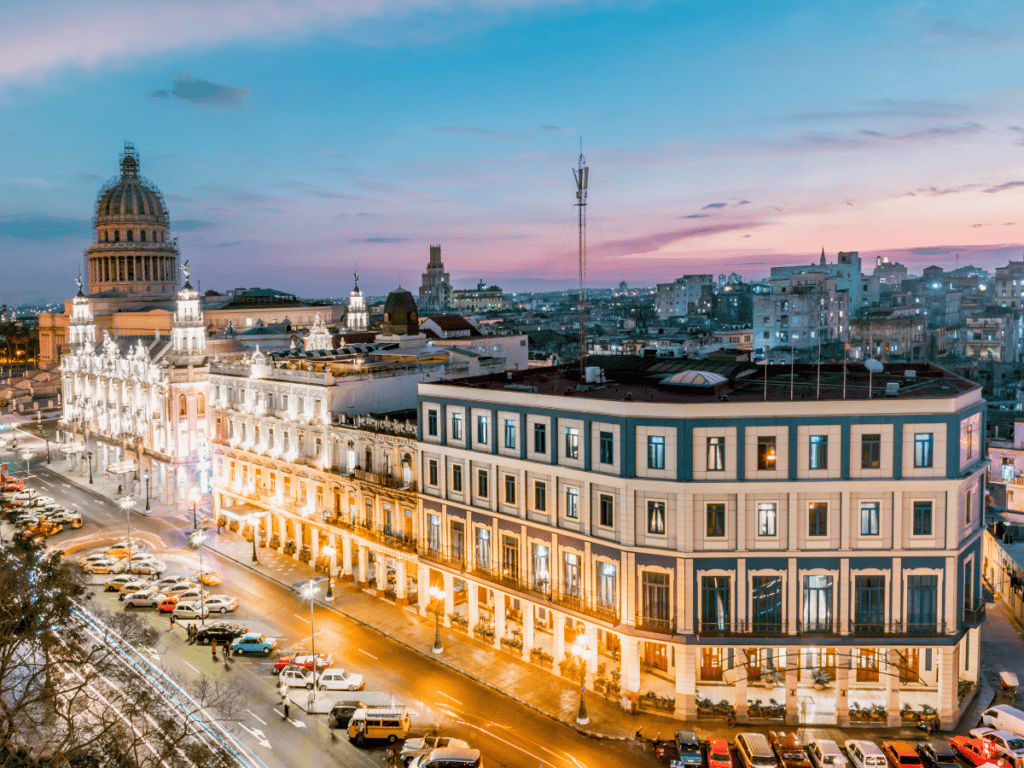
American Travel to Cuba – Frequently Asked Questions
Can americans fly to cuba.
Yes – Americans can fly to Cuba! American citizens can fly to Cuba either from the United States directly or from other countries. Flights to Cuba leave regularly from many of America’s largest cities like Miami, Ft. Lauderdale, Atlanta, and New York.
We frequently get the “can Americans fly to Cuba?” question because when travel to Cuba was more restricted, many Americans used to fly to Cuba through Canada or Mexico as a way to skirt travel restrictions .
However, flying to Cuba via another country like Mexico or Canada is no longer a necessity. Obama’s Cuba policy changes allowed many more American citizens to travel to Cuba much more easily, kicking off many more flights to Cuba from the United States.
Do Americans Have to Travel to Cuba With A Group?
One of the most popular ways to travel to Cuba prior to the Cuba travel policy changes of former President Obama was with a “people-to-people” group or as part of an educational tour. However, with the ease of traveling to Cuba from the United States now, these group travel to Cuba experiences are no longer a necessity to visit the island.
While there are groups that travel to Cuba and tout the ease of traveling to Cuba by purchasing a spot on a group trip doing so, it isn’t necessary to travel to Cuba with a group . Feel free to travel to Cuba with a group if this is your preferred style of travel – or plan your trip to Cuba independently, too!
Looking for some engaging tours in Cuba, ways to meet up with local guides, or fun activities and excursions in Cuba? We recommend Civitatis , a fantastic company we’ve used countless times before that runs tours with local guides all around Cuba.
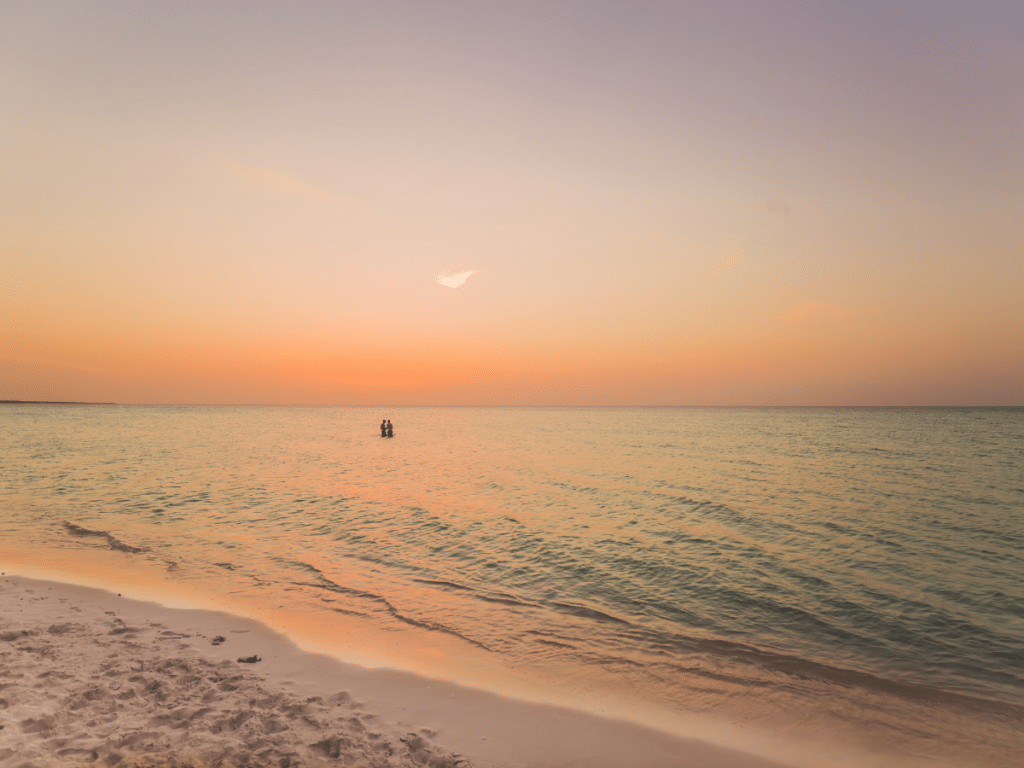
Is Cuba Safe for Americans?
While Cuba isn’t crime free, Cuba is a safe travel destination for all travelers, including American travelers. Statistics prove Cuba is quite a safe destination for travelers, and my own experience exploring Cuba, even as a solo female traveler, confirms it.
In all my years of visiting Cuba, I’ve never been met with anything other than curiosity when people leave I’m from the United States. While many Cubans disapprove of the government of the United States, I’ve never met a single Cuban who holds this against the average American citizen.
Overall, Cuba is safe for Americans , and as a traveler, you have absolutely nothing to fear while visiting.
Read More: Is Cuba Safe for Americans?
Travel Essential
Don’t think about traveling to Cuba without a good VPN (Virtual Private Network) . Using a VPN while connecting to the internet is an easy way to keep your personal information safe from hackers and trackers. We’ve used NordVPN for years and couldn’t recommend it more – it’s a must for safety online, especially in Cuba.
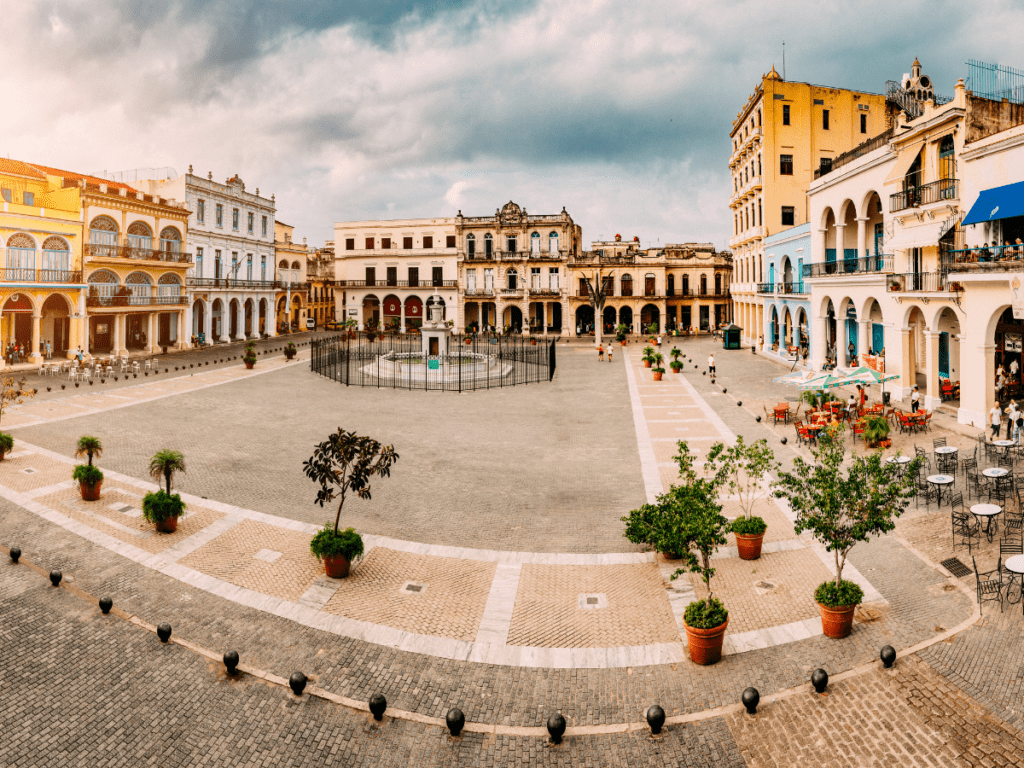
American Embassy in Cuba
Part of the policy changes of former President Obama in 2014 paved the way for reopening the United States Embassy in Cuba after nearly 60 years of closure. The American Embassy in Cuba offers emergency services to American citizens traveling in Cuba, including assistance with lost passports, registering births abroad, and more.
Located prominently along the Malecón sea wall in central Havana, the American Embassy in Cuba is currently providing services to American citizens and has just started providing limited services to Cuban citizens seeking visas to the United States.
As a U.S. traveler to Cuba, you should save the address and contact information for the embassy just in case you need it:
U.S. Embassy Havana Malecón, Calzada between L & M, Vedado Havana, Cuba Phone: (53)(7) 839-4100
Travel to Cuba
There are so many things to do in Cuba – much more than laying on the beach and riding in old, classic American cars.
Anything from taking a guided tour of Havana to eating at a restaurant operated as a small business or taking salsa classes are ways to enjoy Cuba. And guess what – all of these things are perfectly legal – and welcome! – when you travel to Cuba as part of a Support for the Cuban People trip.
For more travel ideas, we put together a guide to the top ten activities in Cuba for a Support for the Cuban People trip with our favorite ideas for a fantastic trip! Go ahead – get started planning your once-in-a-lifetime trip to Cuba! As always, we’ll be here to help you get started.

Carley Rojas Avila
Carley Rojas Avila is a bilingual travel writer, editor, content marketer, and the founder of the digital travel publications Home to Havana and Explorers Away. She is a serial expat and traveler, having visited 40+ countries and counting. Carley has written for publications like Travel + Leisure, MSN, Associated Press, Weather Channel, Wealth of Geeks, and more. Find her front row at a Bad Bunny concert, befriending street cats, and taste-testing every pizza in Havana.
- WORK WITH GABBY
- PACKS LIGHT PRODUCTS
- GABBY RECOMMENDS…
Debunking 9 assumptions I had about visiting Cuba as a U.S. Citizen
Is Cuba safe for Americans? Is it nice? Is it even worth visiting? Do Cubans event want Americans to visit? What is modern Cuba actually like?
One of my favorite travel habits is Assumptions vs Reality journaling . I write down (without judgement) any assumptions or expectations I have about a destination, culture, or people before a trip. I reflect on the journal entry later after I’ve actually been there and formed an opinion. The exercise always shows me the way we all have unconscious biases and can be so wrong about people and places until we go see them ourselves.
Before I did this exercise for my trip to Cuba I didn’t realize I was brimming with preconceptions! Fueled by American history classes, stories of Cuban-American immigrants to the U.S., social media, and general lack of knowledge.
Are you interested in traveling to Cuba, but have some of the same assumptions? Let’s debunk them together! Here's how my assumptions stacked up against the reality on my recent trip with Intrepid Travel .

It's really difficult for Americans to get a visa to visit Cuba.
Assumption:.
“How hard is it to get a visa to Cuba?” is a top Google search for the country for a reason. I don't know why, but I think we've all heard getting a visa is difficult, rare, and somewhat shady process for Americans.
I think it's somehow tied to this “air of mystery” Americans have for Cuba in general (myself included! Which is why I'm making this post!)
The answer is, no, it's not. I bought a little pink piece of paper right before literally getting on my flight to Cuba at the gate. It was $60, and as simple and them checking my passport and swiping my credit card.
I also got a lot of questions wondering if travel to Cuba will affect travel to other countries, and if a Cuba stamp in your passport is like a huge, glaring red flag. Luckily, he reality is that your passport isn't stamped at all. They stamp your boarding pass, and Cuban visa which you must keep until you leave the country. Tourists would have a huge issue visiting Cuba at alll if this were the case, so don't worry! However, I recommend going to Cuba on a group trip with Intrepid Travel for this reason. For Americans to visit Cuba we need to be “Supporting the Cuban People” (technically, it's not allowed for American citizens to visit Cuba for pure leisure). On a group trip, it's already clearly organized and set itinerary, and they can assist you with applying for and organizing your visa because you'll be a part of an educational tour. This Reddit post is extremely accurate as far as what to really expect in the process to travel to Cuba for Americans. But summary: it's not as complicated or scary as we think.

Cuba isn’t really worth visiting because it’s so similar to Puerto Rico and the Dominican Republic.
Cuba often gets lumped together with other Caribbean destinations like Puerto Rico and the Dominican Republic. Because Americans have unique regulations to visiting Cuba because of the U.S. embargo, many Americans might think “Why visit Cuba, when I can visit similar countries nearby?”
While there are cultural and geographical similarities, Cuba's sheer size took me by surprise. It's much bigger than both countries combined, offering a diverse landscape that keeps unfolding as you travel across the island.
The Reality:
Indeed, I saw certain similarities in Caribbean features between Cuba its neighbors, having been to other Caribbean destinations like Puerto Rico, Jamaica, and the British Virgin Islands in recent years.
But Cuba’s sheer size—10x as big as Jamaica, and 4x bigger than Puerto Rico!— allows it a lot more room to blend urban experiences, mountainous terrain, and picturesque beaches. To me, Cuba's diversity extended beyond the typical Caribbean blueprint.

Cuban beaches are rocky and not worth visiting
Before my visit, I pictured Cuba's beaches as rocky, somewhat unwelcoming shores. I’d heard this in passing from other travelers who told me not to visit Cuba if I was looking for stereotypically Caribbean white sand beaches or luxury.
Reality Check
A lot of Cuba does have rocky shores. Because of the lack of infrastructure, Cuba hasn’t been able to widely invest in aesthetic beaches like it’s neighbors. But just because they’re not Sandals resorts on every corner doesn’t mean there aren’t beautiful Cuban beaches.
Trinidad’s soft, sandy beach Playa Ancon , took my breath away. A true slice of paradise that debunked every rocky beach stereotype I had with soft sand, a stunning sunsets, and abundant cabanas and island cocktails for less than $1.00 USD a pop.
Even the Cuba’s rocky beaches reminded me of some of the best swimming spots in Turkiye—
Cuban food is bland (and bad)
This was the most common assumption said to me when I asked around which was a shock to me! “I heard the food has no flavor”, “The food is bad”, “The food isn't good” were the only comments I heard before my trip.
Firstly, Cuban is limited in the food that's available to them through importation. This can effect availability of ingredients, restaurant s that can open, and what can be served, obviously.
That said, I personally enjoyed Cuban food! I found it similar to Jamaican food with red beans and rice, yuca (cassava), and plantain as a staple for every meal. Maybe that's why I liked it—because it felt like a familiar, filling, home-cooked meal. On the trip we learned the country was full of eco-farms and many of our meals were at farm-to-table restaurants. I'm a huge seafood fan so I also really enjoy how much I found in the Cuban palette! I've never had so much lobster—lobster ceviche, lobster sushi, grilled lobster… I was in heaven!
That being said, I agree that Cuba is not a mecca of culinary innovation, layered spice, or bold flavors—it was one of fresh vegetables and simple, hearty meals.
Cuban Spanish is more difficult to understand than other dialects
I braced myself for a challenging linguistic experience, expecting Cuban Spanish to be hard to comprehend.
To my relief, I found Cuban Spanish to be quite clear and understandable. If you know Spanish basics, the language barrier will hardly a barrier at all. Knowing Spanish is absolutely an advantage in Cuba and will open up the country and it's people for more profound connections with locals.
💡 Looking for more paid travel opportunities? Check out our PTO (Paid Travel Opportunities) Dashboard , updated weekly with new funded programs, travel scholarships, and more! Make sure to join our email list, too.
Cubans are disconnected from the world
Media often paints Cuba as a disconnected place stuck in time. We see images of classic cars, 1950’s design themes in hotels and architecture such as Hotel Nacionel and El Floridita (well known as Ernest Hemingway’s favorite bar!).
In modern times we hear about the lack of job opportunity in Cuba and how visitors have no wifi-connection and tend to disappear off of social media while in Cuba.
Where do they go? What are they doing? This air of mystery Cuba tends to have made me, and many others, assume it would be a land lost to time….
It's wrong, but it's also complicated.
In 2024, it’s not uncommon for major hotels in Havana to have wifi. You can buy a SIM card at the Havana airport when you land, and eSIM services like Airalo work fine in Cuba. On my wifi was available in our accomodations. It’s not free wifi like in the U.S.: you need a SIM card or Wifi Card to access it. And it wasn’t always very strong. But it available if you could pay for it!
This is the real dilemma for Cubans: paying for it. Our local Cuban guide told us that the average Cuban might make something around $15 USD per month working a standard job (Cuba has a centralized socialist economy). 1GB of data while in Cuba cost $15 USD.
While internet and media are not regularly accessible to all Cubans, the assumption that the country is a “stuck in the 1950’s” isn’t true at all. Many of the Cubans my age (in their 20’s) had Instagram accounts, are obsessed with streaming the latest Cuban songs, and seemed pretty in tune with news and social media. Almost all older Cubans are keenly tuned into the latest American politics becaus it affects their lives so much.

Tourists are watched under a microscope while in Cuba
Because Americans know Cuba to have a socialist economy, I think most Americans imagine even modern Cuban society as something similar to George Orwell's 1984 — with “Big Brother” watching everyone's every move and the average person's life being extremely stressful because of the government's presence.
I don’t speak for the Cuban people’s experience because it’s impossible to truly know unless you live there recently—especially as Cuba has changed so much in the last 50 years, and in more resent years due to the pandemic.
But as a tourist I can say that “Big Brother” was far from my experience. In fact, I found Cuba to be have a lot less obvious police presence than most cities in the United States. I saw a lot of security guards, but almost no police on patrol and certainly not harassing tourists or watching our every move.
Businesses, even small private businesses, are regulated by the Cuban government. But the average Cuban citizen seemed able to share their views on their government in Cuban Society somewhat freely in casual conversation.
Cuban’s hate Americans, and don’t want to see American tourists.
To be fair, many countries have a valid right to have negative feelings toward the United States for centuries of cimperialism in the America’s. I thought Cuba no different, especially after learning more about the very active embargo. Americans definitely fear that we are ethically unwanted visitors.
The reality I saw during my 2024 trip to Cuba this was not the case, in a truly surprising way.
Because of Cuba’s economic state, any tourist is a good tourist. I encountered tourists from Canada, Brazil, Colombia, Peru, Vietnam, Mexico, and more. Tourists from the U.S. are treated the same as the rest. Because of the hardships of Cuban life, many Cubans dream of coming to the U.S. for opportunity, so for that reason they were curious about us and our lives.
I also tried to find the opinion of specifically younger Cubans—waiters, students, friends I met at dinner. I think most Cubans seem to have a clear separation of the American governments actions and the opinions and beliefs of American people.
Huge New Year's Eve fiestas!
I assumed all Caribbean countries had massive New Year's Eve celebrations. Fireworks, parties, fun—I especially know Cubans for their influence in reggaeton so I assumed there'd be huge parties surrounding music, dance, and ron !
Cut the fireworks and salsa music. Cuban New Year's Eve turned out to be a heartwarmingingly intimate event.
Instead of grand parties, families gather to celebrate in a more personal, communal way. I found Cuban New Year's Eve to be surrounded by ritual and some very interesting traditions . We celebrated in Cienfuegos. The locals explained to us that in this region there are 3 main traditions: tossing a bucket of water out of your house into the street, burning a life-sized doll in the middle of the street (to represent saying goodbye/cleansing the past year), dancing around it and singing.
On my trip, the locals welcomed us into their celebrations without hesistation and we danced around the fires with a group of local kids singing, and salsaing.
There was some ron involved, but the night was more wholesome, calm, and beautiful than I imagined.

My journey through Cuba was an eye-opening experience, challenging my assumptions and replacing them with a nuanced understanding of this beautiful country. Cuba is a land of contrasts and surprises, rich in history and culture, far different from what many of us have been led to believe. It's a reminder of how travel can broaden our horizons, shatter stereotypes, and connect us more deeply with the diverse world we live in.
Did you have any of these assumptions too? Did this blog post help you? Are there any questions I can answer as an American tourist who has recently visited Cuba? Ask them in the comments below, I'll respond there!

Liked this? Check these out!
More than havana: 5 other must-visit destinations in cuba, what to donate if you’re visiting cuba and want to....
Great read, thank you!
An excellent article. Thanks. I don’t think we can truly understand humanity and all it’s divergent cultures without actually seeing it
Thanks for reading, Kent!
Leave a Comment Cancel Reply
Save my name, email, and website in this browser for the next time I comment.
Gabby Beckford
Gabby is a multi-awardwinning creator. She is a full-time travel influencer, Gen Z travel marketing expert, and public speaker. You'll find her featured in the likes of Good Morning America, National Geographic, CNNTravel, Forbes, Travel+Leisure, and even the TEDx stage.
What to donate if you’re visiting Cuba and want to ACTUALLY support the Cuban people

International Tourism Fair of Cuba, FITCuba 2024, from May 2 to 5, in the Jardines del Rey keys, in northern Cuba.

The XLII International Tourism Fair of Cuba FITCuba 2024 will take place in the Jardines del Rey keys, north of the central province of Ciego de Ávila, the second sun and beach destination on the Island and one of the most promising in the Caribbean.
The Fair will be dedicated to Latin America and the Caribbean. FITCuba is an exceptional opportunity to meet and do business with numerous Cuban and international tourism companies. Five thousand professionals from the travel sector, more than 570 businessmen and representatives of 51 airlines attended FITCuba 2023 in Havana.
Do not lose this chance. The combination of beautiful beaches, of which the island has 1,000 km, heritage cities, natural terrestrial and underwater landscapes, the diversity of its flora and fauna, hospitality, security and historical and cultural wealth make Cuba a unique destination.
Cuba is a multi-destination in itself since it has various options for ecotourism, sun and beach tourism, cultural, historical, adventure, nature, health, convention, country, nautical, etc. In Tripadvisor's Travelers' Choice Awards Best of the Best 2024, Cuba was ranked the first cultural destination in the world and the second most popular place in the Caribbean. The island also ranked 18th among international gastronomic destinations and in 2023 the island was rated the first “Trendy Destination” internationally.
Varadero has been selected in recent years among the 10 best beaches in the world and in 2023, Cayo Santa María beach ranked ninth and Playa Pilar in Cayo Guillermo ranked 12th. Likewise, the specialized magazine Wanderlust awarded Cuba the Gold award for the Most Desired Island in the World as a travel destination, at the World Travel Market 2023 fair.
Jardines del Rey has 40 kilometers of paradisiacal beaches and 10,000 rooms in nearly 30 hotels, aparthotels, houses and bungalows on the Coco, Guillermo, Paredón Grande, Antón Chico and Media Luna keys. Just three miles from its shores lies the second largest barrier reef in the world: more than 400 km long. in an excellent state of conservation, with numerous marine species such as crustaceans, mollusks, turtles, dolphins, sharks and 26 species of corals.
Copyright 2016, Cuba’s Representative Office Abroad
- Skip to main content
- Skip to "About this site"
Language selection
Search travel.gc.ca.
Help us to improve our website. Take our survey !
COVID-19: travel health notice for all travellers
Cuba travel advice
Latest updates: The Need help? section was updated.
Last updated: March 25, 2024 10:25 ET
On this page
Safety and security, entry and exit requirements, laws and culture, natural disasters and climate, cuba - exercise a high degree of caution.
Exercise a high degree of caution in Cuba due to shortages of basic necessities including food, medicine and fuel.
Resort areas - Take normal security precautions
- Cayo Largo del Sur
- Cayo Santa Maria
Guardalavaca
Back to top
Petty crime
Petty crime, such as pickpocketing and purse snatching, occurs.
Theft generally occurs in crowded places such as:
- tourist areas
- public buses
- night clubs
It can also occur in isolated areas.
Theft from hotel rooms, particularly in private accommodations ( casas particulares ), and from cars is common.
- Ensure that your personal belongings, including your passport and other travel documents, are secure at all times
- Don’t pack valuables in your checked luggage
- Avoid showing signs of affluence
- Keep electronic devices out of sight
- Carry valid identification at all times
- Keep a digital and a hard copy of your ID and travel documents
- Avoid carrying large amounts of cash
- Never leave belongings unattended in a vehicle, even in the trunk
Violent crime
Incidents of violent crime are not frequent, but assaults may occur. They mainly occur during a burglary or robbery.
- Stay in accommodations with good security
- Keep your windows and doors locked at all times
- If threatened by robbers, don't resist
Credit card and ATM fraud may occur.
Be cautious when using debit or credit cards:
- pay careful attention when your cards are being handled by others
- use ATMs located in well-lit public areas or inside a bank or business
- avoid using card readers with an irregular or unusual feature
- cover the keypad with one hand when entering your PIN
- check for any unauthorized transactions on your account statements
Some businesses may try to charge exorbitant prices, namely taxis and classic car rentals. Disputes about overcharging may lead to violence.
- Always confirm prices before consuming or taking up a service
- Avoid running a tab
- Avoid leaving your credit card with bar or restaurant staff
- Check your bill to make sure it’s exact
Some hustlers specialize in defrauding tourists. Most of them speak some English or French and go out of their way to appear friendly. They may offer to serve as tour guides or to facilitate the purchase of cigars. Some have used violence in their efforts to steal tourists.
Fraudulent tour agents and taxi drivers also operate throughout the country, including at Havana’s international airport. Thefts of luggage from taxi trunks have occurred.
In bars, sex workers, including minors, may be very persistent and intrusive with tourists who refuse their advances. Foreigners, including Canadians, have been the victim of theft after engaging in sexual relations, and some of them have faced child sex accusations.
- Use reputable tour operators and registered taxis only
- Avoid independent street vendors
- Be wary of strangers who seem too friendly
Overseas fraud
Cuba faces chronic and severe shortages of basic necessities, including:
- bottled water
- public water supply
- hard-currency
Fuel shortages are currently critical and affect a wide range of services. Travelling across the island is extremely challenging. Public transportation services, including taxis, are often disrupted, leaving tourists with few options to travel. Some travellers have been temporarily stranded with a rental car. Intermittent shortages of tap water provided by municipalities happen, including in Havana and in resorts.
Hotels and resorts, that often use generators during power outages, may not be able to maintain their services. Fuel shortages may also affect government services.
Local authorities enforce the rationing of food and medications, which could also affect travellers.
Shortages may lead to disruptions to other essential services. There are often long line-ups at gas stations that have led to altercations.
- Plan accordingly
- Bring some basic necessities with you such as toiletries and medication
- Keep a supply of water, food and fuel on hand
- Make sure you always have access to a complete emergency kit
Power outages
Power outages occur regularly outside of Havana and touristic areas.
Obtaining services during an outage is challenging.
Women’s safety
Women travelling alone may be subject to some forms of sexual harassment
Incidents of sexual assault against Canadian women have occurred, including at beach resorts.
If you’re the victim of a sexual assault, you should report it immediately to the nearest Canadian consulate or embassy and seek medical assistance. You should also report the incident to Cuban authorities and ensure that local police provide you with a Comprobante de Denuncia. This document confirms that a report has been filed.
A criminal investigation will likely not be possible if no formal complaint is made to Cuban authorities before you depart the country.
Police officers may speak only Spanish.
Advice for women travellers
Spiked food and drinks
Snacks, beverages, gum and cigarettes may contain drugs that could put you at risk of sexual assault and robbery.
- Be wary of accepting these items from new acquaintances
- Never leave food or drinks unattended or in the care of strangers
Telecommunications
The telecommunications network in Cuba is poor. Connections are unreliable and may be intermittent.
Some Canadian cell phones may not work, even in large cities. Internet access is limited across the island.
Local authorities control telecommunications. They may block access to mobile phone and Internet in case of civil unrest or before demonstrations.
- Don’t rely on your mobile phone for emergencies, especially outside major cities
- Subscribe to and install a VPN service before leaving Canada
- Avoid travelling alone
- Inform a family member or friend of your itinerary
Online transactions
Online banking or shopping may be challenging in Cuba, if at all possible. Most Cuban websites are unsecure. Many are inaccessible.
Some travellers, who bought their travel package online on a travel website in Canada, found out on arrival in Cuba that their hotel received no reservation or payment.
- Avoid online shopping
- Check with the hotel if they accept online reservations and payments if you plan to book online
Demonstrations
Demonstrations sometimes occur, even if taking part in them may be illegal. Local authorities will break up political demonstrations or gatherings not sanctioned by the government. They may also block access to the Internet, including social media, without notice.
Even peaceful demonstrations can turn violent at any time. They can also lead to disruptions to traffic, public transportation.
- Don’t participate in demonstrations
- Avoid areas where demonstrations and large gatherings are taking place
- Follow the instructions of local authorities
- Monitor local media for information on ongoing demonstrations
Mass gatherings (large-scale events)
Water activities
Rescue services may not be consistent with international standards. Tidal changes can cause powerful currents, and riptides are common. Not all beaches have lifeguards or warning flags to warn of hazardous conditions.
- Never swim alone or after hours
- Don’t swim outside marked areas
- Monitor weather warnings
- Avoid visiting beaches or coastal areas during periods of severe weather warnings
- Don’t dive into unknown water, as hidden rocks or shallow depths can cause serious injury or death
- Consult residents and tour operators for information on possible hazards and safe swimming areas
Tour operators and diving centres may not adhere to international standards.
If you undertake adventure sports, such as diving:
- choose a reputable company that has insurance
- ensure that your travel insurance covers the recreational activities you choose
- don’t use the equipment if you have any doubts about its safety
Recreational boating
If you are planning to go boating:
- know the navigation rules
- make sure life jackets are available for all passengers
- follow safe practices for all water activities such as jet-skiing, water-skiing or fishing
- don’t overload your boat capacity
- carry a VHF marine radio that will generate your position in case of emergency
- be prepared for emergencies
Water safety abroad
Road safety
Road safety standards are poor throughout the country. Accidents causing fatalities are common.
Road conditions
Road conditions are poor throughout the island, with the exception of the Central Highway, which runs west to east across the country. Driving may be dangerous due to:
- poorly maintained roads
- lack of signage
- Inadequate lighting
- roaming livestock
- horse-drawn carts
- pedestrians
- slow-moving traffic
Most Cuban cars are old and in poor condition. They often lack standard safety equipment. Some cars and most bicycles don’t have functioning lights.
Driving habits
Some drivers don’t respect traffic laws. Many of them, driving an electric vehicle for which licence and registration are not required, are inexperienced and unqualified. Drinking and driving is also common.
If you choose to drive in Cuba:
- do so defensively at all times
- avoid travelling at night
- travel in groups when possible
- never pick up hitchhikers, who have been known to assault drivers
Public transportation
City buses are scarce, overcrowded and poorly maintained. Bus service is not reliable.
Incidents of pickpocketing are frequent.
Tour companies offer good bus service between airports and the all-inclusive resorts. Buses used for organized day trips from hotels are usually in good condition.
Official taxis are generally reliable.
Old-model private vehicles offered as taxis are not equipped with standard safety features. They have no insurance coverage for passengers in case of an accident.
- Use only registered taxis
- Avoid flagging a taxi down on the street
- Never share a taxi with strangers
- Agree on a fare before departure, as taxis are not equipped with meters
The rail network is comprehensive, connecting most of the island, but it’s unreliable and slow. Train service is limited to Cuban nationals only.
Health incidents
The Government of Canada continues to investigate the potential causes of unexplained health incidents reported by some Canadian diplomatic staff and dependents posted to Havana.
There is no evidence that Canadian travellers to Cuba are at risk.
We do not make assessments on the compliance of foreign domestic airlines with international safety standards.
Information about foreign domestic airlines
Every country or territory decides who can enter or exit through its borders. The Government of Canada cannot intervene on your behalf if you do not meet your destination’s entry or exit requirements.
We have obtained the information on this page from the Cuban authorities. It can, however, change at any time.
Verify this information with the Foreign Representatives in Canada .
Entry requirements vary depending on the type of passport you use for travel.
Before you travel, check with your transportation company about passport requirements. Its rules on passport validity may be more stringent than the country’s entry rules.
Regular Canadian passport
Your passport must be valid for the expected duration of your stay in Cuba.
Passport for official travel
Different entry rules may apply.
Official travel
Passport with “X” gender identifier
While the Government of Canada issues passports with an “X” gender identifier, it cannot guarantee your entry or transit through other countries. You might face entry restrictions in countries that do not recognize the “X” gender identifier. Before you leave, check with the closest foreign representative for your destination.
Other travel documents
Different entry rules may apply when travelling with a temporary passport or an emergency travel document. Before you leave, check with the closest foreign representative for your destination.
Useful links
- Foreign Representatives in Canada
- Canadian passports
Tourist visa: required Family visa: required Business visa: required
Tourist card
Canadian tourists travelling to Cuba need a visa, known as tourist card. The tourist card allows you to stay in Cuba for up to 90 days. The tourist card is generally included in holiday packages provided by tour operators or airlines providing direct flights from Canada. If you go to Cuba on your own or transit via another country, you are responsible for obtaining the tourist card from a Cuban government office in Canada. You may also buy it at some airports in Canada and in the United States.
Length of stay
As a Canadian tourist, you may stay in Cuba for up to 6 months.
However, you must obtain an extension of stay if you intend to stay longer than the initial 90-day period allowed by the standard tourist card.
D’Viajeros traveller information portal – Government of Cuba
Arrival form
You must provide information on your arrival in Cuba via an online form within 72 hours before entering the country.
Once done, you will receive a QR code by email.
You must show an electronic or printed version of the QR code to authorities upon arrival.
Health insurance
You must show proof of valid health insurance to enter Cuba.
All health insurance policies are recognized in Cuba, except those issued by U.S. insurance companies. However, the Cuban immigration authorities will decide which proof of health insurance is acceptable.
Proof of health insurance may be:
- an insurance policy
- an insurance certificate
- a Canadian provincial health insurance card
If you don’t have proof of health insurance or if the proof you present doesn’t satisfy the Cuban immigration authorities, you may have to obtain health insurance from a Cuban insurance company upon arrival. This insurance may have limited coverage. Local authorities may refuse your entry to the country.
Canadian provincial health care coverage provides very limited coverage outside Canada. It won’t pay for medical bills up-front. It does not include air evacuation, and neither does Cuban health insurance.
Cuban authorities won’t let you leave the country with outstanding medical bills, which are payable by credit card only. You will need to remain in Cuba until all debts are paid.
- Make sure you purchase the best health insurance you can afford
- Ensure the insurance includes medical evacuation and hospital stays
More on Travel insurance
Other entry requirements
Customs officials will ask you to show them:
- a return or onward ticket
- proof of sufficient funds to cover your stay
- proof that you have a place to stay if arriving with “air only” tickets
Dual citizenship
If you’re both a Canadian and Cuban citizen, you must:
- present your valid Cuban passport to the immigration authorities to enter Cuba
- have a valid Canadian passport to return to Canada
If you were born in Cuba, you should contact a Cuban government office in Canada before you leave to ensure compliance with Cuban regulations, regardless of your current citizenship. Failure to do so may result in your being refused entry into Cuba or being detained upon entry.
Canadian permanent residents
You will not be able to leave Cuba if you are a Canadian permanent resident and are without a valid permanent resident card. If your card is lost or stolen, you must contact the Canadian Embassy in Havana to obtain a travel document that will allow you to leave the country. This procedure can take up to 10 working days. Once the document is ready, you'll need to make an appointment with the immigration section of the Canadian Embassy in Havana to collect it before returning to Canada.
Permanent resident travel document: How to apply
Health screening
You may be subjected to a medical screening or interrogation by public health authorities when you enter or exit Cuba, or when reporting for domestic flights.
You may be subject to a mandatory quarantine for medical observation for up to 7 days if local authorities believe that:
- you have come in contact with a suspected carrier of one of these viruses
- you’re arriving from a country with a known epidemic
Children and travel
- Travelling with children
Yellow fever
Learn about potential entry requirements related to yellow fever (vaccines section).
Relevant Travel Health Notices
- Global Measles Notice - 13 March, 2024
- Zika virus: Advice for travellers - 31 August, 2023
- COVID-19 and International Travel - 13 March, 2024
This section contains information on possible health risks and restrictions regularly found or ongoing in the destination. Follow this advice to lower your risk of becoming ill while travelling. Not all risks are listed below.
Consult a health care professional or visit a travel health clinic preferably 6 weeks before you travel to get personalized health advice and recommendations.
Routine vaccines
Be sure that your routine vaccinations , as per your province or territory , are up-to-date before travelling, regardless of your destination.
Some of these vaccinations include measles-mumps-rubella (MMR), diphtheria, tetanus, pertussis, polio, varicella (chickenpox), influenza and others.
Pre-travel vaccines and medications
You may be at risk for preventable diseases while travelling in this destination. Talk to a travel health professional about which medications or vaccines may be right for you, based on your destination and itinerary.
Yellow fever is a disease caused by a flavivirus from the bite of an infected mosquito.
Travellers get vaccinated either because it is required to enter a country or because it is recommended for their protection.
- There is no risk of yellow fever in this country.
Country Entry Requirement*
- Proof of vaccination is required if you are coming from or have transited through an airport of a country where yellow fever occurs.
Recommendation
- Vaccination is not recommended.
- Discuss travel plans, activities, and destinations with a health care professional.
- Contact a designated Yellow Fever Vaccination Centre well in advance of your trip to arrange for vaccination.
About Yellow Fever
Yellow Fever Vaccination Centres in Canada * It is important to note that country entry requirements may not reflect your risk of yellow fever at your destination. It is recommended that you contact the nearest diplomatic or consular office of the destination(s) you will be visiting to verify any additional entry requirements.
There is a risk of hepatitis A in this destination. It is a disease of the liver. People can get hepatitis A if they ingest contaminated food or water, eat foods prepared by an infectious person, or if they have close physical contact (such as oral-anal sex) with an infectious person, although casual contact among people does not spread the virus.
Practise safe food and water precautions and wash your hands often. Vaccination is recommended for all travellers to areas where hepatitis A is present.
Measles is a highly contagious viral disease. It can spread quickly from person to person by direct contact and through droplets in the air.
Anyone who is not protected against measles is at risk of being infected with it when travelling internationally.
Regardless of where you are going, talk to a health care professional before travelling to make sure you are fully protected against measles.
Hepatitis B is a risk in every destination. It is a viral liver disease that is easily transmitted from one person to another through exposure to blood and body fluids containing the hepatitis B virus. Travellers who may be exposed to blood or other bodily fluids (e.g., through sexual contact, medical treatment, sharing needles, tattooing, acupuncture or occupational exposure) are at higher risk of getting hepatitis B.
Hepatitis B vaccination is recommended for all travellers. Prevent hepatitis B infection by practicing safe sex, only using new and sterile drug equipment, and only getting tattoos and piercings in settings that follow public health regulations and standards.
The best way to protect yourself from seasonal influenza (flu) is to get vaccinated every year. Get the flu shot at least 2 weeks before travelling.
The flu occurs worldwide.
- In the Northern Hemisphere, the flu season usually runs from November to April.
- In the Southern Hemisphere, the flu season usually runs between April and October.
- In the tropics, there is flu activity year round.
The flu vaccine available in one hemisphere may only offer partial protection against the flu in the other hemisphere.
The flu virus spreads from person to person when they cough or sneeze or by touching objects and surfaces that have been contaminated with the virus. Clean your hands often and wear a mask if you have a fever or respiratory symptoms.
In this destination, rabies is carried by dogs and some wildlife, including bats. Rabies is a deadly disease that spreads to humans primarily through bites or scratches from an infected animal. While travelling, take precautions , including keeping your distance from animals (including free-roaming dogs), and closely supervising children.
If you are bitten or scratched by an animal while travelling, immediately wash the wound with soap and clean water and see a health care professional. Rabies treatment is often available in this destination.
Before travel, discuss rabies vaccination with a health care professional. It may be recommended for travellers who are at high risk of exposure (e.g., occupational risk such as veterinarians and wildlife workers, children, adventure travellers and spelunkers, and others in close contact with animals).
Coronavirus disease (COVID-19) is an infectious viral disease. It can spread from person to person by direct contact and through droplets in the air.
It is recommended that all eligible travellers complete a COVID-19 vaccine series along with any additional recommended doses in Canada before travelling. Evidence shows that vaccines are very effective at preventing severe illness, hospitalization and death from COVID-19. While vaccination provides better protection against serious illness, you may still be at risk of infection from the virus that causes COVID-19. Anyone who has not completed a vaccine series is at increased risk of being infected with the virus that causes COVID-19 and is at greater risk for severe disease when travelling internationally.
Before travelling, verify your destination’s COVID-19 vaccination entry/exit requirements. Regardless of where you are going, talk to a health care professional before travelling to make sure you are adequately protected against COVID-19.
Safe food and water precautions
Many illnesses can be caused by eating food or drinking beverages contaminated by bacteria, parasites, toxins, or viruses, or by swimming or bathing in contaminated water.
- Learn more about food and water precautions to take to avoid getting sick by visiting our eat and drink safely abroad page. Remember: Boil it, cook it, peel it, or leave it!
- Avoid getting water into your eyes, mouth or nose when swimming or participating in activities in freshwater (streams, canals, lakes), particularly after flooding or heavy rain. Water may look clean but could still be polluted or contaminated.
- Avoid inhaling or swallowing water while bathing, showering, or swimming in pools or hot tubs.
Travellers' diarrhea is the most common illness affecting travellers. It is spread from eating or drinking contaminated food or water.
Risk of developing travellers' diarrhea increases when travelling in regions with poor standards of hygiene and sanitation. Practise safe food and water precautions.
The most important treatment for travellers' diarrhea is rehydration (drinking lots of fluids). Carry oral rehydration salts when travelling.
Typhoid is a bacterial infection spread by contaminated food or water. Risk is higher among children, travellers going to rural areas, travellers visiting friends and relatives or those travelling for a long period of time.
Travellers visiting regions with a risk of typhoid, especially those exposed to places with poor sanitation, should speak to a health care professional about vaccination.
Salmonellosis is a common illness among travellers to this country. It can be spread through contaminated food or beverages, such as raw or undercooked poultry and eggs, as well as fruits or vegetables.
Practice safe food and water precautions . This includes only eating food that is properly cooked and still hot when served.
Pregnant women, children under 5 years of age, those over 60 years of age, and those with weakened immune systems are at greater risk of becoming seriously ill.
Most people recover on their own without medical treatment and from proper rehydration (drinking lots of fluids).
- Carry oral rehydration salts when travelling.
Travellers with severe symptoms should consult a health care professional as soon as possible.
Insect bite prevention
Many diseases are spread by the bites of infected insects such as mosquitoes, ticks, fleas or flies. When travelling to areas where infected insects may be present:
- Use insect repellent (bug spray) on exposed skin
- Cover up with light-coloured, loose clothes made of tightly woven materials such as nylon or polyester
- Minimize exposure to insects
- Use mosquito netting when sleeping outdoors or in buildings that are not fully enclosed
To learn more about how you can reduce your risk of infection and disease caused by bites, both at home and abroad, visit our insect bite prevention page.
Find out what types of insects are present where you’re travelling, when they’re most active, and the symptoms of the diseases they spread.
There is a risk of chikungunya in this country. The risk may vary between regions of a country. Chikungunya is a virus spread through the bite of an infected mosquito. Chikungunya can cause a viral disease that typically causes fever and pain in the joints. In some cases, the joint pain can be severe and last for months or years.
Protect yourself from mosquito bites at all times. There is no vaccine available for chikungunya.
- In this country, dengue is a risk to travellers. It is a viral disease spread to humans by mosquito bites.
- Dengue can cause flu-like symptoms. In some cases, it can lead to severe dengue, which can be fatal.
- The level of risk of dengue changes seasonally, and varies from year to year. The level of risk also varies between regions in a country and can depend on the elevation in the region.
- Mosquitoes carrying dengue typically bite during the daytime, particularly around sunrise and sunset.
- Protect yourself from mosquito bites . There is no vaccine or medication that protects against dengue.
Zika virus is a risk in this country.
Zika virus is primarily spread through the bite of an infected mosquito. It can also be sexually transmitted. Zika virus can cause serious birth defects.
During your trip:
- Prevent mosquito bites at all times.
- Use condoms correctly or avoid sexual contact, particularly if you are pregnant.
If you are pregnant or planning a pregnancy, you should discuss the potential risks of travelling to this destination with your health care provider. You may choose to avoid or postpone travel.
For more information, see Zika virus: Pregnant or planning a pregnancy.
Animal precautions
Some infections, such as rabies and influenza, can be shared between humans and animals. Certain types of activities may increase your chance of contact with animals, such as travelling in rural or forested areas, camping, hiking, and visiting wet markets (places where live animals are slaughtered and sold) or caves.
Travellers are cautioned to avoid contact with animals, including dogs, livestock (pigs, cows), monkeys, snakes, rodents, birds, and bats, and to avoid eating undercooked wild game.
Closely supervise children, as they are more likely to come in contact with animals.
Person-to-person infections
Stay home if you’re sick and practise proper cough and sneeze etiquette , which includes coughing or sneezing into a tissue or the bend of your arm, not your hand. Reduce your risk of colds, the flu and other illnesses by:
- washing your hands often
- avoiding or limiting the amount of time spent in closed spaces, crowded places, or at large-scale events (concerts, sporting events, rallies)
- avoiding close physical contact with people who may be showing symptoms of illness
Sexually transmitted infections (STIs) , HIV , and mpox are spread through blood and bodily fluids; use condoms, practise safe sex, and limit your number of sexual partners. Check with your local public health authority pre-travel to determine your eligibility for mpox vaccine.
Medical services and facilities
Good health care is limited in availability.
The health system is government-owned. The Cuban government operates hospitals and clinics throughout the island.
Medical professionals are generally adequately trained. However, facilities are in poor condition. They lack basic drugs, medical supplies and equipment. Hygiene practices may be inadequate.
Medical services are also available at most hotels and international clinics located in resort areas, where doctors and nurses provide initial emergency medical care reserved for foreigners. Health care provided in those clinics is usually better than services offered in public facilities.
Mental health care facilities are extremely limited. There are no hotlines available for this type of care in the country.
Emergency and ambulance services are limited. Response times may be slow, especially outside tourist areas.
Make sure you get travel insurance that includes coverage for medical evacuation and hospital stays.
Travel health and safety
Many prescription medications may not be available in Cuba.
If you take prescription medication, you’re responsible for determining their legality in the country.
- Bring enough of your medication with you
- Always keep your medication in the original container
- Pack your medication in your carry-on luggage
- Carry a paper and an electronic copy of your prescriptions
Cuba faces severe medicine shortages, including antibiotics and common pain killers. In addition of your prescription medication, you should also bring your own basic medicine in sufficient quantities to last beyond the length of your intended stay.
Public health authorities implement insect control measures including periodic fumigation and aerial spraying.
- Consult your doctor before traveling to see if the situation could affect you, especially if you suffer from respiratory ailments
- Stay away from a nearby fumigation process
Death abroad
Standards of mortuary services in Cuba differ from those in Canada. Cultural and religious beliefs are not taken into consideration. Autopsies are mandatory.
There is one funeral home and one morgue in the country which cater to foreigners. Both are located in Havana. Only these facilities have the authorization to issue appropriate documentation to accompany human remains. Timelines for the repatriation of human remains are long and costly.
The capacity for refrigeration is limited, as well as the availability of coffins and urns. Embalming materials and techniques are unlike those in Canada. Embalming may not be an option in some circumstances.
Ensure your insurance includes coverage for the repatriation of human remains.
Death Abroad Factsheet
Keep in Mind...
The decision to travel is the sole responsibility of the traveller. The traveller is also responsible for his or her own personal safety.
Be prepared. Do not expect medical services to be the same as in Canada. Pack a travel health kit , especially if you will be travelling away from major city centres.
You must abide by local laws.
Learn about what you should do and how we can help if you are arrested or detained abroad .
Transfer to a Canadian prison
Canada and Cuba accede the Treaty between the Government of Canada and the Government of the Republic of Cuba on the Serving of Penal Sentences. This enables a Canadian imprisoned in Cuba to request a transfer to a Canadian prison to complete a sentence. The transfer requires the agreement of both Canadian and Cuban authorities. This process can take a long time, and there is no guarantee that the transfer will be approved by either or both sides.
Cuban criminal justice
The criminal justice system in Cuba differs significantly from that in Canada. Charges are not laid until the investigation is complete. If you’re arrested in Cuba, you will likely be detained during the entire period of investigation. You should expect long delays to resolve your case. You will not be allowed to leave the country during this period.
Cuba’s constitution allows the death penalty, but since 2003, the country has effectively had a moratorium on carrying out death sentences.
Investments
Private property rights in Cuba are strictly controlled. Only Cubans and permanent residents can buy a property in Cuba or register a privately owned vehicle. Be wary of strangers or acquaintances offering to purchase these items on your behalf. If you plan on making investments in Cuba, seek legal advice in Canada and Cuba. Do so before making commitments. Related disputes could take time and be costly to resolve.
Penalties for possession, use or trafficking of illegal drugs are severe. Convicted offenders can expect lengthy prison sentences.
- Pack your own luggage and monitor it closely at all times
- Don’t transport other people’s packages, bags or suitcases
Drugs, alcohol and travel
Child sex tourism
It's a serious criminal offence to have sex with minors in Cuba.
Local authorities are actively working to prevent child sex tourism. Tourists, including Canadians, have been convicted of offences related to the corruption of minors aged 16 and under.
Prison sentences for this type of crime range from 7 to 25 years. Release on bail before trial is unlikely.
Child Sex Tourism: It’s a Crime
To get married in Cuba, you must provide several documents including:
- your birth certificate
- a copy of your passport
- your decree absolute certificate if divorced
- a death certificate for your spouse and a marriage certificate if widowed
- an affidavit of your single status if you have never been married before
All documents must be translated into Spanish, certified, authenticated and legalised by the Embassy of Cuba in Canada.
Consult the Embassy of Cuba in Canada if you wish to marry in Cuba, including to a Cuban national.
- Foreign diplomatic missions and consulates in Canada
- Marriage overseas factsheet
Drones are prohibited.
They will be confiscated by the authorities upon entry.
Photography
Professional photographers require a visa to work in Cuba. They may also need a permit to import their equipment.
It’s forbidden to photograph, including with drones:
- military and police installations or personnel
- harbour, rail and airport facilities
Military zones and any other restricted or heavily guarded areas are not always identified.
Identification
Authorities may request to see your ID at any time.
- Keep a photocopy of your passport in case it’s lost or seized
- Keep a digital copy of your ID and travel documents
Dual citizenship is not legally recognized in Cuba.
If local authorities consider you a citizen of Cuba, they may refuse to grant you access to Canadian consular services. This will prevent us from providing you with those services.
Travellers with dual citizenship
International Child Abduction
The Hague Convention on the Civil Aspects of International Child Abduction is an international treaty. It can help parents with the return of children who have been removed to or retained in certain countries in violation of custody rights. It does not apply between Canada and Cuba.
If your child was wrongfully taken to, or is being held in Cuba by an abducting parent:
- act as quickly as you can
- consult a lawyer in Canada and in Cuba to explore all the legal options for the return of your child
- report the situation to the nearest Canadian government office abroad or to the Vulnerable Children’s Consular Unit at Global Affairs Canada by calling the Emergency Watch and Response Centre.
If your child was removed from a country other than Canada, consult a lawyer to determine if The Hague Convention applies.
Be aware that Canadian consular officials cannot interfere in private legal matters or in another country’s judicial affairs.
- International Child Abduction: A Guidebook for Left-Behind Parents
- Canadian embassies and consulates by destination
- Emergency Watch and Response Centre
Imports and exports
Personal effects and medicine.
Tourists are allowed to enter Cuba with personal effects but items entering the country for donations may be subject to import rules. They could be seized and taxed in accordance with local legislation. This includes:
- new or used material goods
- personal care products
- medications
Cuban customs officials have the authority to decide what they deem to be for the tourist's personal use. They may apply steep tariffs for personal baggage exceeding the allowable weight.
You may export:
- up to 20 cigars without documentation
- up to 50 cigars if they are in their original container, closed and sealed with the official hologram
If exceeding these amounts, you must provide a guarantee of origin certificate.
Failure to comply with this regulation will lead to the seizure of the cigars without compensation.
Art objects
Art objects, including artifacts and paintings purchased in Cuba, must be accompanied by an export permit. It’s usually provided by state-owned galleries.
In the absence of such a permit, items must be registered with the Registro Nacional de Bienes Culturales.
Ministry of Culture – Government of Cuba
Electronic devices
Electronic devices with GPS technology may be confiscated upon entry and returned upon departure.
Satellite telephones are forbidden.
Electronic cigarettes and personal vaporizers
You cannot bring electronic cigarettes or personal vaporizers to Cuba.
Customs officials will seize these items upon arrival.
Black market
Street vendors may offer you black-market goods, such as cigars, or ask to change dollars for Cuban currency.
Engaging in black-market transactions is illegal and can lead to difficulties with the Cuban authorities.
Cuban Customs Administration – Government of Cuba
Boat traffic
The U.S. government closely monitors boat traffic in the Straits of Florida. It will seize any vessel not bearing a licence from the Office of Foreign Assets Control (OFAC) if it believes it’s headed for Cuba.
You’re subject to these measures if you dock your Canadian-registered boat in Florida. You’ll be exempted if you are simply en route to Cuba via the U.S.
If travelling by boat to Cuba from the US:
- Make sure to know the regulation related to docking and port controls
- Expect thorough search and interrogations
You should carry an international driving permit.
International Driving Permit
Traffic accidents
Traffic accidents have led to arrest and detentions of Canadians in the past.
Accidents resulting in death or injury are treated as crimes. The onus is on the driver to prove innocence. If you’re found to bear responsibility in a traffic accident resulting in serious injury or death, you may face up to 10 years in prison.
If you’re involved in an accident:
- don’t leave the scene
- don’t move your vehicle
- call the police
While car insurance is mandatory for foreign drivers and foreign-registered vehicles, it's not for Cuban citizens. As a result, most local drivers don't carry a car insurance. You shouldn’t expect compensation for vehicle damage or personal injury from a Cuban driver following a car accident.
Vehicle rentals
Car insurance coverage in Cuba differs from that in Canada.
Rental agencies are government-controlled. If you’re found to be at fault in an accident, the rental agency will nullify your coverage and seek compensation to cover the cost of repairs.
Cuban authorities can prohibit you from leaving the country unless the rental agency receives payment or until all claims associated with an accident are settled.
Contract agreements don’t cover occasional drivers. As a result, the signatory is responsible for all people driving the vehicle.
- Be cautious if you rent a vehicle in Cuba
- Avoid renting a scooter; thieves target them and you may be responsible for the cost of its replacement
- Make sure to obtain a receipt when returning a rental vehicle
The currency of Cuba is the Cuban peso (CUP).
Credit cards issued by U.S. financial institutions or affiliated with U.S. banks are not accepted in Cuba.
Canadian credit cards are increasingly accepted at restaurants and hotels. However, the system is unreliable and bank cards may not work or may stop working without notice.
ATMs are rare and also unreliable. Each withdrawal is limited to 5 000 CUP, when possible.
You may obtain credit card cash advances at banks, hotels or a state-run exchange bureau, but in CUP only.
When travelling to Cuba, you should plan to bring enough currency to cover the duration of your stay. You should also plan for small bank notes to facilitate daily transactions such as, street food, taxis and tips.
You can easily exchange Canadian and American dollars, as well as euros for CUP at:
- the money exchange bureaus in Cuba’s international airports
- major hotels
- official exchange bureaus
It’s illegal to change money on the street or anywhere else other than authorized entities.
You cannot go through Cuban customs with more than 5 000 CUP.
Hurricane season
Hurricanes usually occur from mid-May to the end of November. During this period, even small tropical storms can quickly develop into major hurricanes.
These severe storms can put you at risk and hamper the provision of essential services.
If you decide to travel to a coastal area during the hurricane season:
- know that you expose yourself to serious safety risks
- be prepared to change your travel plans on short notice, including cutting short or cancelling your trip
- stay informed of the latest regional weather forecasts
- carry emergency contact information for your airline or tour operator
- follow the advice and instructions of local authorities
- Tornadoes, cyclones, hurricanes, typhoons and monsoons
- Large-scale emergencies abroad
- Active storm tracking and hurricane watches and warnings - United States’ National Hurricane Center
Rainy season
The rainy season extends from April to October.
Seasonal flooding can hamper overland travel and reduce the delivery of essential services. Roads may become impassable due to mudslides and landslides. Bridges, buildings, and infrastructure may be damaged.
Earthquakes
Cuba is located in an active seismic zone.
Earthquakes may occur. Even minor earthquakes can cause significant damage.
In the event of an earthquake:
- monitor local media to stay informed of the evolving situation
- follow the instructions of local authorities, including evacuation orders
- Earthquakes – What to Do?
- Latest earthquakes - U.S. Geological Survey
Local services
In case of emergency, dial:
- police: 106
- medical assistance: 104
- firefighters: 105
Consular assistance
For emergency consular assistance, call the Embassy of Canada to Cuba, in Havana, and follow the instructions. At any time, you may also contact the Emergency Watch and Response Centre in Ottawa.
The decision to travel is your choice and you are responsible for your personal safety abroad. We take the safety and security of Canadians abroad very seriously and provide credible and timely information in our Travel Advice to enable you to make well-informed decisions regarding your travel abroad.
The content on this page is provided for information only. While we make every effort to give you correct information, it is provided on an "as is" basis without warranty of any kind, expressed or implied. The Government of Canada does not assume responsibility and will not be liable for any damages in connection to the information provided.
If you need consular assistance while abroad, we will make every effort to help you. However, there may be constraints that will limit the ability of the Government of Canada to provide services.
Learn more about consular services .
Risk Levels
take normal security precautions.
Take similar precautions to those you would take in Canada.
Exercise a high degree of caution
There are certain safety and security concerns or the situation could change quickly. Be very cautious at all times, monitor local media and follow the instructions of local authorities.
IMPORTANT: The two levels below are official Government of Canada Travel Advisories and are issued when the safety and security of Canadians travelling or living in the country or region may be at risk.
Avoid non-essential travel
Your safety and security could be at risk. You should think about your need to travel to this country, territory or region based on family or business requirements, knowledge of or familiarity with the region, and other factors. If you are already there, think about whether you really need to be there. If you do not need to be there, you should think about leaving.
Avoid all travel
You should not travel to this country, territory or region. Your personal safety and security are at great risk. If you are already there, you should think about leaving if it is safe to do so.

Cuban tourism arrives in Uruguay
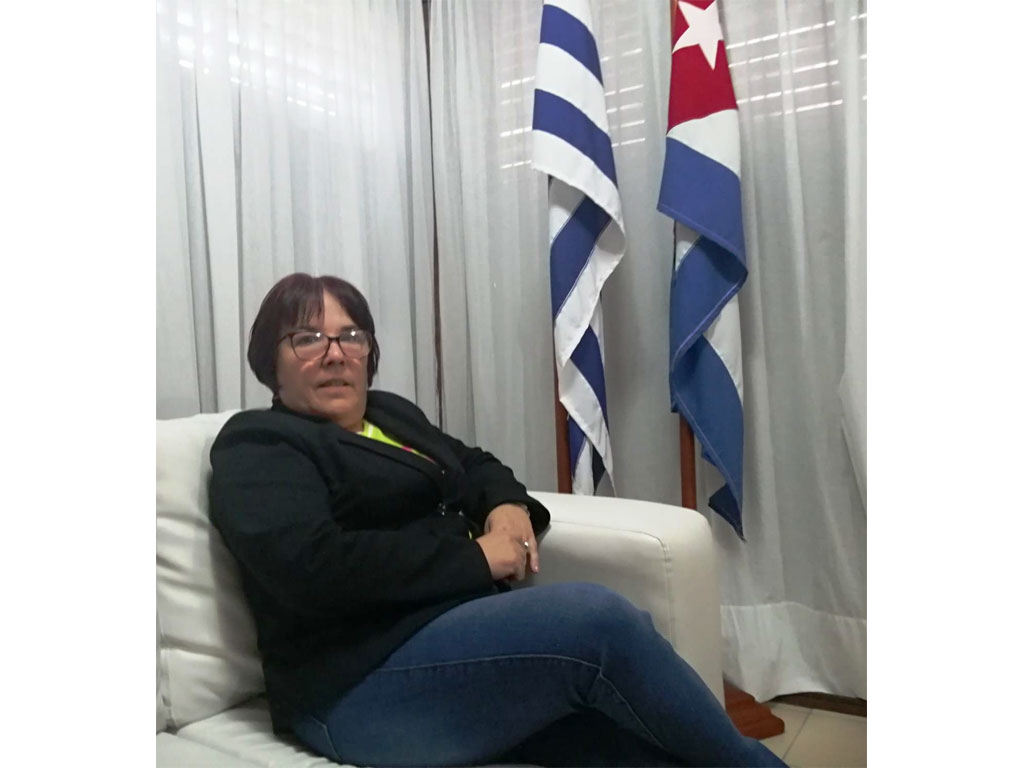
- April 13, 2024
The objective was to exchange with the main tour operators that sell Cuba as a destination, evaluate the current scenario, outline new strategies and promote the International Tourism Fair (FIT Cuba 2024), she said in an interview with Prensa Latina.
There were more than 13 meetings, which we started with the Association of Uruguayan Travel Agents (Audavi), to increase the tourist emissions and promote the novelties that will be presented at the Fair, from May 2 to 5, she detailed.
The forum will take place in the Jardines del Rey key, in the central north of Cuba. Ayala described as important her meeting with Uruguay’s Minister of Tourism, Eduardo Sanguinetti, who will make his first trip to Cuba to participate in the 69th Commission for the Americas of the World Tourism Organization and in FIT Cuba 2024.
jrr/jav/oda/ool
- # Cuba # exchange # meetings # tourism # URUGUAY
Heat wave hits El Salvador
Barbados records four deaths from dengue fever, terrorism against cuba with more us funds, new ai platform for business development presented in cuba.
| Text SMS to 8100 with content PL Receive 4 mesages x 25 cup
© 2016-2021 Prensa Latina Latin American News Agency
Radio – Publications – Videos – News by the minute. All Rigts Reserved.
St. E No 454 , Vedado, Habana, Cuba. Phones: (+53) 7 838 3496, (+53) 7 838 3497, (+53) 7 838 3498, (+53) 7 838 3499 Prensa Latina © 2021 .
Web Site developed by IT Division Prensa Latina.

- Sports Page
- Cayuga County
- Livingston County
- Ontario County
- Schuyler County
- Seneca County
- Steuben County
- Tompkins County
- Wayne County
- Yates County
- Now Streaming

Top Must-See Destinations for Your Cuba Vacation
- April 12, 2024 10:58 AM
Dreaming of a Cuban getaway? You’re in the right place. This Caribbean island is a treasure trove of diverse landscapes, vibrant culture, and rich history. It’s a place where old-world charm meets modern appeal, a destination that’s sure to leave you spellbound.
From the lively streets of Havana to the pristine beaches of Varadero, Cuba, the closest country to Florida , boasts an array of must-see spots. Whether you’re a history buff, a nature enthusiast, or a beach lover, there’s something for everyone. So, buckle up as we take you on a virtual tour of the top must-see destinations for your Cuba vacation.
Havana, Cuba’s capital city, is a throbbing heartbeat of rhythm, color, and soul. It’s a place for history buffs with its abundance of museums and well-preserved Spanish colonial architecture. Must-see sights include the Old Havana, the symbolic El Capitolio, and the Plaza de la Revolución. Try a classic car ride on the famous Malecón!
If you seek a little slice of paradise, you’ll find it in Varadero. Celebrated for its turquoise blue waters and fine white sandy beaches, this resort town is the perfect spot for relaxation. Don’t miss out on the chance to swim in the Satlurno Cave or explore Josone Park.
Trinidad is a well-preserved Spanish colonial settlement that offers a glimpse into 16th-century life. The town’s pastel-colored houses and cobblestone streets are visually stunning. Visit the Plaza Mayor, which is a representation of the town’s rich traditions.
Nestled in the mountains, Vinales is a nature lover’s dream with its breathtaking landscape and unique topography. A stroll through the city reveals traditional wooden houses and tobacco farms where some of the world’s best cigars are made. Make sure to visit the Prehistoric Mural depicting the evolution of life!
Santiago de Cuba
Dubbed as the “Cradle of Cuban Revolution”, Santiago de Cuba is steeped in history and brimming with cultural heritage. This is the place to learn about the revolution that shaped modern Cuba. Don’t forget to explore the heritage buildings of Parque Céspedes, the city’s central square.
Known as the “Pearl of the South”, Cienfuegos offers an architectural show with its neoclassical buildings, a testament to its French influence. Key sights include the Parque José Marti and the majestic Palacio de Valle. The bay here is stunning so a boat tour is recommended!
Tips for an Unforgettable Cuba Vacation
To truly immerse yourself in Cuban culture and get the most out of your vacation, let’s explore three areas: the mouthwatering local cuisine, the vibrant music and dance, and the rich history and culture.
Try the Local Cuisine
One way of understanding a country’s culture is through its food, and Cuba is no exception. Make sure you step out of your comfort zone to taste the traditional ropa vieja stew, tostones (fried plantains) and the classic Cuban sandwich. Wash everything down with a traditional Cuban Mojito or coffee. No matter where you are in Cuba, there are unique, delectable dishes to discover. Each region has its spin on traditional meals, adding to the culinary adventure.
Embrace the Music and Dance
Music and dance in Cuba are part of everyday life. From the lively sounds of the Cuban salsa to the romantic vibes of the bolero, traditional Cuban music is captivating. You can catch impromptu music sessions on the street corners of Havana or at numerous venues across the country. Enroll in a dance class if you wish to acquire some salsa skills or marvel at the professionals in action. You will soon realize that Cubans have rhythm running through their veins.
Explore the History and Culture
The unique history and culture of Cuba are tangible throughout the island. From the colonial architecture to the classic American cars, each offers a tale of the past. Visit museums, like the Museum of the Revolution, to learn about key periods in Cuban history. Wander through the old tobacco factories in Vinales, or explore Ernest Hemingway’s former home.
Did you know? Cuba’s architecture is a fusion of Neo-classical, Art Deco, and Spanish Colonial styles. The intricate designs and meticulous craftsmanship are a sight to behold.
Engaging with the locals is one of the most enriching experiences you can have. They’re passionate, genuine, and love to share stories about their island. Listen with an open heart, and you’ll gain more than just history – you’ll get a real, palpable feeling of what it’s like to live in Cuba.
Planning Your Cuba Itinerary
Planning your Cuba itinerary requires thoughtful consideration. Essential factors include the duration of your stay, your preferred mode of transport, and your choice of accommodation. Remember, immersing yourself in the Cuban culture is the key to an unforgettable vacation.
Duration of Stay
The time you’ll spend in Cuba significantly depends on what you aim to experience. If you’re focused on relaxing on the beach and exploring the city of Havana, a week should suffice. However, if you wish to venture into various regions and truly immerse yourself in the Cuban culture, consider extending your stay to two or three weeks.
Time allocation is also crucial. Havana, known for its vibrant nightlife and historic architecture, might take a couple of days to explore, while cities like Trinidad and Santiago de Cuba demand a few more days for culture and history enthusiasts.
Transportation Options
When it comes to getting around in Cuba, several options are available.
- Renting a Car: This option provides you with the freedom to explore at your own pace. Remember, though, that car rentals in Cuba can be pricey and require advanced booking.
- Taxis or Private Drivers: While more expensive than other options, hiring a taxi or private driver can save you the hassle of navigating through unknown roads.
- Public Transport: For the more adventurous, the local “guaguas” (buses) offer a cheap and authentic way to travel. However, bear in mind that their punctuality and reliability might not be on par with what you’re used to.
Accommodation Choices
Your accommodation plays a big part in defining your Cuban experience.
- Hotels: If you’re after luxury and ease, then opting for a hotel might be your best bet. Cuba’s tourist areas, especially Havana, are home to a number of high-end hotels.
- Casa Particular: These are private-family establishments that offer a unique and personal experience. Staying in a “casa” allows you to engage more with locals and catch a glimpse of day-to-day Cuban life.
Hashing out these details in your itinerary will undoubtedly ease your vacation planning process, leading you a step closer to your dream Cuban getaway.
Experiencing the Authentic Cuba
While diving into your well-crafted itinerary, it’s essential to carve out time to immerse yourself in the authentic Cuba, an experience you won’t find in high-end resorts or crowded tourist hotspots. You’ll uncover its charm through interactions with the locals, visiting traditional markets, and immersing in cultural events. Let’s delve into these enriching experiences.
Visit Local Markets
Exploring Havana’s local markets can be an adventure in itself; rustic and authentic, they are a unique blend of vibrant colors, aromas, and sounds. Mercado de Artesania Plaza de la Catedral and Mercado Agropecuario Egido are two of the city’s most renowned markets to uncover.
The former is a pulsating stall based marketplace, thrumming with artwork, jewelry, clothing, and numerous other handicrafts made by talented local artisans. It’s a perfect spot to snag souvenirs that ooze Cuba’s unique essence.
Mercado Agropecuario Egido contrasts with its fresh produce, giving you the feel of a true Cuban bazaar. Here, you can discover a variety of local fruits, vegetables, and other regional specialties.
Engage with Locals
Beyond engaging locals in marketplaces, making an effort to communicate and interact with them regularly helps you experience the country’s pulse firsthand. Whether it’s asking for directions, chatting up taxi drivers, or engaging in casual conversations at cafes, these encounters will allow you to gain invaluable insights into their way of life.
Additionally, many locals are fluent in English, so language shouldn’t be much of an obstacle. Yet, knowledge of a few basic Spanish phrases can be helpful, as it’s often appreciated by the locals and can make interactions smoother and more enjoyable.
Attend Cultural Events
Lastly, attending cultural events is an excellent way to absorb the vibrant Cuban ethos. Keep an eye on the local listings for music performances, dance shows, or community festivals. Carnaval de Santiago de Cuba is the country’s most famous festival that should be on your bucket list. It’ll provide you an unmatched opportunity to experience Cuba’s exuberant spirit and rich cultural heritage. Catching a live performance at Gran Teatro de La Habana, a renowned symbol of Cuba’s performing arts scene, is a must to conclude a unique cultural immersion.
These are the moments that’ll transform your vacation into a genuine Cuban journey. So go ahead, embrace the vibrancy of Cuba, and create unforgettable memories.
This content is brought to you by the FingerLakes1.com Team. Support our mission by visiting www.patreon.com/fl1 or learn how you send us your local content here .
Cuba Tours & Holidays

Behind the hum of vintage cars, pastel hues of 16th-century buildings and wafts of cigar smoke, the real Cuba shines bright.
A country caught in a cultural time warp, Cuba is a bright snapshot of the mid-20th century; a true feast for the senses. Watch as Cadillacs roll down the coastal boulevards, walk through traditional tobacco plantations in Vinales and see cigar production in full swing , laze on the shores of the Caribbean on some of the world’s whitest sands, and feel the sultry and spicy vibes of salsa as you dance the night away in Havana. With all of this on offer in one of the world’s best climates, what’s stopping you from checking out Cuba’s kaleidoscope of colour and charisma?
Our Cuba trips
Let's create an exclusive trip for your group.
Cuba tour reviews
Filter by rating
Beautiful Cuba
Premium Cuba
Articles of Cuba
The art of Cuban casa hopping
10 things you’ll only know if you’ve travelled in Cuba
The top 7 destinations for travel in March 2024
A teen’s eye view of Intrepid family tours
Why you should say yes when your friend asks you to travel
How to avoid scams and Havana bad time in Cuba
Which style of Latin dance suits you?
I went to Cuba for the cars and cigars, but it’s the people that’ll stay with me
Cuba at a glance
Capital city.
Havana (population 2.1 million)
11.3 million
(GMT-05:00) Bogota, Lima, Quito, Rio Branco
CALLING CODE
Electricity.
Type A (North American/Japanese 2-pin) Type B (American 3-pin)
Learn more about Cuba
Culture and customs.
With Spanish , African and Creole influences, modern Cuba is home to so many cultural components – some of which don’t feel super ‘modern’ at all!
You won’t be surprised that Cubans love music and dancing – with everything from Afro-Cuban rhythms to classic melodies filling the air in clubs, bars, restaurants and on street corners. The modern arts are also alive here, with ballet, contemporary dance and film rising in popularity – so much so, Havana is now home to internationally recognised film, literature and music festivals.
Living in a Communist country means Cubans sometimes go without the luxury items that many Westerners take for granted, with certain foods and consumer goods not available. Despite this, events like birthdays, holidays and marriages are celebrated with gusto, with special meals, music and dance featuring. This love of life is also evident in the street parties, festivals and fiestas that are celebrated throughout the year. Coffee, cigars and rum flow freely, and people dance to the sound of trumpets and guitars in city streets.
Life in the cities and life in rural areas can be quite different, but the pace of living is consistently Cuban – you’re on local time now, so go with the flow.
Experience Cuban culture on our 8 day Beautiful Cuba trip.
History and government
Ancient history.
Before the arrival of the Spanish in 1492, Cuba was home to Mesoamerican cultures, including the indigenous Guanajatabey and Taino people. The Guanajatabey were hunter-gatherers and fishers, and Taino communities also harvested yuca, cotton and tobacco. Spanish colonialist Bartolome de las Casas estimated that Taino populations in Cuba had reached 350,000 by the end of the 15th century.
By then, Christopher Columbus had landed in Cuba and claimed the land for Spain, naming it Isla Juana. In 1511, Diego Velazquez de Cuellar founded Baracoa, the first Spanish settlement in Cuba, and three years later what’s now known as Havana was built.
20th century
In 1902, after periods under Spanish, British and United States rule and involvement in the Spanish–American war, Cuba got its independence. Despite the economy booming, leaders at this time ruled through corruption and control. This was until revolutionary Fidel Castro led a 9000-strong guerrilla army into Havana in 1959, forcing military dictator Fulgencio Batista to flee. Castro became the leader and his brother, Raul, his deputy. What followed was an attempt by the United States to overthrow Castro’s communist rule at the Bay of Pigs, and tension and trade embargoes following the 1962 Cuban Missile Crisis.
Standing alongside Castro as an equally prominent political figure, Che Guevara (although Argentinean) holds a very important place in Cuban history. A revolutionary, author, doctor and military leader, Guevara played a pivotal role in the guerrilla campaign leading up to the Cuban Revolution and the defence of the Bay of Pigs, as well as in diplomatic relations, up until his death in 1967. It’s impossible not to notice the reverence for Guevara when visiting Cuba, with street art, statues and museums dedicated to the man Cubans simply call ‘El Che’ found all over the country.
In April 2011 Fidel Castro was succeeded as the First Secretary of the Communist Party of Cuba by his brother Raul Castro. Cuba’s political relationship with other countries, including its close neighbours, is ever-evolving, with the US recently beginning to ease restrictions on trade, tourism and other industries. But a snapshot of 50 years of isolation remains in the cars, architecture, and culture that is a contemporary Cuban street.
Learn about Cuba's fascinating past on our 15 day Best of Cuba adventure.
Eating and drinking
Cuba may not have culinary fame compared to some of its neighbours, but that doesn’t mean you’ll be missing out on some great food during your time here. Cuba typically doesn’t have access to a wide range of ingredients, so your dining experience may not be as varied as you’d expect from some other nearby destinations. Regardless, there are some Central American favourites that are definitely worth trying. Try out the local cuisine on our 8 day Cuba Highlights tour.
What to eat in Cuba
These small pastries can be either sweet or savoury. Cream cheese, guava and beef are the most popular fillings and make for a cheap, tasty meal on the run. Think empanadas, Cuban style.
Cuban sandwich Otherwise known as a mixto, this sandwich is a simple snack that has made its way north into Florida and has become one of the quintessential images of Cuban food beyond its borders. Ham, pork, cheese, mustard and sometimes salami layered between bread and grilled – what’s not to like?
Ropa vieja Not only is this one of the national dishes of Cuba, but it’s also found all over the Caribbean, in Spain and even the Philippines! It may literally translate to ‘old clothes’, but that’s definitely not what it tastes like – slow-cooked pulled beef with vegetables, usually served with maduros (fried plantains), black beans and rice.
Fritura de maiz These deep-fried cheese and cornmeal fritters are popular street food snacks in Cuba. A great choice for vegetarians; throw a couple of these back and you’ll be feeling the Cuban spirit.
Moros y cristianos
Rice and beans is not just rice and beans. Black beans and white rice are added to a base of peppers, garlic and onion and simmered with herbs, creating a flavourful addition to any meal and served up at virtually every Cuban restaurant you'll come across.
If you're feeling a little bit peckish and are on the go, seek out some tostones. These twice-fried plantain chips are very popular in a lot of Latin American countries and are an easy (and often cheap) snack.
Although flan is knon all around Central and South America as an essential dessert, Cuban flan has a slightly different spin. It's made with evaporated and sweetened condensed milk, giving it a thicker and creamier caramel custard finish than fresh milk varieties. Get ready for a seriously delicioys sugar high.
Coppelia ice cream Line up with locals to savour a sweet scoop from Coppelia ice cream parlour. This Cuban institution serves tried and true flavours like chocolate and vanilla as well as exotic favourites like mango and coconut.
What to drink in Cuba
Rum The tipple of choice in Cuba is rum, obviously. Savour some Havana Club straight up, have it mixed in a minty mojito or sip on a Cuba Libre – rum, cola and lime.
Coffee Cuban coffee is of legendary quality, so be sure to get your caffeine hit with a small but rich cup of liquid gold. Drink it like the locals do, as a cafecito or Cafe Cubano. This type of espresso-style coffee is usually sweetened with raw cane sugar and stirred in with the first drips of espresso to get the best result.
Geography and environment
This island nation sitting in the Caribbean Sea is home to a diverse range of environments: rolling hills to tobacco plantations, beaches and coral reefs to tropical rainforests. With more than 20% of the island covered with natural parks, there's incredible biodiversity, making it a great place for eco-adventures, hiking, snorkelling and diving.
Large cities like Havana evoke a time gone by. Grand buildings dating back to the 1950s exude a fading beauty, which makes for great photographs but can also make daily life quite difficult. Due to a lack of building materials, new housing and infrastructure are rare, making living conditions quite cramped for Cuban city-dwellers. Rural life offers more space and a quieter pace, but reduced access to services. Regardless of where you holiday in Cuba, the people are generally kind and hospitable in both the big cities and small towns.
Wander the magnificent landscapes, both natural and manmade, on our 8 day One Week in Cuba adventure.
Cuba may not be known for its shopping, but look closely and you’ll find lots of unique souvenirs to take home as a reminder of your holiday. Before heading home, check with your local customs officials to ensure that you are able to import some items back into your home country. Australia and New Zealand, for example, have strict quarantine laws. The United States also has restrictions on the amount of tobacco and alcohol that can be brought back from Cuba.
What to buy
Art Cuba has a keen appreciation of the fine arts, so it’s not hard to find unique artworks by up-and-coming local artists being sold at galleries and markets. It also makes for a meaningful memento of your time away.
Cigars The cliche is unsurprisingly true – cigars are everywhere in Cuba. Be sure to buy cigars from authorised sellers, as fakes are common. Purchasing straight from the factory is usually best.
Coffee Cuban coffee is top quality, so stock up before you leave to enjoy a taste of Cuba in the comfort of your own home. Do check, however, if your country of origin allows plant-based materials to pass through quarantine.
Music With such a rich musical heritage, Cuba is a great place to pick up a hand-crafted instrument or, if travelling light, a CD or a local artist’s info to add to your playlist.
Do some serious souvenir shopping on our 9 day Premium Cuba tour.
Festivals and events
Havana international jazz festival.
Local and international artists head to Havana every January to become a part of the happening jazz scene. From the impressive Teatro Nacional de Cuba to the city streets, the sweet sounds of jazz fill the air of Havana for the duration of the festival.
Habanos Cigar Festival
In February, cigar connoisseurs gather to celebrate their love of the best cigar in the world – the Habano. With tastings, visits to plantations and factories, master classes and cigar-rolling contests on offer, this festival will intrigue curious travellers and delight cigar enthusiasts.
Santiago de Cuba Carnival
Watch this historic city come alive in July with street parades full of vibrant costumes, drums and dancing. This epic public celebrations date back to at least the 17th century and are held all around the country, but Santiago de Cuba hosts the biggest, brightest and most traditional of them all.
Similar destinations
Thinking about a trip to Cuba but still browsing other destinations? Or, maybe you've already travelled to Central America and you're looking for somewhere similar? Check out tours to neighbouring locations:
Further reading
For inspiring stories to prepare you for your holiday in Cuba, check out these books:
- Our Man in Havana – Graham Greene
- Before Night Falls – Reinaldo Arenas
- Broken Paradise – Cecilia Samartin
- Take Me with You – Carlos Frias
- Adios, Havana – Andrew J Rodriguez
- Blessed by Thunder: Memoir of a Cuban Girlhood – Flor Fernandez Barrios
- Conversations with Cuba – C Peter Ripley
- Havana Fever – Leonardo Padura
- The Mambo Kings Play Songs of Love – Oscar Hijuelos
Cuba travel FAQs
Do i need a covid-19 vaccine to join an intrepid trip.
Trips from 1 January 2023 onwards
From 1 January 2023, Intrepid will no longer require travellers to provide proof of vaccination against COVID-19 (excluding all Polar trips and select adventure cruises).
However, we continue to strongly recommend that all Intrepid travellers and leaders get vaccinated to protect themselves and others.
Specific proof of testing or vaccination may still be required by your destination or airline. Please ensure you check travel and entry requirements carefully.
When is the best time to visit Cuba?
Cuba's subtropical climate is ideal for exploration, with most places catching the cool trade winds that blow in from the coast, providing pleasant year-round temperatures. June, July and August are usually the hottest months – the dry season runs from November to April and the wet season from May to October. Even in the rainy season, downpours are short and shouldn't impede travel plans. Tropical storms and hurricanes are more prevalent in September and October but rarely cause problems for travellers.
Do I need a visa to travel to Cuba?
Tourists of most nationalities require a 'Tourist Card' which is similar to a tourist visa. These can be obtained through travel agents in your home country, or directly from Cuban embassies and consulates. Depending on the airline you are travelling with to Cuba, you may also be able to purchase the tourist card at the airport from the airline on the day of your departure – please check with your airline for more information.
If you are a US citizen, American permanent resident, or hold any type of American Visa and are considering travelling to Cuba, please refer to the US Department of State Bureau of Consular Affairs website – travel.state.gov – for the latest advice.
We recommend travelling to Cuba via Canada, Europe, and South or Central America. Travellers who have been to Cuba are ineligible to participate in the ESTA Visa Wavier Program and must apply for a tourist visa to enter or transit via the United States.
Remember to check the entry requirements for any destinations you will travel or transit through both to and from Cuba.
The page is for general information only and may be subject to change. It is your responsibility to obtain relevant visa and travel information required for entry, departure and travel to each country or region you visit on your trip. You should confirm these with the relevant embassies and/or consulates.
Last updated: 14/11/2023
Is tipping customary in Cuba?
As most Cubans live modest lifestyles, leaving a tip for good service is a great idea and welcomed.
There is almost always free entertainment in bars and restaurants; the musicians and singers are usually not paid by the venue, so we encourage you to tip when you have enjoyed the performance. Tour leaders, restaurant workers, hotel porters, cleaning staff and taxi drivers will appreciate a small sum – but be sure to tip in Cuban pesos as foreign currency isn’t easily exchanged in Cuba.
It’s important to carry around small denominations of currency to leave tips during your holiday, so you can tip an amount you feel comfortable with.
What is the internet access like in Cuba?
Internet access isn't widespread throughout Cuba, but availability is improving. The internet can sometimes be accessed from government departments and larger hotels, and main squares in many cities now have wi-fi accessibility. You will need to purchase an internet card from certain hotels and outlets to gain access in any location, including in public areas.
Please note that although connectivity is improving, the connection may still be slow, some websites may be censored, and the cost is typically quite high.
Can I use my mobile phone while in Cuba?
Your mobile phone may or may not work while in Cuba, depending on what type of phone you have. Before leaving your home country, ensure roaming is activated with your provider, but be aware that your phone may not get reception due to Cuba having the lowest mobile phone network penetration in Latin America.
If you intend to activate global roaming while in Cuba, be sure to check with your service provider to find out about any fees you may incur when using this option, as sometimes this can be expensive.
What are the toilets like in Cuba?
Public toilets are rare in Cuba, but western-style flushable toilets are available in hotels, bars and restaurants. Bringing your own toilet paper and hand soap or hand sanitiser is recommended as often these are not provided. Due to import restrictions, toilet seats can be considered a luxury and may be missing from some facilities.
What will it cost for a...?
Cuba's unit of currency is the peso (CUP). Here's what you can expect to pay for a:
- Can of soft drink or bottle of water = 1-2 CUP
- Cup of coffee = 1.50 CUP
- Cocktail = 2-5 CUP
- Meal in a nice restaurant = 120+ CUP
- One hour of wi-fi = 25 CUP
Can I drink the water in Cuba?
It's not advisable to drink water from the tap in Cuba. For environmental reasons, try to avoid buying bottled water. Fill a reusable bottle or canteen with filtered water if you can – your group leader will provide larger and less disposable water containers for refills on private transport days when they have the resources available. It's also best to avoid ice in drinks and to peel fruit and vegetables rather than eating washed or unwashed produce.
Are credit cards widely accepted in Cuba?
Some credit cards are accepted in Cuba (Visa and Mastercard are usually more widely accepted), although some cards linked to US banking institutions won't be accepted. Debit cards (even Visa debit) generally have problems working. We recommend you bring multiple cards from different banks to be sure you have access to funds. Ensure you also have enough cash and other forms of payment, as credit card facilities may not always be available.
What is ATM access like in Cuba?
ATMs are accessible in large cities like Havana and Santiago de Cuba but are rare and almost non-existent in other parts of Cuba. Ensure you have other payment options available in case you cannot access an ATM while travelling.
What is the weather like in Cuba?
Cuba enjoys Caribbean vibes all year round, and sits below the Tropic of Cancer, so you’ll enjoy a tropical climate with north-easterly trade winds that blow year-round.
May to October is usually considered the wet season, with higher maximum temperatures each day (around 32°C) and more sunlight each day, averaging 10 hours. September and October is hurricane season in the region, and this time of year is usually hot and overcast, with a higher chance of rainfall.
November to April is usually the drier season in Cuba, with maximum temperatures sitting around 26°C, and an average of 8 hours of sunlight each day. The winter months are clearer, slightly more humid and more comfortable than summer.
What public holidays are celebrated in Cuba ?
- 1 Jan: Liberation Day
- 2 Jan: Victory of the Armed Forces
- 1 May: Labour Day (International Workers' Day/May Day)
- 25–27 Jul: National Revolutionary Festival
- 10 Oct: Independence Day
- 25 Dec: Christmas Day
- 31 Dec: Year End Celebration
Other dates to look out for:
- 28 Jan: Anniversary of Jose Marti’s birth
- 19 Apr: Bay of Pigs Victory
- 8 Oct: Anniversary of Che Guevara’s death
- 28 Oct: Anniversary of Camila Cienfuegos’s death
- 7 Dec: Anniversary of Antonio Maceo’s death
Please note, Cuba public holidays may vary.
Is Cuba safe for LGBTQIA+ travellers?
Cuba has made some significant steps in recent years to ensure LGBTQIA+ rights in the country. Homosexuality is legal and accepted in Cuba, and there are some anti-discrimination laws in place for employment, service provisions and gender identity. However, same-sex marriage recognition is still pending, and stigma still remains in some parts of society, especially in rural areas.
The Cuban National Center for Sex Education (CENESEX) works to support the LGBTQIA+ community in Cuba and hosts rallies to educate and advocate.
For more detailed and up-to-date advice, we recommend visiting Equaldex or ILGA before you travel.
If you are travelling solo on an Intrepid group tour, you will share accommodation with a passenger of the same gender as per your passport information. If you don’t identify with the gender assigned on your passport, please let us know at the time of booking and we’ll arrange the rooming configuration accordingly. A single supplement is available on some tours for travellers who do not wish to share a room.
Last edited: 14/11/2023
Is Cuba accessible for travellers with disabilities?
Intrepid is committed to making travel widely accessible, regardless of ability or disability. That’s why we do our best to help as many people see the world as possible, regardless of any physical or mental limitations they might have. We’re always happy to talk to travellers with disabilities and see if we can help guide them towards the most suitable itinerary for their needs and, where possible, make reasonable adjustments to our itineraries.
As Cuba has not had the same infrastructure development as other countries, you may find some mobility challenges when travelling. Havana’s streets are often crowded, and sidewalks can at times be rugged or even nonexistent. This is the same with other cities and towns around the country. Also, a lot of public transportation isn’t geared toward travellers who use a wheelchair, so private travel may be the only option to get around.
If you do live with a visual, hearing or other impairment, let your booking agent or group leader know early on so they’re aware and suitable arrangements can be made. As a general rule, knowing some common words in the local language, carrying a written itinerary with you and taking to the streets in a group, rather than solo, can help make your travel experience the best it can be.
Do I need to purchase travel insurance before travelling?
Absolutely. All passengers travelling with Intrepid are required to purchase travel insurance before the start of their trip. Your travel insurance details will be recorded by your leader on the first day of the trip. Due to the varying nature, availability and cost of health care around the world, travel insurance is very much an essential and necessary part of every journey.
For more information on insurance, please go to: Travel Insurance
How do I stay safe and healthy while travelling?
Intrepid takes the health and safety of its travellers seriously and takes every measure to ensure that trips are safe, fun and enjoyable for everyone. We recommend that all travellers check with their government or national travel advisory organisation for the latest information before departure:
From Australia?
Go to: Smart Traveller
From Canada?
Go to: Canada Travel Information
From the UK?
Go to: UK Foreign Travel Advice
From New Zealand?
Go to: Safe Travel
From the US?
Go to: US Department of State
The World Health Organisation also provides useful health information.
Does my trip support The Intrepid Foundation?
Yes, all Intrepid trips support the Intrepid Foundation. Trips to this country directly support our global Intrepid Foundation partners Eden Reforestation Projects and World Bicycle Relief. Intrepid will double the impact by dollar-matching all post-trip donations made to The Intrepid Foundation.
Eden Reforestation Projects
Eden Reforestation Projects are helping to mitigate climate change by restoring forests worldwide; they also hire locally and create job opportunities within vulnerable communities. Donations from our trips support restoration across planting sites in 10 countries around the globe. Find out more or make a donation World Bicycle Relief
World Bicycle Relief provides people in low-income communities with bicycles to mobilise school kids, health workers, and farmers in far-out areas – giving them access to vital education, healthcare, and income. Donations help provide Buffalo Bicycles – specifically designed to withstand the rugged terrain and harsh environment of rural regions – to those who need them most. Find out more or make a donation
Cuba: desperate conditions, questionable leadership

Seven hours from Havana, a glimpse of what country’s people are living with
Micho Spring’s April 1 op-ed about the humanitarian and economic crisis in Cuba mirrored our recent experience, particularly in cities beyond Havana ( “In Cuba, hunger and open desperation” ). We arrived in Camaguey, a seven-hour drive east, to a privately owned hostel, which, like the rest of the city, had no electricity from 6 a.m. to 8 p.m. While we and our group of women were inconvenienced by the blackouts, people living in Camaguey had been unable to work; kids weren’t attending school; there was no refrigeration of perishables. As tourists “supporting the Cuban people” (what our visa indicated), we visited a dance school where the noxious fumes of a generator that allowed fans to run engulfed the space.
In this small city whose buildings, squares, and serpentine streets have earned it a historic designation from UNESCO, it’s easy to identify people in the tourist trade (i.e., receiving US currency), whether they’re pedaling the bicycle taxis, working in private restaurants, or guiding tours — they look robust and healthy. Others on the streets, children and adults alike, were clearly underfed. Our guide distributed the leftovers from our meals to the quiet figures on street curbs in this deteriorating city.
With rolling blackouts much more frequent and prolonged outside of Havana, fewer tourists venture beyond the capital. Even in Havana, we were cautioned to walk in the middle of the small streets, since crumbling masonry from surrounding buildings is commonplace.
The Biden administration could do more to promote the positive power of capitalism and democracy to support the Cuban people. Reversing Donald Trump’s punitive policies would go a long way toward making Cubans’ economy and society work for them and, as Spring pointed out, stemming the flow of desperate people north to the US border.
Nora Huvelle
Annie Childs
Advertisement
Cubans are demanding food, electricity, and freedom — for good reasons
In her op-ed “In Cuba, hunger and open desperation,” Micho Spring failed to adequately portray Cubans’ salient demands for food, electricity, and freedom: freedom, because of surveillance and repressive police tactics ; food, because Cuba has failed to fully enable privatization of agricultural production; and electricity, because of unbearable daily blackouts due to malfunctioning power plants and fuel shortages (Spring cites “the collapse of the Venezuelan economy” as an additional factor).
She claims that small and mid-size enterprises, or MIPYMES, are the new private-sector solution to the country’s economic crisis. But there’s no private sector as such in Cuba, only emerging small enterprises that the regime is allowing former officials, relatives of the military, and proven loyal supporters to operate. Biden should exercise caution with investments in MIPYMES. These enterprises won’t alleviate the crisis, nor curtail the exodus of Cubans north. Only regime change will free Cuba’s citizens from hunger and desperation.
As for rescinding the State Sponsor of Terror designation, which Spring advocates: Where does a country that defends Hamas’s Oct. 7 massacre of Israelis belong? Where, a country from which mercenaries leave to join Russia’s war against Ukraine? Where, a beacon of solidarity with Hamas and Hezbollah? Where, an enemy of Israel and the West? Where, a country harboring fugitives from US justice?
The United States should keep Cuba on that list.
Ileana Fuentes

Globe Opinion

Travel Off Path
These Are The Top 5 Best Cultural Destinations For 2024 According To Tripadvisor
Posted: March 23, 2024 | Last updated: March 23, 2024
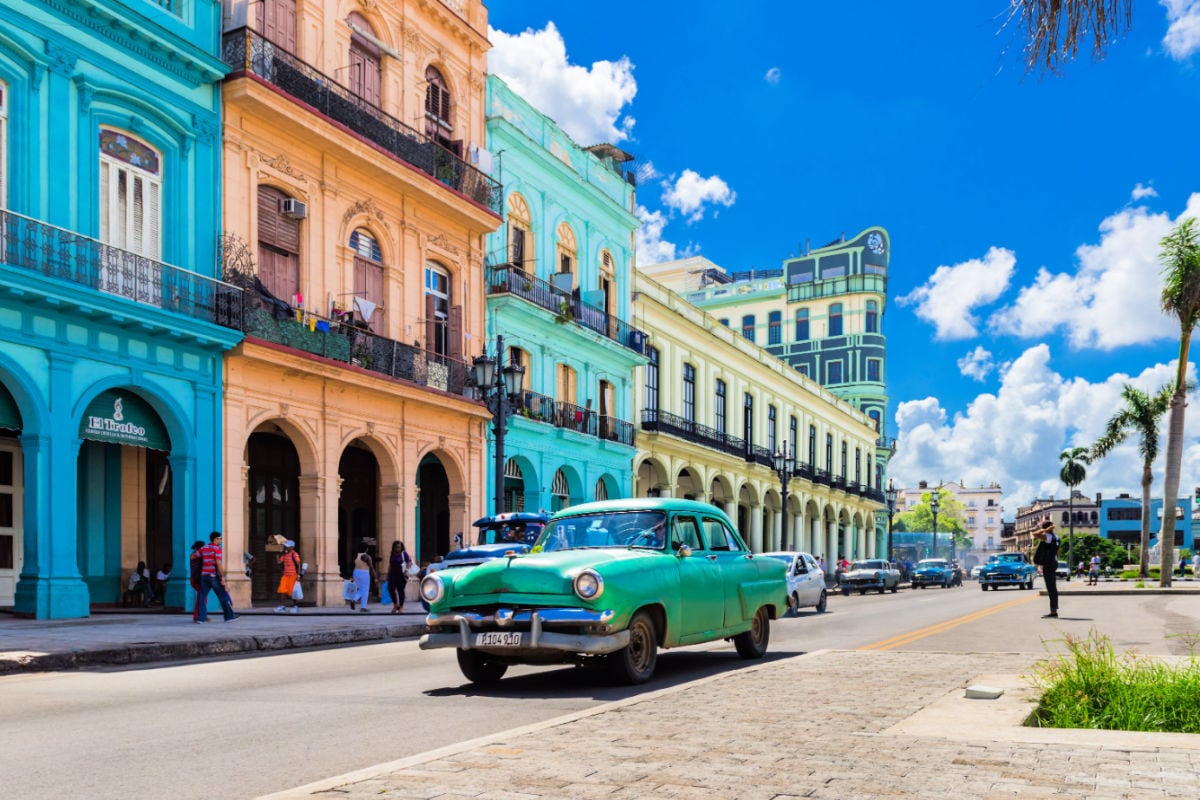
Athens, Greece

Fes, Morocco
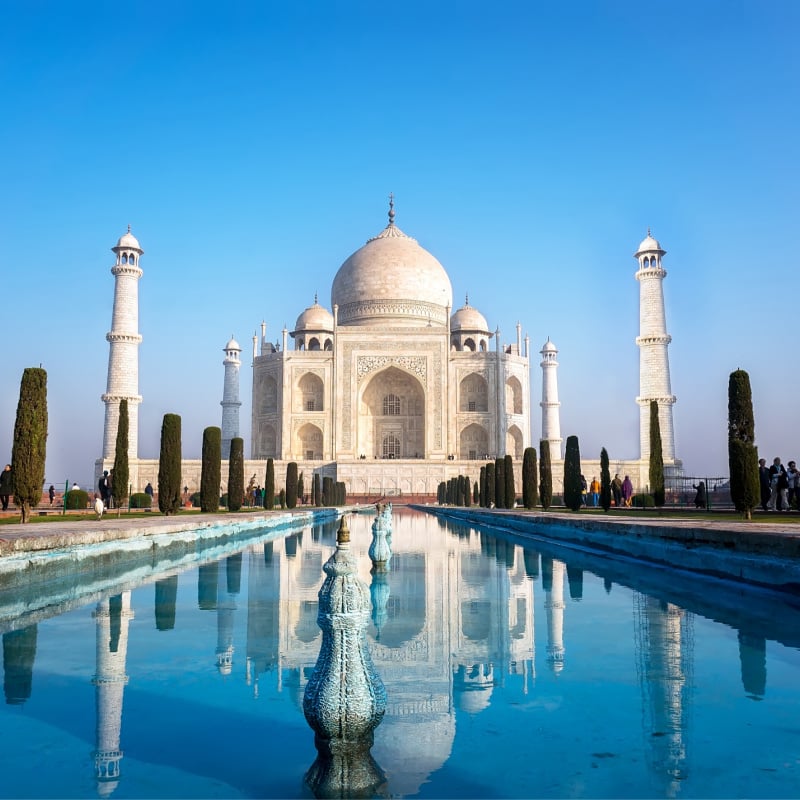
Agra, India
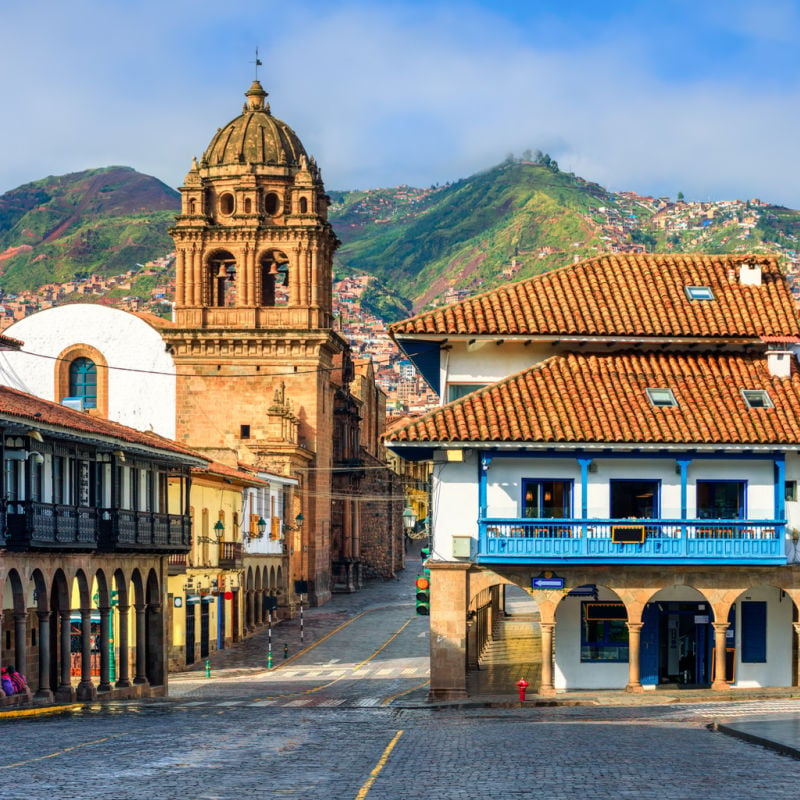
Cusco, Peru
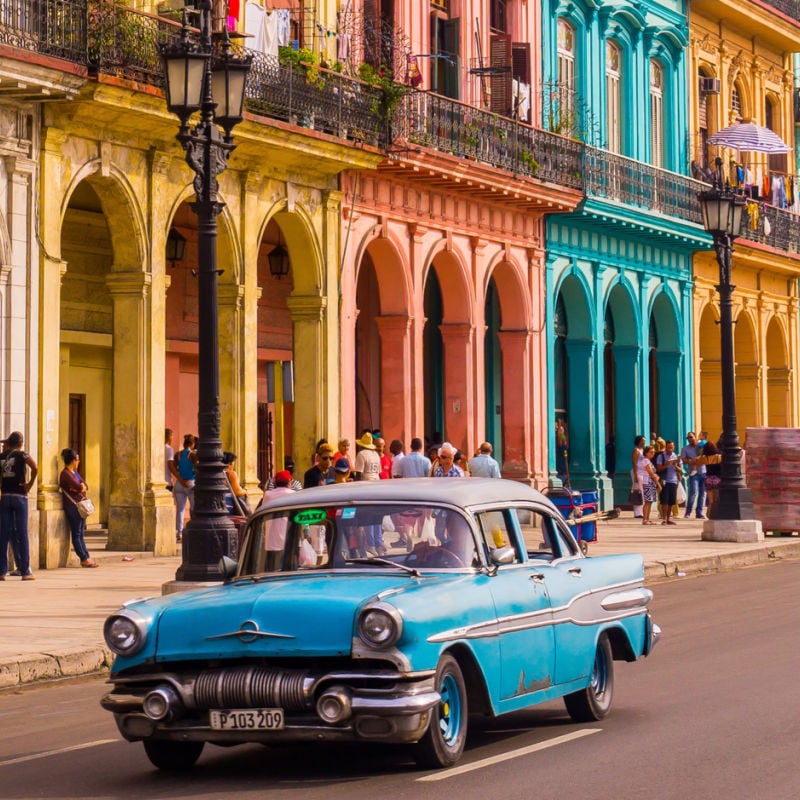
More for You
Caitlin Clark gets fancy and dazzles in a red dress to collect Wooden Award
World's oldest conjoined twins, Lori and George Schappell, die at age 62
Photos show how 700 of Titanic's 2,200 passengers were saved by the Carpathia when the ship sank 112 years ago
Disney Cites First Amendment In Gina Carano Termination Suit
Disney changes theme park rules after visitors pretend to be disabled to avoid queues
Los Angeles deputy gangs allegedly plaguing sheriff's department
'My heart is broken': Olympic triple jump champion Rojas out of Paris Games
Florida Removes 1.4 Million People from Health Care Plan
Explained: What The Boeing Whistleblower Claims Is Wrong With The 787 Dreamliner And 777
Keanu Reeves' Ballerina Cameo as John Wick Revealed at CinemaCon Screening
9-1-1's Ryan Guzman Talks Eddie and Christopher's Season 7 Shifting Dynamic
Top 30 Most Difficult Songs to Sing
"That is like saying can Prince play the guitar" - Kenny Smith defends Michael Jordan from recent criticism
Parents who raise successful, resilient kids never do these 5 things, experts say
Excellent used cars to buy today from just $1500
The Talk Canceled After 15 Seasons
Police took possession of E. Jean Carroll's unregistered gun after her testimony in Trump defamation trial
25 legendary musicians you might not know were LGBTQ+
Workers at Elon Musk’s Boring Co. accidentally dug too close to a supporting column of the Las Vegas monorail last year, forcing officials to briefly halt service
These Are The World’s Best Nude Beaches

Former US ambassador sentenced to 15 years in prison for serving as secret agent for Cuba
The Associated Press
April 12, 2024, 6:06 PM
- Share This:
- share on facebook
- share on threads
- share on linkedin
- share on email
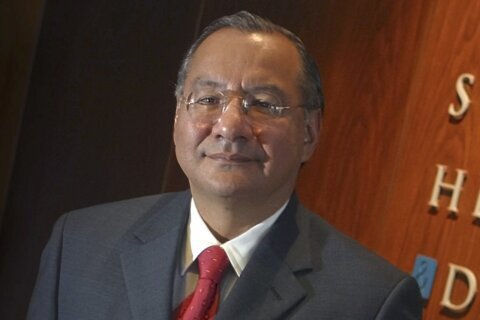
MIAMI (AP) — A former career U.S. diplomat was sentenced Friday to 15 years in federal prison after admitting he worked for decades as a secret agent for communist Cuba, a plea agreement that leaves many unanswered questions about a betrayal that stunned the U.S. foreign service.
Manuel Rocha, 73, will also pay a $500,000 fine and cooperate with authorities after pleading guilty to conspiring to act as an agent of a foreign government. In exchange, prosecutors dismissed more than a dozen other counts, including wire fraud and making false statements.
“Your actions were a direct attack to our democracy and the safety of our citizens,” U.S. District Court Judge Beth Bloom told Rocha.
Rocha, dressed in a beige jail uniform, asked his friends and family for forgiveness. “I take full responsibility and accept the penalty,” he said.
The sentencing capped an exceptionally swift criminal case and averted a trial that would have shed new light on what, exactly, Rocha did to help Cuba even as he worked for two decades for the U.S. State Department.
Prosecutors said those details remain classified and would not even tell Bloom when the government determined Rocha was spying for Cuba.
Federal authorities have been conducting a confidential damage assessment that could take years to complete. The State Department said Friday it would continue working with the intelligence community “to fully assess the foreign policy and national security implications of these charges.”
Rocha’s sentence came less than six months after his shocking arrest at his Miami home on allegations he engaged in “clandestine activity” on Cuba’s behalf since at least 1981, the year he joined the U.S. foreign service.
The case underscored the sophistication of Cuba’s intelligence services, which have managed other damaging penetrations into high levels of U.S. government. Rocha’s double-crossing went undetected for years, prosecutors said, as the Ivy League-educated diplomat secretly met with Cuban operatives and provided false information to U.S. officials about his contacts.
But a recent Associated Press investigation found red flags overlooked along the way, including a warning that one longtime CIA operative received nearly two decades ago that Rocha was working as a double agent. Separate intelligence revealed the CIA had been aware as early as 1987 that Cuban leader Fidel Castro had a “super mole” burrowed deep inside the U.S. government, and some officials suspected it could have been Rocha, the AP reported.
Rocha’s prestigious career included stints as ambassador to Bolivia and top posts in Argentina, Mexico, the White House and the U.S. Interests Section in Havana.
In 1973, the year he graduated from Yale, Rocha traveled to Chile, where prosecutors say he became a “great friend” of Cuba’s intelligence agency, the General Directorate of Intelligence, or DGI.
Rocha’s post-government career included time as a special adviser to the commander of the U.S. Southern Command and, more recently, as a tough-talking Donald Trump supporter and Cuba hardliner, a persona that friends and prosecutors said Rocha adopted to hide his true allegiances.
Among the unanswered questions is what prompted the FBI to open its investigation into Rocha so many years after he retired from the foreign service.
Rocha incriminated himself in a series of secretly recorded conversations with an undercover agent posing as a Cuban intelligence operative. The agent initially reached out to Rocha on WhatsApp, calling himself “Miguel” and saying he had a message “from your friends in Havana.”
Rocha praised Castro as “Comandante” in the conversations, branded the U.S. the “enemy” and boasted about his service for more than 40 years as a Cuban mole in the heart of U.S. foreign policy circles, prosecutors said in court records.
“What we have done … it’s enormous … more than a Grand Slam,” Rocha was quoted as saying.
Even before Friday’s sentencing, the plea agreement drew criticism in Miami’s Cuban exile community, with some legal observers worrying Rocha would be treated too leniently.
“Any sentence that allows him to see the light of day again would not be justice,” said Carlos Trujillo, a Miami attorney who served as U.S. Ambassador to the Organization of American States during the Trump administration. “He’s a spy for a foreign adversary who put American lives at risk.”
“As a Cuban I cannot forgive him,” added Isel Rodriguez, a 55-year-old Cuban-American woman who stood outside the federal courthouse Friday with a group of demonstrators waving American flags. “I feel completely betrayed.”
Mustian reported from Natchitoches, Louisiana.
Copyright © 2024 The Associated Press. All rights reserved. This material may not be published, broadcast, written or redistributed.
Related News
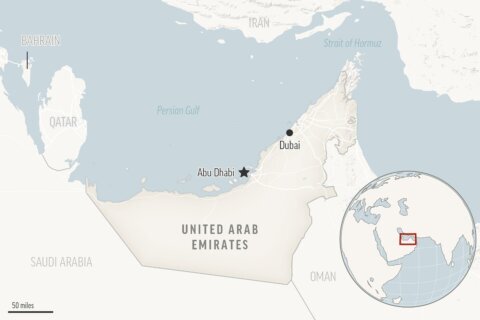
Iran’s Revolutionary Guard seizes a container ship near Strait of Hormuz amid tensions with Israel

Nearing 50 Supreme Court arguments in, lawyer Lisa Blatt keeps winning

Search continues in Maine as officer is charged with lying about taking missing person to hospital
Recommended.

'I don't take it for granted': DC-native Rajah Caruth makes his mark in NASCAR’s Truck Series

Federal grant seeks to address flooding problem in northern Virginia

'Some-bunny' have room for a rabbit? Loudoun Co. animal shelter looking to home over 40 new ones
Related categories:.
Cuba says drug use on the rise, especially among youth
- Medium Text
The Reuters Daily Briefing newsletter provides all the news you need to start your day. Sign up here.
Reporting by Nelson Acosta Editing by Dave Sherwood
Our Standards: The Thomson Reuters Trust Principles. New Tab , opens new tab
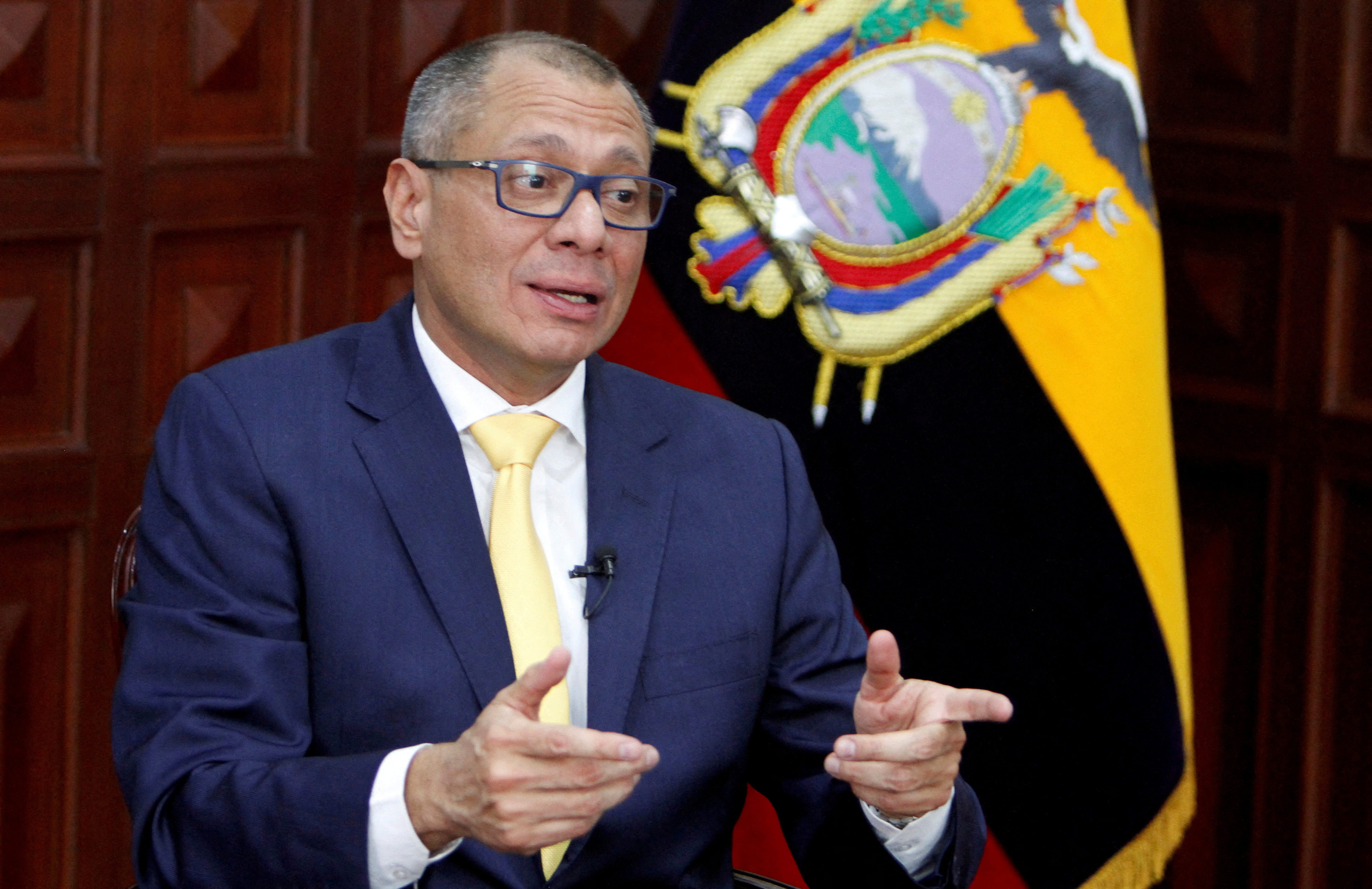
Mexican public health officials are sounding an alarm after a study discovered the presence of animal tranquilizer Xylazine in opioids in cities on the country's northwest border with the United States.
As Mexican banda music scales new heights globally, a festering dispute in the genre's traditional home turf pits frustrated hotel owners against the strolling ensembles that play songs on the beach at all hours of the day and night.
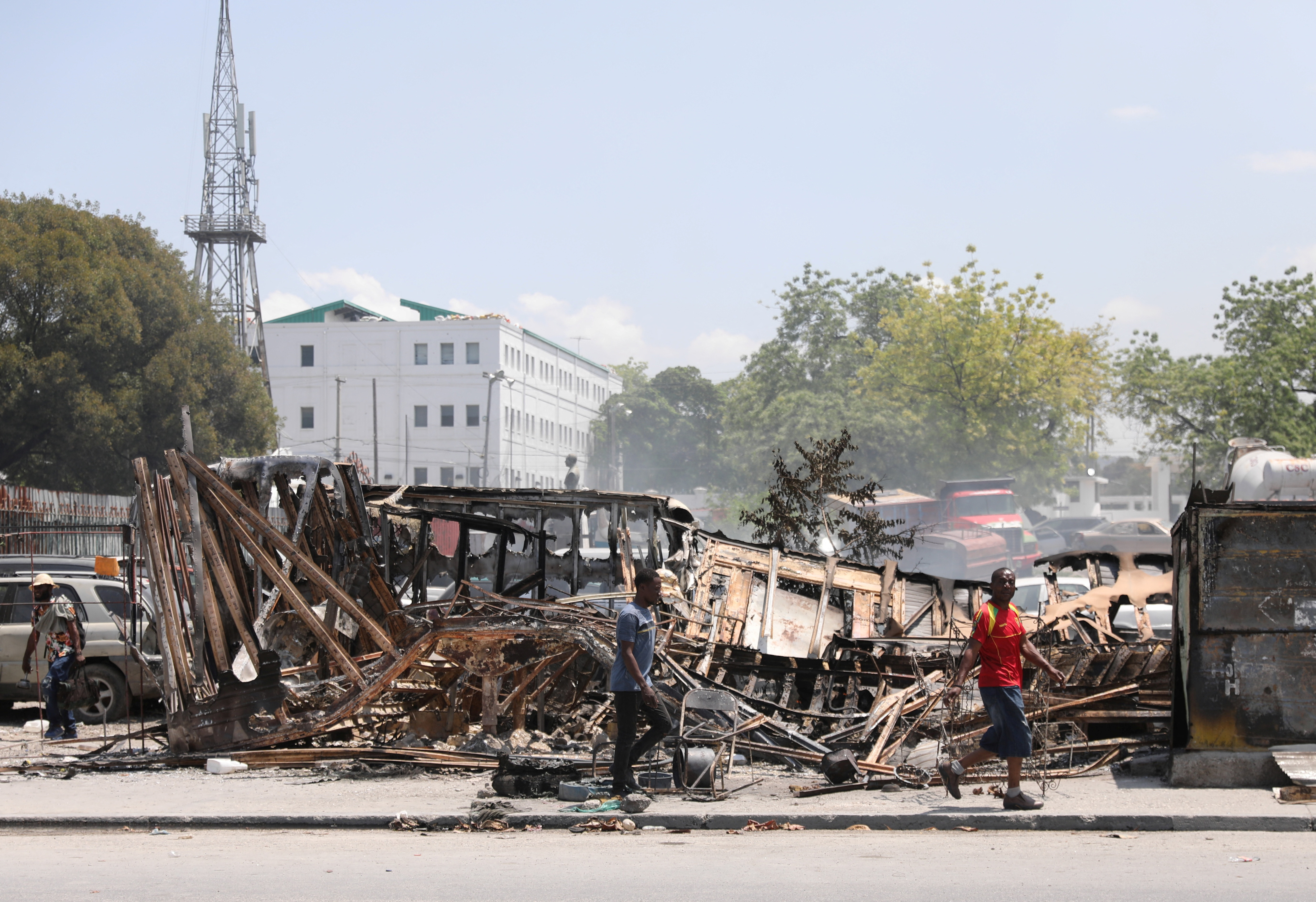
World Chevron

US Assistant Secretary of State Kritenbrink to visit China April 14-16
U.S. Assistant Secretary of State for East Asian and Pacific Affairs Daniel Kritenbrink will travel to China April 14-16, the State Department said on Saturday.
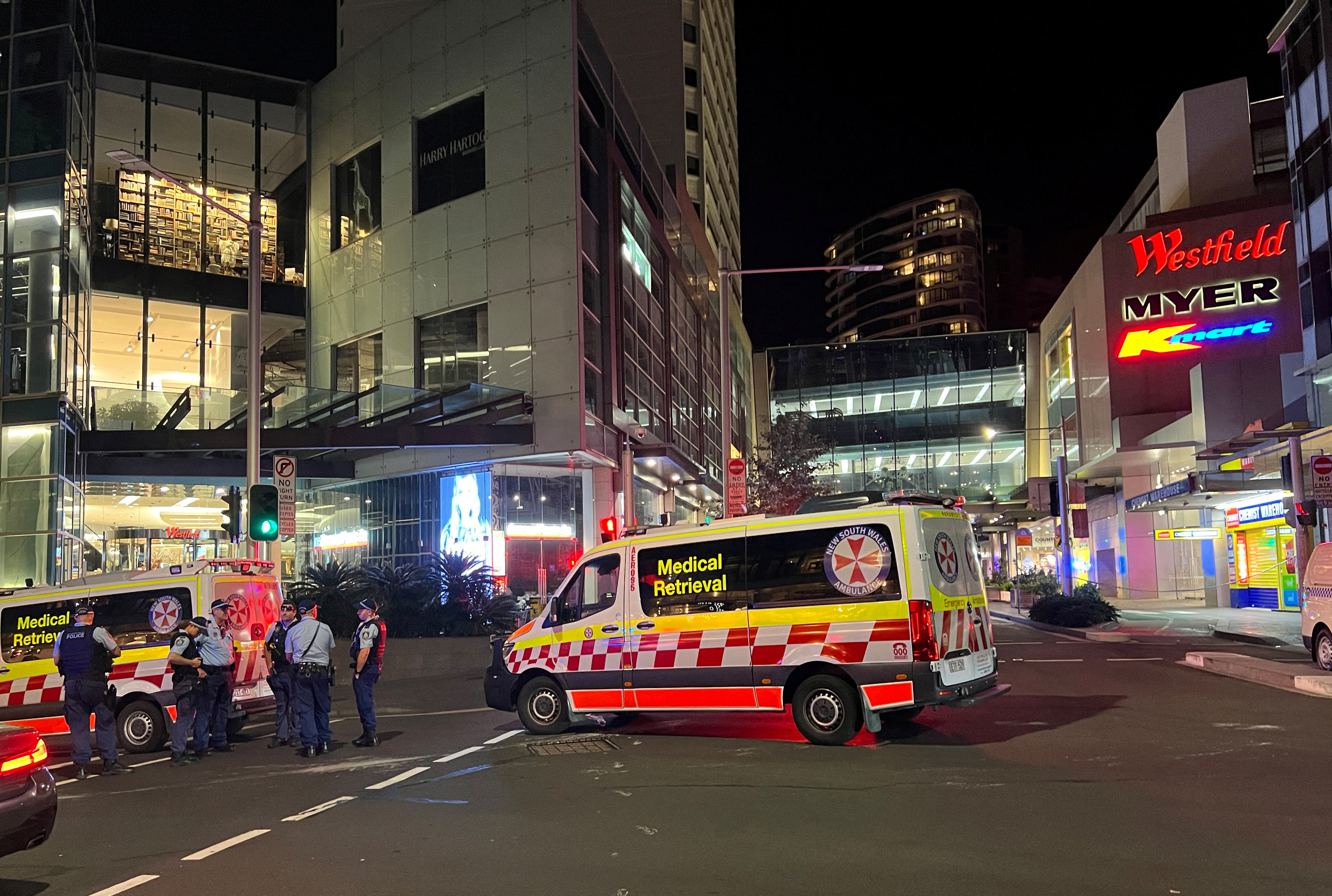
Suspected Islamist rebels killed at least 10 civilians in an attack on Friday near the city of Beni in eastern Democratic Republic of Congo, local authorities and a U.N. source said.

IMAGES
VIDEO
COMMENTS
You must go through it to live the richness of the culture and, up to a certain extent, the hassles of their daily life. 45. Reconsider traveling to Cuba with a drone. You can travel to Cuba with a drone, but odds are it will be confiscated at customs - or you will be exposed to HOURS of questioning.
Our ULTIMATE guide to travel to Cuba helps demystify Cuba travel. Written by locals, we share the best things to do in Cuba for your perfect trip. ... Ultimate Guide to Travel to Cuba (2024 Update) By Carley Rojas Avila December 22, 2023 December 22, 2023. Share on X (Twitter) ...
Hola Cuba. Roni · Traveled March 2024. Hola Cuba's 9 day trip was really 7 as the first day began with orientation and dinner and the last day ended after breakfast. The tour leader and local guides provided the participants with a wide variety of activities and experiences to help understand the culture and history of Cuba.
Tour Republic January 29, 2024. If you are a US citizen, you can still visit Cuba in 2024. However, unlike your neighbors traveling from Canada, you will be subject to specific regulations from the US government. For example, doing "tourism," like staying at a resort on a Cuban beach, isn't allowed. Your trip must fall into one of 12 ...
2024 Legal Cuba travel for Americans. Since 1997, we've distilled ever-changing, often mind-boggling US-Cuba travel regulations. We've kept Americans informed about Cuba travel openings by presidents Clinton, Obama and Biden, and clawbacks under G.W. Bush and brutal clampdowns by Trump.
2. Fill out your passenger information in advance. Cuba uses an online form called D'Viajeros to gather traveler information, including immigration and health data, in advance of travel. Fill out the form digitally up to 72 hours before your arrival in Cuba. 3.
Best Time to Travel to Cuba. The months of October through April are the ideal times to visit Cuba. The island enjoys a fantastic Caribbean climate with a significant period of pleasantness where days are warm and sunny and little rain falls, especially in Havana and along the coast. The nicest weather on the island is found along the beaches ...
The pandemic combined with a recently tightened US embargo has hit the already weakened economy particularly hard. Tourism accounts for over 10% of Cuba's GDP and Canadians make up nearly one-third of all tourists. We were enthusiastically welcomed with smiles, music, dance, and rum cocktails.
Call 1.406.541.2677. Start Planning My Trip. Discover Cuba in 2024 on one of these trips hand selected by the travel experts at Adventure Life. Select any of the below 5 top-rated trips where you will explore Havana, Cienfuegos, Trinidad, Pinar del Río, and Viñales with an exceptional bilingual guide on a small group or customizable private tour.
The Ultimate Cuba Travel Guide 2024. These days it is relatively easy for Americans to obtain a Cuba travel guide and venture to this once-forbidden Caribbean island. For most, it's no more difficult than planning a trip to any other foreign country. In fact, the process may be easier now for Cuba than for some countries that require a visa.
Visiting Cuba on or after 12 January 2021 as a non-US citizen, means that you will be blocked from automatic US travel by the provisions of the Terrorist Travel Prevention Act 2015. You will need to apply for a substantive visa, pay for the visa and you will need to meet all of the visa requirements.
Classic Cuba Tour Overview. This exciting, eight-day journey to Cuba's most famous cities will add the brushstrokes to the unfinished canvas of your vision of Cuba. Your experience begins in the bustling harbor city of Havana and continues on through Playa Larga and Playa Girón before settling into the artistic enclaves and colonial treasures ...
Cuba Tours & Travel Packages 2024/2025 Our 10 most popular Cuba trips. Compare tour itineraries from 80 tour companies. 98 reviews. 4.7/5 avg rating. ... However, the OFAC (Office of Foreign Asset Control) does permit American travel to Cuba, provided it fits within 1 of 12 general categories. One of the most popular of these is 'educational ...
A new digital currency called the MLC has been introduced. Meanwhile, Cuba's cash currency, the Cuban Peso, is 'officially' stable at an exchange rate of $1 USD to 24 Cuban pesos. Yet currently (2024), Cuban government banks are buying foreign currency at a rate of 110 Cuban Pesos for $1 USD.
Cuba Tour. 5 - Excellent. Based on 222 customer reviews. Our first to Cuba. 5 - Excellent. Richard Owens. "The accommodations were great. The owner and his family did not live there, but came by each morning to have breakfast for us and help us get started each day. Nicer than the pictures online.
Getting ready to visit Cuba in 2024. Mysterious, exotic, and confounding. Cuba's secrets are revealed during your island stay. Preparing for your Cuba trip is like visiting most other countries, with some notable exceptions. This guide will reduce stress and make your Cuba trip easy and fun.
American Travel to Cuba. The short answer to the question "can Americans travel to Cuba" is YES, American citizens can travel to Cuba. Non-U.S. citizens are allowed to travel to Cuba via the United States as well. American citizens can fly from the United States directly to Cuba, travel independently (no need for a group trip or guided trip ...
Cuba cultural holidays, 15 days. From US $2525. 15 days ex flights. Fun and legal way to experience Cuba's diversity. Small group 2024: 8 Apr, 1 Jul, 12 Aug, 9 Sep, 2 Oct, 18 Nov, 9 Dec, 23 Dec, 2025: 13 Jan, 10 Feb, 10 Mar, 14 Apr, 12 May, 16 Jun, 14 Jul, 11 Aug, 15 Sep, 20 Oct, 24 Nov, 22 Dec. Read 2 reviews.
Reality: The reality I saw during my 2024 trip to Cuba this was not the case, in a truly surprising way. Because of Cuba's economic state, any tourist is a good tourist. I encountered tourists from Canada, Brazil, Colombia, Peru, Vietnam, Mexico, and more. Tourists from the U.S. are treated the same as the rest.
Cuba is a multi-destination in itself since it has various options for ecotourism, sun and beach tourism, cultural, historical, adventure, nature, health, convention, country, nautical, etc. In Tripadvisor's Travelers' Choice Awards Best of the Best 2024, Cuba was ranked the first cultural destination in the world and the second most popular ...
Cuba is a fascinating country that's worth a visit, but only if you're prepared! While it is an amazing place to visit, as an AMERICAN there are many restric...
As a Canadian tourist, you may stay in Cuba for up to 6 months. However, you must obtain an extension of stay if you intend to stay longer than the initial 90-day period allowed by the standard tourist card. ... COVID-19 and International Travel - 13 March, 2024;
The objective was to exchange with the main tour operators that sell Cuba as a destination, evaluate the current scenario, outline new strategies and promote the International Tourism Fair (FIT ...
Cuba's tourist areas, especially Havana, are home to a number of high-end hotels. Casa Particular: These are private-family establishments that offer a unique and personal experience. Staying in a "casa" allows you to engage more with locals and catch a glimpse of day-to-day Cuban life. ... 2024 5:57 AM; Man involved in two-hour standoff ...
Beautiful Cuba. Joanne · Traveled February 2024. Yumet was THE best guide! Full of enthusiasm, knowledge of the culture and history, and well organized. It covered a good variety of settings in western Cuba and we learned a lot about local, activities, cultures, and histories. Plus time for the beach and canchancharas!
On 17 March 2024, protests began in Cuba, primarily in the city of Santiago, the country's second largest city, ... IT, and tourism sectors. Chernyshenko stated, "Cuba is a reliable Russian ally." Additionally, in 2023, Cuba implemented the Russian Mir payment system. ...
Micho Spring's April 1 op-ed about the humanitarian and economic crisis in Cuba mirrored our recent experience, particularly in cities beyond Havana ("In Cuba, hunger and open desperation ...
Culture-based trips are surging in popularity in 2024, and that's particularly true among American travelers, who in their vast majority, travel abroad specifically to get out of their comfort and ...
Former career U.S. diplomat Rocha was sentenced Friday, April 12, 2024, to 15 years in federal prison after admitting he worked for decades as a secret agent for communist Cuba, a plea agreement ...
Cuba said on Wednesday illegal drug use is rising on the Caribbean island, a blow to the communist-run nation that has for decades prided itself on controlling the illicit traffic and use of ...